

The Cost of Travel in Hungary: A Detailed Expense Report
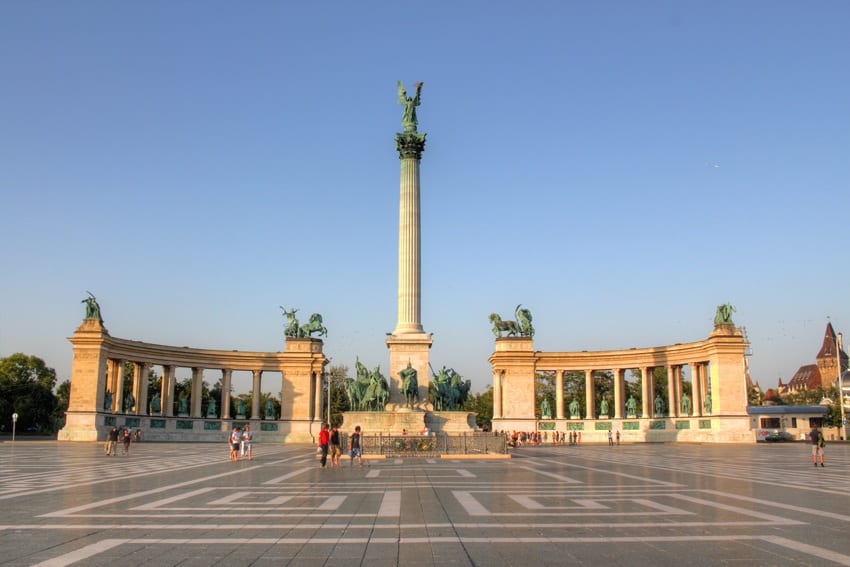
Hungary is such an underrated country.
Whenever people discuss their favourite places in Europe, I rarely hear Hungary receiving so much as a mention. Everyone’s always so focused on Paris and Rome and London and Madrid. Having now spent two weeks travelling within Hungary, though, I can now tell you that opting to skip over this Central European country is a huge mistake, and Budapest has just as much to offer as the more well-known capital cities of Europe.
Hungary has a ton to discover for those who make the effort to visit, and I count it among my favourite countries in the continent.
When I first travelled to Hungary, I was just one month into my round-the-world adventure and I’ll be honest with you and confess that I wasn’t impressed. I chose one of the worst spots around Lake Balaton to base myself and Budapest just didn’t grab me — probably because it was 35°C when I visited.
When I returned two years later, however, I fell head over flip-flops in love with Budapest, stumbled upon the beautiful city of Eger, and discovered that Hungary is a country that more people need to visit.
So what’s so special about Hungary?
Well, you’ve got incredible Budapest, to start with, and I’m sure you’ll be spending plenty of time there. It’s one of the coolest cities in Europe, with world-class architecture, dozens of activities to keep you busy, and an incredible bar scene.
Hungary is also home to an extremely underrated wine region, has access to the largest lake in Europe, as well as the world’s largest thermal lake, and has dozens of colourful old towns to wander around. There’s delicious local food, easy-to-use transportation, and some seriously welcoming locals. On top of that, it’s still far cheaper than most Western European cities, so you can get a hell of a lot of value from your money.
I’ve been taking note of every single cent I spend while travelling the world, because I want to prove that travel isn’t just for the rich and privileged. I want to show that it’s possible to see this planet on a budget, while also giving a realistic look at the prices you can expect to come up against. In Hungary, this was no different.
I visited Hungary first as a solo traveller on a tight backpacking budget, then later as part of a couple, aiming for a mid-range stay that focused on receiving good value for money. After taking both of these trips, I’m excited to share how you can get the most for your money in this country.
Here, then, is exactly how much you can expect to spend on a trip to Hungary.

How to Find Cheap Flights to Hungary
If you’re European, you won’t have too much difficulty finding a cheap flight to Budapest. With so many budget airlines operating across the continent, you can likely score flights to Hungary for as little as €50 each way . Still, it’s always worth checking the overland options, too, as the trains, buses, and coaches can sometimes be cheaper.
For anyone in North America, Oceania, Asia, and elsewhere, my first recommendation is Secret Flying and my second is Skyscanner .
Secret Flying is my number one flying trick and it’s rare for me to ever travel on a flight that wasn’t found through that site. And no — they’re not paying me to say that. Secret Flying is a flight deals website that shares dozens of great options for routes that have recently gone on sale. It’s thanks to Secret Flying that I flew from Lisbon to Cape Town for €280 return, London to Los Angeles for $120 one-way, and Singapore to London for $120 one-way. In short, regularly checking flights from your home country to Europe on Secret Flying will help you save a lot of money.
I’ll confess that Budapest isn’t one of the major airports in Europe, so deals to Hungary are tougher to find than to somewhere like Paris. Still, in the past couple of months, Secret Flying has unearthed deals like $486 return from NYC to Budapest and 630 CAD return from Toronto to Budapest, so it’s definitely worth taking a look to see if there are any bargains.
First, check Secret Flying deals to Europe as a whole from the U.S. , Canada , Australia , or wherever else you’re from . You’ll likely be able to pick up a flight for somewhere within Europe for as little as €350 return . From there, you can then use Skyscanner to find return flights between that destination to Hungary.
If Secret Flying doesn’t have any great deals showing, or you want to get to Budapest with the least amount of hassle, you can use Skyscanner from the get-go. After eight years of continuous travel, it’s my favourite way to search for flights, and I love that you can search for flights departing from across an entire country to Hungary. You can even search for travel dates across an entire month to ensure you’re flying on the cheapest possible days.
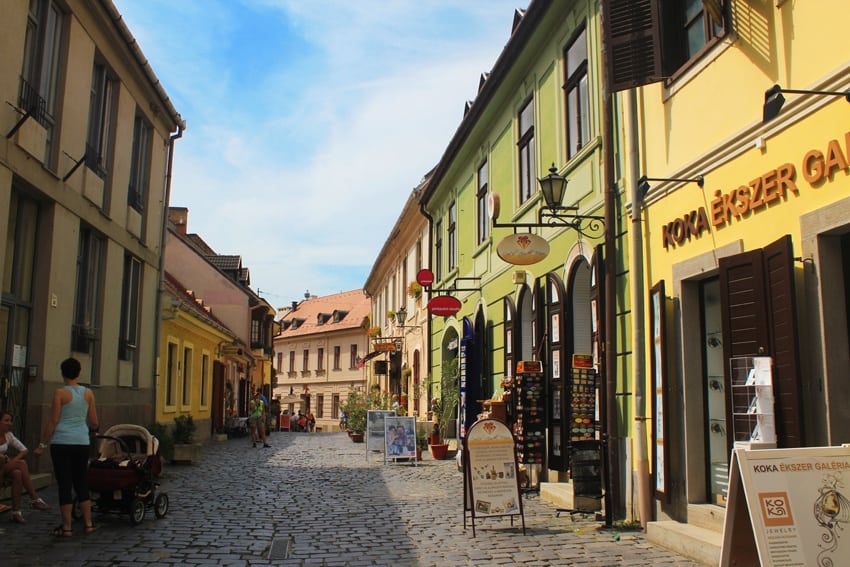
The Cost of Accommodation in Hungary
There’s great-value accommodation available in Hungary, whether you’re a backpacker on a super-tight budget, part of a couple on a mid-range-priced vacation, or a luxury traveller looking for an affordable getaway.
One of the cheapest ways to explore Hungary is by staying in a hostel. I’ve stayed in several as I’ve travelled around the country, and was impressed with the quality of the hostels, as well as the number of options to choose from. One of the more notable hostels in Hungary is Maverick City Lodge (dorms starting from 5,000 Ft [€16/ $18 ] a night ), as it consistently receives the best reviews of any hostel in the city. It’s in an amazing location, in the centre of the fabulous Jewish Quarter, is clean and modern, and perfect for solo travellers, as there’s so much going on for socialising.
If you’re all about the tight budget and spending as little as possible in Hungary, there are slightly more affordable options for hostel living around the country. Note: I only recommend properties that are rated above 9/10 on Booking.
- The cheapest dorm bed in Budapest comes in at 3600Ft/€10/ $12 a night at the exceptionally well-reviewed Central Market Zen Hostel , and the cheapest private double room in the city comes to 5,700Ft/€16/ $19 a night at Vajda 15 Budapest .
- In Eger, you’ll pay just 5960Ft/€18/ $21 a night for a dorm bed at the excellently-reviewed Lokomotiv Motel , or 6040Ft/€19/ $22 a night for a private double room at Cecey Vendégház , so there’s no real reason to stay in a dorm here unless you’re craving the social aspects.
- In Lake Balaton, there aren’t any decent hostels, but you can stay in a cheap private double room at Glázer-Szálló for just 6250Ft/€20/ $22 a night .
If you’re on an even tighter budget, you might want to explore some options that’ll land you with free accommodation while you’re in Hungary. You’ve probably heard of Couchsurfing before, but if you haven’t, it’s a website where you can connect with locals and sleep on their sofas. It doesn’t cost anything to do so, and is a great way to gain an insight into Hungarian daily life — something that’s tough to do if you’re hanging out in a dorm room with other travellers.
Housesitting is another option that allows you to spend some time in Hungary without having to spend money on accommodation. After signing up for the site, you’ll be able to apply for housesits and look after locals’ homes (and usually their pets) for free . This is a great option for a whole range of travellers, although it’s best for those of you who don’t have fixed travel dates, as it’s rare to find a housesit that perfectly coincides with specific travel dates that are perfect for you. I’ve had friends score housesitting gigs for anywhere from remote farms to enormous castles, so this isn’t an option that’s just for the budget travellers!
And finally, while we’re talking about free accommodation options, you could also take a look at WorkAway in Hungary. Through this site, you’ll work with locals in exchange for lodging and often food, often helping out on organic farms or local hostels. This is a great opportunity to spend an extended amount of time in the country while keeping your costs extremely low.
Okay, but what if you’re not a budget traveller and just want to stay in a lovely, well-reviewed hotel or guesthouse that’s good value for money and has all the things you need from a place to lay your head? I’ve got you!
I visited Hungary on a mid-range budget with my boyfriend and was surprised by how much I could get for my money. For around €40 a night , you’ll be able to stay in an excellently-reviewed apartment or double room, in a central location with friendly staff.
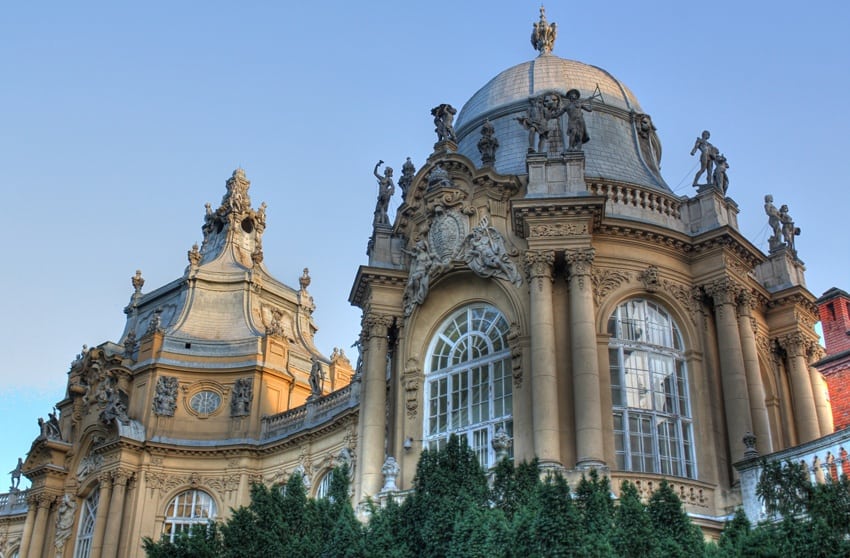
The Best Hotels and Guesthouses in Hungary
As I mentioned above, I’ve visited Hungary a couple of times, both as a solo female who was travelling on a tight budget and as part of a couple that was looking for all things hotel-shaped and mid-range.
I always like to share which accommodation I stayed in on my travels, as well as recommend alternatives when mine sucked. Everywhere I recommend below has excellent reviews and offers great value for money.
Here’s my list of my favourite accommodation options in Hungary:
Budapest: Anabelle Bed & Breakfast ( $81 a night ) receives an average rating of 9.5 on Booking, which makes it one of the best places to stay in the city. It’s located right in the heart of Budapest in a peaceful neighbourhood, close to many of the tourist attractions, a metro station and supermarket, as well as a 10 minute walk from the bus station.
Eger: Hungária Vendégház ( €44 a night ) receives an average rating of 9.6 on Booking, and reviewers regularly declare it the best B&B they’ve stayed at in the country. You stay here for the friendly owners and generous breakfast — the hosts are only too happy to recommend restaurants and attractions to check out while you’re in town, and you’ll feel as though you’re staying with family rather than in a B&B. The guesthouse is located close to downtown but in a quiet neighbourhood, which is an added bonus in my eyes. I wouldn’t stay anywhere else in Eger.
Debrecen: Boutique Hotel Kristály ( €60 a night ) is one of the best value properties in more-expensive Debrecen. Still, you receive great value for money at this lovely boutique hotel. It’s around a 20 minute walk to the centre of town from the hotel, you’ll have access to a small spa and fitness centre, and the breakfasts are plentiful. Altogether, this is a simple, clean, and modern place to base yourself while exploring Hungary’s second-largest city.
Heviz: Villa Lux ( €42 a night ) is another great value accommodation option in Hungary. It’s a 15-minute walk to the lake with several great restaurants nearby. You’ll have speedy Wi-Fi (a rarity for Balaton), comfortable surroundings, and a great breakfast to fill you up before a day of relaxation.
Pecs: Zsinkó Villa ( €51 a night ) is a small guesthouse with a handful of well-equipped bright and airy rooms and apartments to stay in. This is a great option if you prefer to cook your own food as you travel, as you’ll have access to a kitchen while you’re staying here. It’s beautifully decorated and receives an average rating of 9.9 from 100 reviews on Booking.
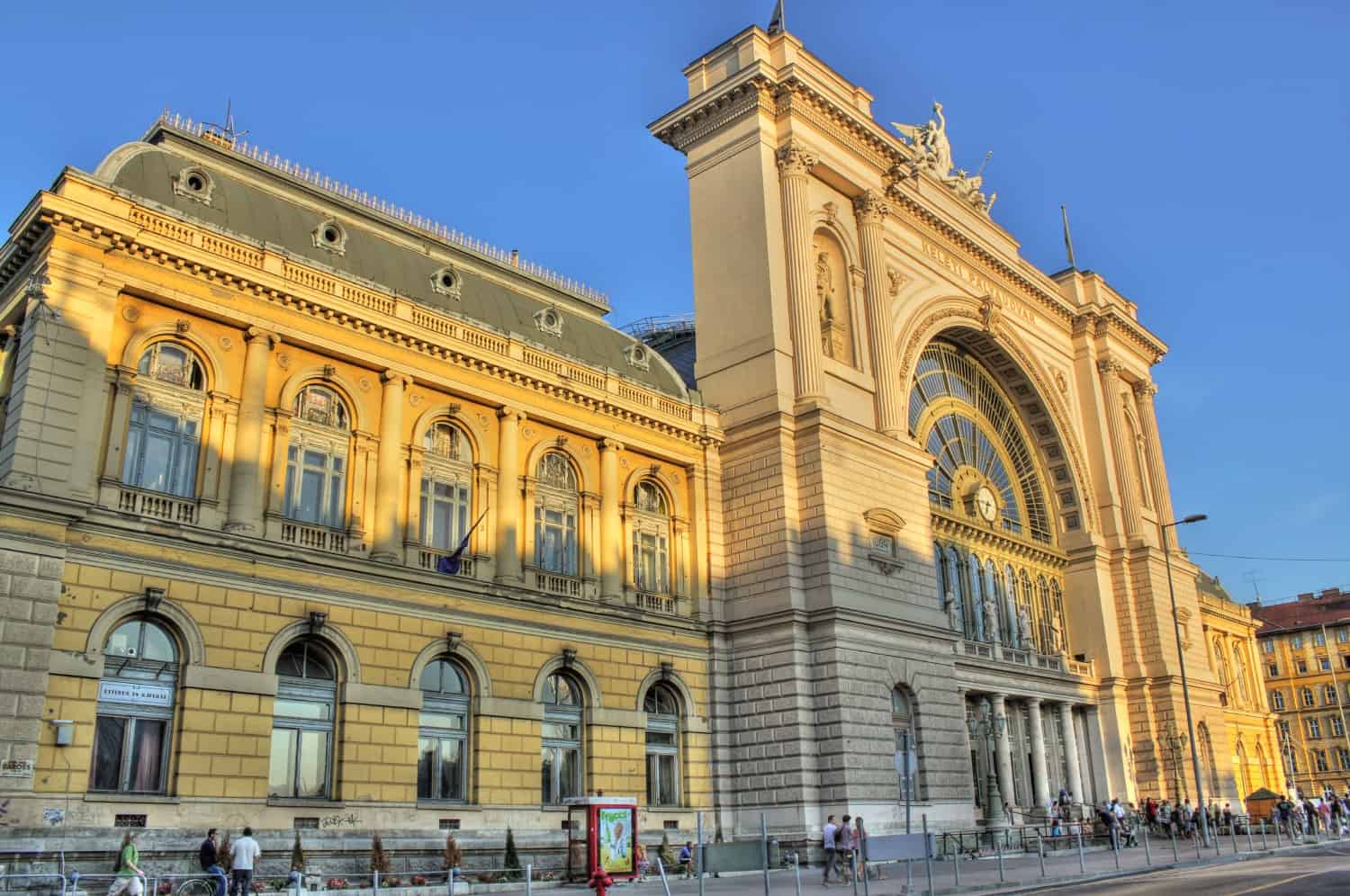
The Cost of Transportation in Hungary
Over my two weeks in Hungary, the method of transport I enjoyed the most was the train.
The return train ride from between Budapest and Eger was very comfortable, with the one from Balatonelle to Budapest being slightly less so (it was in August and the carriage was hot ). Still, it was cheap, comfortable enough, and an easy way to buy tickets and get around. You can buy train tickets online and in advance through the MÁV-START website .
In general, you’ll score the cheapest deals by either buying online or in person from ticket offices in the stations.
Surprisingly, the buses in Hungary are usually more expensive than the trains. This is mostly because the buses go to more places and are often just as fast as the train in Hungary. Availability is quite low in high season, as the locals prefer to travel by bus over train. You can view an up-to-date schedule and buy tickets in advance through Volanbuz.hu . It’s definitely worth comparing the price of the bus and train before you book, as you may find they vary significantly.
Renting a car is also an option, as driving in Hungary isn’t very intimidating. The roads are well-maintained, the local drivers are respectful, and car hire is inexpensive. You can expect to pay around €8 a day for a compact or economy car hire. I always use RentalCars.com to find the best prices on car rentals, and highly recommend them.
Keep in mind that there are tolls on every motorway in Hungary, and you’ll need to buy a toll pass in advance in order to avoid a fine. It costs €11 for a 10-day toll pass , and you can buy them on the national toll payment website .
What about flying?
There are just under 10 airports in Hungary, with the main ones being Budapest and Debrecen. Domestic flying is usually more expensive than travelling by overland, and while it seems like it could save you time, remember to account for the time it takes to get to the airport, check in, and reach your destination once you’ve landed. An hour-long flight can turn into a four-hour journey, in which case you’d likely be better off taking the train or bus.
When it comes to getting around the cities and towns you visit there are plenty of options. Budapest has an extensive metro system that covers much of the city, but it’s also quite walkable if you feel like exploring above ground. There’s also a tram service, which I much prefer as you can see more of your surroundings as you travel around, but if you’re prone to motion sickness you might want to avoid it.
To give you a good idea of how much you can expect to spend on transportation in Hungary, here’s a list of journeys you might decide to take while you’re in the country:
- Single train ticket from Budapest to Eger: 2725Ft (€8/$10)
- Single bus ride from Budapest to Lake Balaton: 3395Ft (€11/$12)
- Return train ticket from Budapest to Vizegrad: 2240Ft (€7/$8)
- Return train ride between Budapest and Esztergom: 2240Ft (€7/$8)
- Return bus ticket between Budapest and Eger: 5450Ft (€17/19)
- Return train ticket between Budapest and Pecs: 7900Ft (€25/$28)
- A one-way ride on the Buda Castle funicular: 1000Ft (€3/$4)
- A single ride on Budapest’s metro: €1
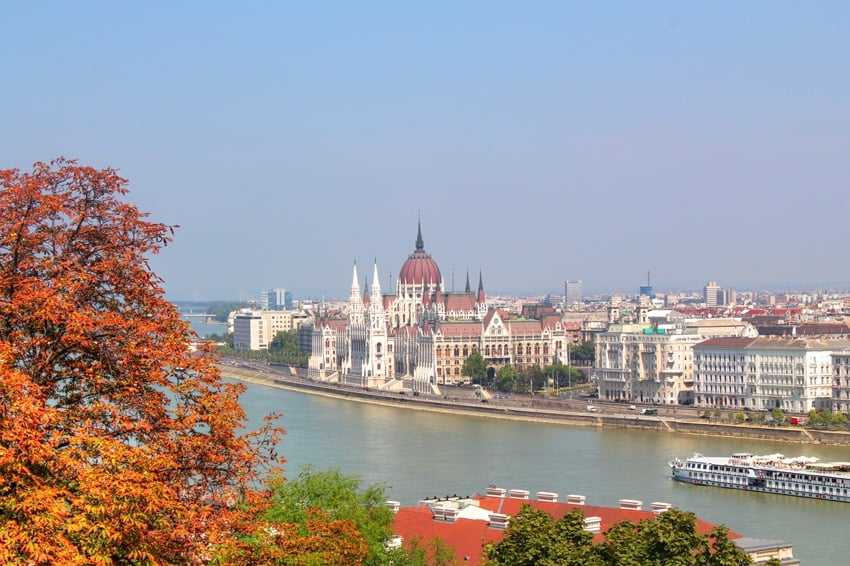
How Much Does Food Cost in Hungary?
Hungary is exceptionally affordable when it comes to eating out and buying groceries, so you won’t need to budget a huge amount for food. As an example, a three course meal at a decent, mid-range restaurant will set you back just €15 each !
In general, you should expect to spend the following on each meal:
- Breakfast: €2 each for bacon and eggs; €6 each for something in a hipster cafe.
- Lunch: €5 each for a set meal in a traditional restaurant.
- Dinner: €5 each if you’re on a budget, €12 each for a mid-range restaurant, €25 each for something high-end.
To save money on food, take your eating to the streets. In Budapest, there are plenty of market halls to make this possible — Central Market Hall is a great option for cheap eats, as is the Downtown Market on Hold Street. There, you’ll be able to score a meal for as little as €2 .
There are several food and drink experiences in Hungary that I highly recommend you seek out.
The first of these is the ruin bar scene in Budapest. I can’t tell you how much I adore the ruin bars. Found primarily in the Jewish Quarter, these quirky buildings have been transformed from once-derelict spaces into eclectic rooms crammed full of all kinds of treasures. At Szimpla Kert — my favourite ruin bar — you’ll find a haphazard array of torn-up sofas, old chairs, and benches thrown together around unsteady tables. The front half of an old car was being used as a table; bathtubs and dentist chairs as seats. Rooms were filled with sewing machines, birdcages, typewriters, and old film projectors showing Russian cartoons and silent movies. From the ceiling hung a mixture of mismatched lampshades and smashed chandeliers. I highly recommend checking one out while you’re in town. When the beers are €2 , it’s hard to find a reason not to.
When it comes to food, goulash ( €6 ) is likely the first dish that comes to mind. This Hungarian classic blends a meat stew with the perfect amount of paprika, and is fantastic to eat during the winter months. There are plenty of other traditional foods that don’t get a look-in, though — aim to try €7 Fisherman’s Soup (a spicy paprika-filled soup made with fresh fish from the Danube), €5 Hungarian Lecso (similar to ratatouille, this is a vegetable stew that all my vegetarians out there should aim to try), and €1 langos (deep-fried dough with an assortment of delicious toppings — the traditional version is topped with garlic, sour cream, and cheese).
For drinks, aim to try a €3 froccs (a cocktail of wine and soda — perfect for hot summer days) and €3 palinka (a traditional local brandy).
You should usually aim to tip around 10% in Hungary, although this is often added to your bill at the end of the meal.
Here are some more examples of what you can expect to pay for food in Hungary:
- Combo meal at McDonald’s: €3.80
- Pint of draught beer: €1.30
- Glass of wine in a restaurant: €2.10
- A cocktail in a fancy bar downtown: €4.25
- Coffee in an expat area of town: €2.00
- Litre of milk: €0.75
- A loaf of bread: €1.80
- A dozen eggs: €1.25
- 1 kilogram of tomatoes: €1.40
- 1 kilogram of potatoes: €1.25
- A bottle of wine: €3.50
- A 1.5l bottle of water: €0.70
- A 30 cm pizza: €3.80
- A gyros for lunch: €2.20
- A three course meal and wine in a high-end restaurant in Budapest: €30 each
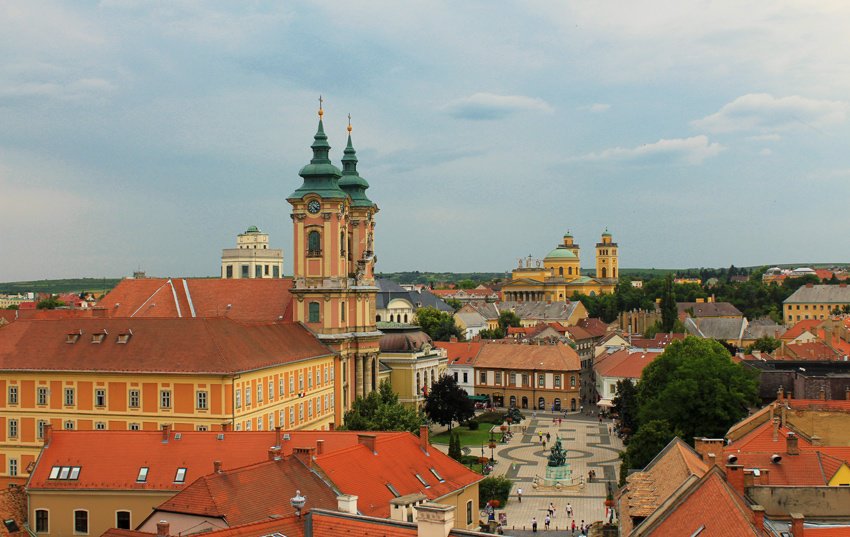
How to Save Money on Activities in Hungary
While Hungary is very affordable when it comes to accommodation, transportation, and food, the activities are where you’re likely to spend the vast majority of your forints . Still, there are plenty of free activities to take advantage of.
- Free walking tours are one of the best ways to kick off your explorations of a new city. These are based on donations, so you can give as much or as little as you want for a two-hour overview of the main tourist attractions. There are several free walking tours in Budapest . Some of these will give you a general view of the city, and others are focused on the Jewish district and city’s communist past.
- Visit Heroes Square. One of my favourite areas of Budapest is Heroes Square, and I love to visit just as the sun is setting.
- Explore Buda Castle. You’ll have to pay to go inside the castle, but I personally didn’t find it to be worth it. Instead, you should wander the grounds and gardens, and snap photos of its exterior.
- Admire Budapest’s Parliament building. You have to pay to explore the inside of this beautiful building, but I think it’s just as impressive from the outside. I especially love taking photos of it from Fisherman’s Bastion in Budapest.
- Relax beside Lake Balaton. If you decide to visit Europe’s biggest lake, you’ll quickly learn that it’s a popular vacation spot for locals in Hungary. While you’re there, do as they do and admire Tihany Abbey, lay out beside the water, and go for a hike in the hills surrounding the lake.
- Drink wine and gaze at the architecture in Eger. I didn’t spent a single cent on activities while I was in Eger, and that’s because I was having such a wonderful time simply wandering aimlessly down narrow alleyways. The architecture is gorgeous in this city, and you’ll be content just to take photos of the beautiful buildings while you’re there. It has one of my favourite old towns in all of Europe!
So, which activities in Hungary are worth the splurge?
- If you’re looking for a romantic activity to undertake while you’re in the country, a great option is a Danube River cruise in Budapest (€45) . You’ll spend two hours drifting along the river, sampling traditional Hungarian dishes, and watching the city light up from the water. If you’re on a tight budget, you can jump on alternatives for €9 .
- Széchenyi Thermal Baths are a must-do in Budapest. These thermal baths are some of the most famous in the world and have a whopping 17 pools to choose from. It costs €20 to spend a day there, and this option allows you to skip the line to avoid the crowds.
- If you’re up for an adventure, you can opt to explore Budapest’s underground cave system (€37) . On the three-hour tour, you’ll learn about the history of the caves and geology of the city, all while wandering beneath the city. It receives excellent reviews!
- Hungary makes some surprisingly wonderful wines, so if you’re not planning to spend a few days out in the wine country, you should at least opt to take a day trip to Tokaj (€280) . You’ll spend an entire day on a private tour of the UNESCO-listed Tokaj region of Hungary, visit three different wineries, enjoy a three-course traditional meal, and likely sample more wines than you could possibly imagine. If you’re in Hungary on a special occasion, this is the perfect way to celebrate.
- If you’re planning for some action-packed days while you’re in Budapest, consider spending €20 on a Budapest Card . It gives you unlimited free transportation around the city for a day, free entry to the best museums, free access to Lukács Thermal Baths, and discounts on meals throughout the city. It’s definitely worth doing for at least 24 hours.
Miscellaneous Expenses and Information for Hungary
I always like to include a little section in these budget breakdowns to cover all those bits and pieces that don’t neatly fit into anywhere else.
Hungary guidebook: When it comes to travel in Europe, I believe that Lonely Planet’s are king. The Lonely Planet guide to Budapest and Hungary includes some of the best travel itineraries for the country to help you plan the perfect trip, recommends restaurants for local experiences, includes a whole wealth of cultural insights to help you better navigate the country, and so much more. If you’re going to get a guidebook for your time in Hungary, this one is the best. As an added bonus: the paperback copies look so beautiful on bookshelves!
Travel insurance: I’m all about ensuring that every single one of my readers understands the importance of travel insurance. When you work in the travel industry, as I do, you’re inundated with news of destitute backpackers on GoFundMe who fell ill while travelling, didn’t have travel insurance, and now can’t afford the hundreds of thousands of dollars needed to be airlifted home for medical care. It happened to an old school friend of mine just this year. In short, if you can’t afford travel insurance, you can’t afford to travel.
Travel insurance will cover you if your flight is cancelled and you need to book a new one, if your luggage gets lost and you need to replace your belongings, if you suddenly get struck down by appendicitis and have to be hospitalised, or discover a family member has died while you’re overseas and need to get home immediately. If you fall seriously ill, your insurance will cover the costs to fly you home to receive medical treatment.
I use SafetyWing as my travel insurance provider, and recommend them for trips to Hungary. They’re one of the few companies out there who will actually cover you if you contract COVID-19. On top of that, they provide worldwide coverage, don’t require you to have a return ticket, and even allow you to buy coverage after you’ve left home. Finally, they have a clear, easy-to-understand pricing structure, which is always appreciated.
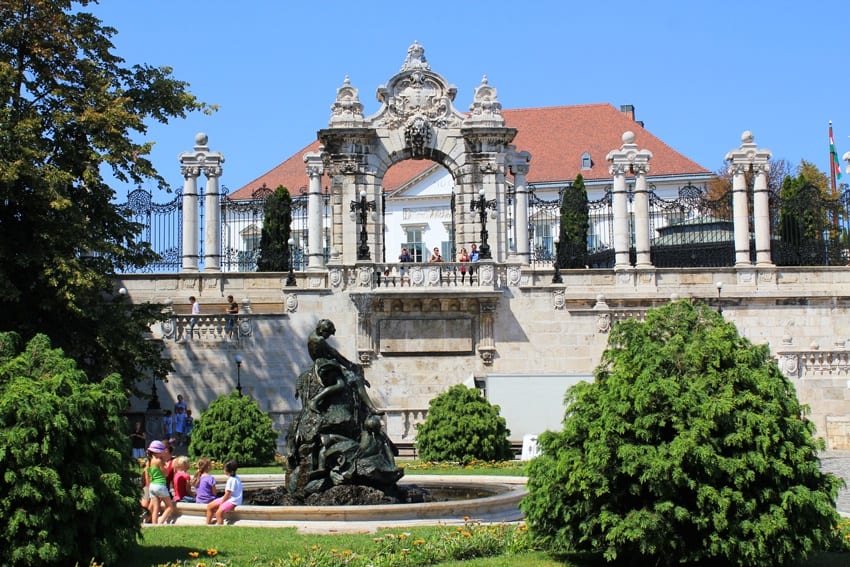
How Much Did I Spend in Hungary?
To round off this article, I’ve pulled up my travel expenses from Hungary to share exactly how much I spent while I was in the country. To make it easier for you guys, I’ll share both my budget breakdowns from my solo trip as a backpacker and my mid-range adventure as part of a couple.
How much I spent as a solo backpacker in Hungary:
Accommodation: €11 per day Transportation: €3.13 per day Food: €12.05 per day Activities: €2.86 per day
Total amount spent: €29 per day
How much I spent as part of a couple on a mid-range budget:
Accommodation: €23 per day (my share of the cost of the room) Transportation: €4.50 per day Food: €27 per day Activities: €4.17 per day
Total amount spent: €59 per day
And that’s it for my budget breakdown of how much it costs to travel in Hungary! I hope you’ve found this post useful when planning your own Hungarian adventure, and feel free to drop any questions you may have in the comments below :-)
Related Articles on Hungary 🇭🇺 25 Things to Do in Budapest 🍷 Exploring The Stunning Town Of Eger And Not Drinking Its Wine
Lauren Juliff
Lauren Juliff is a published author and travel expert who founded Never Ending Footsteps in 2011. She has spent over 12 years travelling the world, sharing in-depth advice from more than 100 countries across six continents. Lauren's travel advice has been featured in publications like the BBC, Wall Street Journal, USA Today, and Cosmopolitan, and her work is read by 200,000 readers each month. Her travel memoir can be found in bookstores across the planet.
Related Posts

The Cost of Travel in Mauritius: My Detailed Budget Breakdown

The Cost of Travel in Thailand: My Detailed Budget Breakdown

2023: My Travels in Review

The Cost of Travel in South Korea: My 2024 Budget Breakdown

What’s it Like to Travel in Liechtenstein?

What to Take On the Camino Primitivo: My Detailed Packing List
25 comments.
Great guide, Lauren! I think Hungary is very underrated as well as very affordable. Budapest is one of my favorite cities in Europe and I’m always recommending it to people. This will be useful to anyone planning a trip to Hungary.
Thanks so much, Cas! I really appreciate your kind words, and agree about Budapest being a fantastic city!
Damn, I really love Budapest. The architecture is amazing, and I got the feeling that the city hasn’t fully modernized yet, which I liked. Heroes Square might be the coolest monument I’ve ever visited.
Great pics!
Heroes Square is amazing!
Hi Lauren! I’m thinking about going to Hungary (Budapest and Eger) in a couple of months. Maybe a stupid question but in your opinion… is Hungary a safe place to travel to?
Hey Mike! Oh, absolutely. I think Hungary is safe to travel to, and I never once felt in danger while I was there. Just take normal precautions as you would anywhere — keep an eye on your belongings, don’t trust random strangers that approach you for no obvious reason, don’t get super drunk, and stay away from any dodgy neighbourhoods. I wouldn’t worry about safety there, though.
Who knew that Hungary is cheap to travel to?! Not me! I’m surprised by some of these prices and it’s causing me to move Hungary further up my list. Maybe I’ll aim to get there this summer.
I’ll keep my fingers crossed that you do! Hungary is certainly fantastic for your travel budget :-)
These breakdowns are always impressive to me. You always manage to cram so much information into them! I’m excited to see how cheap Hungary is to travel in too, as I’ve always wanted to go to Budapest.
Thanks so much, April!
Ahhh hero’s square. Many fond memories there…that was the first place I ever visited in Budapest.
…And it was the last place that I visited ;)
I was in Budapest like 3 days ago!! I absolutely fell in love with Hungary by far the easiest country in Hitch in, and the most fabulous lovely people. I have to go back soon x
Oooh, that’s good to know! Another way to keep the budget low :-)
Budapest has a truly amazing architecture. It is such a beautiful city, especially at night! My favourite buildings are Vajdahunyad Castle and the Hungarian Parliament.
I love the Parliament most! :-)
Impressive list of information and an accurate budget. I loved that you focused on the costs in the country outside of Budapest as well. Most travelers will only visit Budapest when they come to Hungary but there’s so much more that’s worthwhile to see.
I absolutely agree with you! There’s so much more to Hungary than just Budapest :-)
Thank you for sharing this. Hungary is one of my favourite places in Europe and for sure it can be really budget friendly.
No problem! It’s definitely one of the more affordable countries in Europe, and still so worth visiting!
Hi. Excellent post. A few comments, as things have changed a bit since your report. It is still very cheap to stay Hungary. For the over 65s in the EU travel is free. Train, metro, bus – all free. There are really good hotels in Balaton and we stayed at La Riva on Siofok – i give it a 5 star rating and quite reasonably priced. Restaurant meals, even snacks are getting a little more expensive – about £6 for a burger. Coffee/tea £1.50 to £2. We love Hungary and have been several times. It’s worth learning a few words in Hungarian, the locals will love you for it.
I agree that Budapest is a feast for the eyes. In my first and only trip thus far we felt tad overwhelmed at first but soon got the hang of the frequently running trams to get around. One caution about the baths in general – personally I cannot sit and smell sulphur for an entire day nor soak in warm waters in the heat of the day either. It was good to see them from the balcony and then go to my jacuzzi in the hotel to soak away the aches. Towel and hair caps are extras and vary by baths.
To be honest i was visiting Budapest 2 times! First time i was with my girlfriend at a wedding in Etyek,after the wedding we remained one day in Budapest! One month later we decided to go again!Went in the Buda Labyrinth with an oil lamp, in complete darkness, went to Fisherman Bastyon!one thing i can say: I LOVE BUDAPEST!
Just found out that Hungary does not officially use Euros. We’re only going to be in Budapest a couple of days, will we need the local currency? Thanks ps. love a detailed budget breakdown!
A lot of places do accept Euros, but use a crappy exchange rate, so you’ll be worse off by using them.
Leave a reply Cancel reply
Your email address will not be published. Required fields are marked *
Meet Lauren Juliff
Travel Europe on a Budget
The Savvy Backpacker
City Guides .\33 a132798-3f3b-4585-954d-7e70cf863447{fill:#231f20}
Budapest price guide | calculating the daily costs to visit budapest.
The daily travel costs to visit Budapest, Hungary. How to estimate your budget for food, accommodation, attractions, alcohol, and more.
City Price Guides
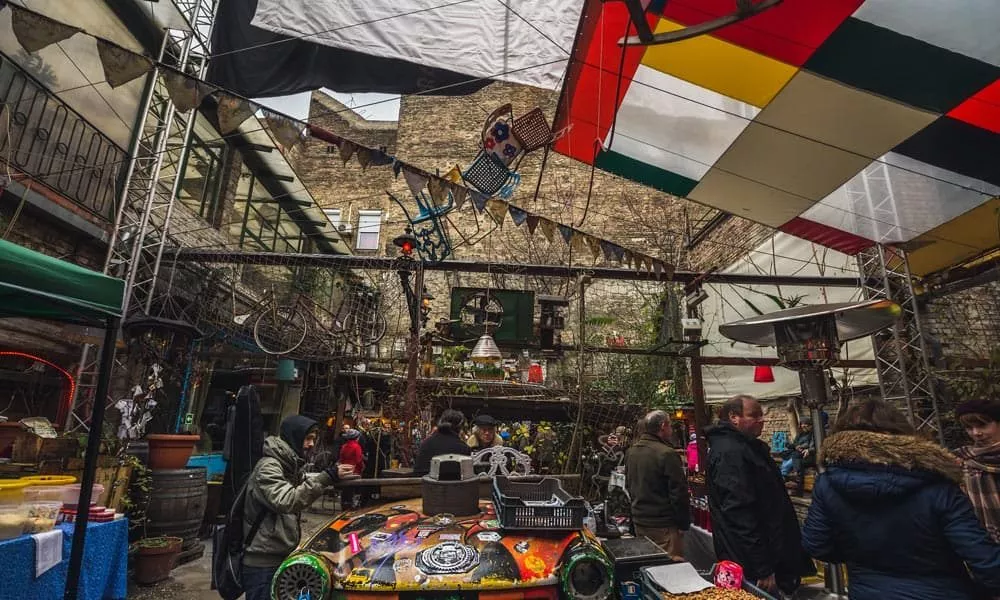
Budapest is one of the biggest cities in the EU and is often called the Paris of the East. It remains a popular destination because of its low prices, beautiful architecture, youthful spirit, vibrant nightlife, and rich history. Plus, it still has that gritty Eastern Europe edge—which adds to its coolness. In this Budapest price guide, we’ll outline the estimated travel expenses for food, accommodation, attractions, alcohol, and other things to help you budget your trip.
This article is part of our Europe Price Guide Series — Click here to see all our European City Price Guides .
Average Daily Cost For Visiting Budapest
It costs around $35-$60/day to visit Budapest as a budget-minded traveler . These prices are based on what you’ll need to visit the city comfortably as a budget traveler staying in a hostel.
If you want to stay in a nicer hotel or rental apartment you should add an extra $60-$80/night to your budget.
These prices also don’t include things like big nights out at the bar/pub, club entry fees, souvenir shopping, tours, random purchases, nicer food, etc. Don’t forget to budget extra for those “non-essentials.”
NOTE: We’ve converted all prices to US Dollars since the Hungarian Forint (HUF) is a bit confusing to convert on the fly. Check out XE.com for the latest exchange rates.
Daily Cost of Budget Travel in Budapest: $ 40
- Attractions: $9 (one paid attraction + any free sites)
- Breakfast: $3
- Treat (dessert/beer/wine): $2
- Transportation: $2.50
- Accommodation (hostel): $23
Daily Cost of Frugal Travel in Budapest: $ 35
- Attractions: $5 (free walking tour + visit one of the free sites)
- Breakfast: $0 (free hostel breakfast)
- Lunch: $4.50 (ethnic street food or takeaway shop fare)
- Dinner: $9 (make your own meal in the hostel or grab something cheap)
- Beer: $1 (chill out at the park and have a cold one)
- Transportation: $1.50
- Accommodation (cheap hostel bed): $16
Budapest Attraction and Museum Prices
Budapest has a load of great attractions which are all affordable or free. The thermal baths are great, so bring a swimsuit or you’ll have to find someplace to buy one (which took me a while when I was there).
- Thermal Baths: 4,400-10,00 HUF ($14-$28 USD)
- Hungarian National Gallery : 2,900 HUF ($8)
- Museum of Fine Arts : 2,400 HUF ($7)
- House of Terror Museum : 4,000 HUF ($11)
- Pinball Museum : 4,200 HUF ($12) includes all-you-can-play pinball
- Walking Tours: Free (but you should tip the guides) — 6,000 HUF/$20 (for paid tours)
Budapest Food Prices
Food prices in Budapest are cheap so you should seek out as much local Hungarian food as possible. Hungarian food consists of hearty soups, stews, goulash, all sorts of meat, seasonal vegetables, fruits, fresh bread, dairy products, and cheeses—it will fill you up!
Prices are very affordable but try to find where the locals eat to get the best quality.
Budget Breakfast Prices in Budapest: Free-$ 6
- Many hostels will offer a free, simple breakfast that normally consists of cereal, bread/croissant, and maybe milk, coffee, tea, or juice.
- Breakfast is an important meal in Budapest, so you’ll find plenty of cafés serving up some good options. A pastry costs about $1.5. A bigger breakfast will run about $5-$9.
- You can also find plenty of budget-friendly options at the bakery or grocery store.
A Few Budget Breakfast Spots:
- 9BAR : Tasty cappuccino, espresso, and a few pastry options.
- VINYL & WOOD : A hip little spot serving up coffee and pastries.
- Bite Bakery Cafe : Coffee, huge cinnamon rolls, and chocolate rolls.
- Cserpes Tejivo : A cozy spot with coffee, pastries, and sandwiches.
- Duran Szendvics : Traditional Hungarian breakfast sandwiches.
Budget Lunch Prices in Budapest: $4-$10
- Super budget travelers can make a super cheap lunch of bread, lunch meat, cheese, and fruit from any grocery store for a few dollars.
- Takeaway meals (like kebabs with fries) or similar dishes from a takeaway shop will cost about 800 HUF ($3).
- Grab a soup to go for 700 HUF ($2.50).
- A pizza will cost around 2,100 HUF ($5-$7)
- Budapest has a decent number of ‘self-service restaurants’ (basically cafeterias) that hearken back to the days of communism. The meals are simple but tasty… and cheap. Expect to pay around 1,000 HUF ($5) for the main dish.
- A combo meal at McDonald’s will cost about 2100 HUF ($6).
Budget Dinner Prices in Budapest: $8-$13
- Budget travelers will want to look at the many ethnic restaurants — a bowl of Pho will be about 1790 HUF ($6).
- An average meal of meat & potatoes will set you back about 1800 HUF ($9)
- You can get a nice meal from a non-touristy restaurant for about 1800 HUF ($7.50).
- A burger from a casual restaurant are around $5.
- Many of the options from the Budget Lunch section above also work for dinner.
A Few Budget-Friendly Lunch and Dinner Spots:
- Street Food Karavan : A spot with multiple food trucks/stalls serving up different food and beer.
- Klauzal Cafe : Authentic Hungarian spot serving up traditional fare.
- Bors GasztroBar : Super tasty soups and sandwiches.
- Regos Restaurant : Hearty traditional Hungarian food.
- Hoppacska : Filling Hungarian sandwiches.
- Local Korner : Excellent pizza in a super fun atmosphere.
- Hai Nam Vietnamese Bistro & Pho Bar : Solid Pho spot.
Drinks and Alcohol Prices in Budapest
- A pint of standard beer out: 360 HUF ($1.60)
- A pint of beer from a grocery store: 225 HUF ($1)
- Bottle of (drinkable) wine from the grocery store: 1000 HUF ($5.25)
- Espresso: $1.30
Budapest Transportation Prices
Budapest has a good network of trams, buses, and subways. They’re all affordable — be sure that you always validate your ticket because they do check riders’ tickets often (and you don’t want to get a fine, which is $30-$60).
- Single Ticket: 350 HUF ($1)
- Book of 10 Single Tickets: 3,000 HUF ($8.50)
- Unlimited Day Pass: 1,650 HUF ($5)
- Train Ticket Between Airport and City: 400 HUF ($1.25)
Budapest Hostel, Hotel, & Rental Apartment Prices
Hostels and hotels are fairly cheap in Budapest. All the hostels I’ve stayed at have been very high quality, too. There are also a good number of very cheap hotels (they’ll probably be fairly bare-bones), or you can spend a little extra if you want more comfort. Rental apartments can also be a nice option in Budapest.
Hostel Prices in Budapest: $17-$35/night
Hostels are cheap in Budapest. The average price of a bed per night is about $22—although many hostels raise their prices on the weekend. Remember, these prices are for a bed in a shared dorm room. Expect to pay $65-$95/night for a private room.
A few recommended Budapest hostels [Read our full guide to the Best Hostels in Budapest ]:
- Carpe Noctem
- Pal’s Hostel
- Maverick Hostel & Ensuites
- Vitae Hostel
- 11th Hour Cinema Hostel & Apartments
I recommend booking hostels through Hostelworld because they have the best selection.
Budget Hotel Prices in Budapest: $45-$95/night
Expect to pay around $65/night for a decent budget-tier hotel and around $110-$145/night for a nice hotel.
We suggest checking out Booking.com to see hotel prices for your dates since they’re always changing.
Rental Apartment Prices in Budapest: $50-$130/night
Budapest has a decent amount of rental apartments throughout the city. They can be a good option for large groups or travelers who want a little more space (and a kitchen). On the other hand, you may also have to deal with inconvenient check-in processes and things like extra cleaning fees and service charges. For short stays, we prefer hotels but longer stays are ideal for rental apartments. Airbnb is always popular but you can sometimes find cheaper/better options on our list of Airbnb Alternatives .
Learn More About the Cost of Visiting Europe
Check out our guide on How Much It Costs To Backpack Europe to learn more about budgeting your entire trip (including many more city price guides).

- Recent Posts
- The Best Travel Backpacks | In-Depth Buyer’s Guide & Backpack Reviews - April 28, 2024
- Best Prepaid UK eSIM | Data Plan Buyer’s Guide - April 21, 2024
- How to Avoid Pickpockets in Europe — Tips for Outsmarting the Thieves - April 19, 2024

No Funny Business
The Savvy Backpacker is reader-supported. That means when you buy products/services through links on the site, I may earn an affiliate commission—it doesn’t cost you anything extra and it helps support the site.
Thanks For Reading! — James
Questions? Learn more about our Strict Advertising Policy and How To Support Us .
Related Reads
Copenhagen price guide | calculating the daily costs to visit copenhagen.
The daily costs to visit Copenhagen. How to estimate your travel costs for food, hostels, hotels, attractions, alcohol, and more.
Stockholm Price Guide | How Much It Costs To Visit Stockholm, Sweden
Calculating the daily costs to visit Stockholm. How to estimate your budget for food, accommodation, attractions, alcohol, and more.
Naples Price Guide | How Much It Costs To Visit Naples, Italy
The daily travel costs to visit Naples, Italy. How to estimate your budget for food, hostels, hotels, attractions, alcohol & more.
Riga Price Guide | Calculating The Daily Costs To Visit Riga, Latvia
The daily costs to visit Riga. How to estimate your budget for food, accommodation, attractions, alcohol, and more.
City Guides
Choosing travel insurance, travel packing lists, budget travel newsletter.
The best budget travel tips sent straight to your inbox.
Join My Journey
Europe travel tips, advertising & privacy policies.
TheSavvyBackpacker.com is a participant in the Amazon Services LLC Associates Program, an affiliate advertising program designed to provide a means for sites to earn advertising fees by advertising and linking to amazon.com.
© 2010 - 2024 The Savvy Backpacker
Website Design by FHOKE

Prices in Hungary: Is Hungary expensive?
January 20, 2024 | Posted in: Hungary
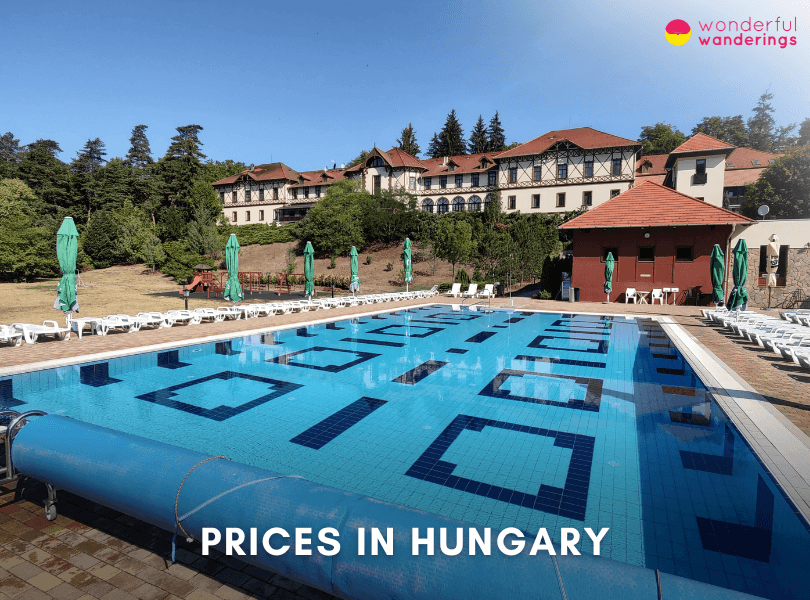
Hungary, a country in Central Europe, offers a cost-effective destination for travelers and residents alike. It is relatively budget-friendly. Hungary's cost of living is lower than many other European countries. The average daily expenses for a person in Hungary range from 35€ ($38.15, £30.45) to 50€ ($54.5, £43.5), depending on their lifestyle and location. Hungary provides various options catering to different budgets. In major cities like Budapest, a wide range of hotels, hostels and apartments are available at reasonable rates. A mid-range hotel room in Hungary can cost 70€ ($76.3, £60.9) to 100€ ($109, £87) per night, while budget-friendly accommodations such as hostels can be found for as low as 15€ ($16.35, £13.05) to 30€ ($32.7, £26.1) per night.
The prices of goods and services in Hungary vary depending on the location, quality and season. Some of the main factors that affect the prices are the currency exchange rate, the inflation rate, the taxes and the supply and demand. The prices are higher in the urban areas, especially in Budapest than in the rural areas. The prices are also higher during the peak tourist seasons, such as summer and winter holidays than in the off-season.
Why is Hungary considered expensive?
Hungary is considered expensive because of its high cost of living, taxes, tourism industry, strong currency and resource costs. Firstly, one of the main reasons why Hungary is considered expensive is the high cost of utilities, such as electricity, gas, water and internet. According to a report by Eurostat, Hungary has the second-highest electricity prices and the fourth-highest gas prices in the European Union. It means many people must spend much of their income on heating, cooling and lighting their homes. Internet access is also pricey in Hungary, with an average monthly cost of 23€ ($25.07, £20.01), which is higher than the EU average of 21€ ($22.89, £18.27). Secondly, another factor that makes Hungary expensive is the difficulty of learning Hungarian, which is one of the most complex languages in the world for non-native speakers. Hungarian has a unique grammar system, a large vocabulary and many exceptions and irregularities. It makes it hard for foreigners to communicate, work and study in Hungary and often requires them to pay for language courses, translators or interpreters.
Most Hungarians do not speak English or other foreign languages well, which limits their opportunities to interact with tourists, ex-pats and international businesses. Thirdly, a third cause of Hungary's high cost of living is the low salaries, especially for unskilled or low-skilled workers. The average monthly net salary in Hungary is 670€ ($730.3, £582.9), which is much lower than the EU average of 1550€ ($1689.5, £1348.5). It means that many people struggle to afford necessities, such as food, clothing and healthcare, let alone save money or enjoy leisure activities. The minimum wage in Hungary is 464€ ($505.76, £403.68), which is barely enough to cover the rent and utilities for a small apartment in Budapest. Fourthly, the other reason Hungary is expensive is the high demand and low housing supply, especially in urban areas such as Budapest.
Budapest is Hungary's capital and largest city and the one of the most popular places to visit in Hungary for tourists, students and ex-pats. There is not enough housing to accommodate the growing population, which drives up rent and property prices. The average monthly rent for a one-bedroom apartment in Budapest is 400€ ($436, £348), more than half the average salary. Buying a house or a flat in Budapest can cost up to 2500€ ($2725, £2175) per square meter, which is more than double the national average of 1,100 € ($1,260, £920). Lastly, the other factor contributing to Hungary's high cost of living is its location and geography. Hungary is landlocked, meaning it does not have access to the sea or ocean. It limits trade and transportation options and makes it dependent on neighboring countries for imports and exports. As a result, Hungary has to pay higher prices for many goods and services, such as fuel, food and travel. Hungary has a continental climate with hot summers and cold winters. It requires people to use more energy for heating and cooling, affecting the availability and quality of agricultural products.
How much is the fare when traveling by Train to Hungary?
The fare when traveling by Train to Hungary depends on the departure point, the route, the type of train and the booking time. A one-way ticket from London to Budapest costs 139 € ($152, £117) if booked two months in advance, but 139€ ($151.51, £120.93) if booked one week before departure. The train fare to Hungary is relatively high because of the lack of high-speed rail connections between Hungary and other European countries. Hungary has only one high-speed line connecting Budapest with Vienna in Austria. Most international trains to and from Hungary are conventional or regional trains with lower speeds and longer travel times. The journey from Paris to Budapest takes 14 hours by train but only 2 hours by plane. The other reason the train fare to Hungary is relatively high is the high demand and low supply of train tickets, especially during peak seasons or holidays. Hungary is a popular destination for tourists, students and ex-pats who want to explore its rich history, culture and natural scenery. There is not enough capacity to accommodate the growing number of train travelers, which drives up the prices of train tickets. Some train routes to Hungary have limited frequency or availability, which reduces the options and flexibility for train travelers.
How is Traveling by Train Compared to Plane When Visiting Hungary?
Traveling by plane offers speed and convenience for international travel to Hungary, while trains provide a scenic and relaxed experience. Plane travel is faster, particularly for long distances, while trains offer a more budget-friendly option for shorter journeys. Firstly, traveling by plane is generally faster and more convenient for long distances. International flights can quickly transport travelers to Hungary from various destinations worldwide. A flight from London to Budapest takes 2 to 3 hours, while a train journey can take 22 hours. The speed of air travel saves time, making it a preferred choice for those seeking efficiency. Secondly, trains provide a scenic and relaxed travel experience within Hungary. Train journeys allow passengers to enjoy the countryside views and engage in the local landscapes. It can be particularly appealing for travelers who appreciate a leisurely travel pace and wish to explore the beauty of the Hungarian countryside. Trains often offer more legroom and comfort than airplanes, making the journey more comfortable, especially for longer trips. Thirdly, train travel in Hungary can be more cost-effective than flying, particularly for shorter distances. Train tickets within the country are cheaper than airfare and various fare options are often available to suit different budgets. Trains often offer more flexibility regarding departure times and frequent connections between cities, providing travelers with more options and convenience. Lastly, trains can directly connect city centers, while airports are usually outside major cities. This means that train stations are often more accessible and located in central areas, making it easier for travelers to reach their final destinations. Airports, on the other hand, may require additional transportation or transfers, which can add to the overall travel time and cost.
How Much Does a Plane Ticket Cost for Hungary?
The plane ticket cost for Hungary can range from 100€ ($109, £87) to 300€ ($327, £261). Firstly, the distance between the departure location and Hungary plays a significant role in ticket prices. Flights from neighboring European countries or destinations closer to Hungary are cheaper than long-haul international flights. A flight from Vienna, Austria, to Budapest, Hungary, can cost 100€ ($109, £87) to 150€ ($163.5, £130.5) for an economy class ticket. Secondly, the time of booking can impact the cost of plane tickets. Booking in advance, preferably several months ahead, can help secure lower prices. Last-minute bookings or peak travel times, such as holidays or weekends, often increase ticket prices due to increased demand. Lastly, the airline and class of service chosen also influence the ticket price. Different airlines have their pricing strategies and service levels, with some offering more affordable options while others providing premium services at higher costs. Economy class tickets are typically more budget-friendly than business or first-class tickets.
What should you Consider when Going Around Hungary?
Listed below are the things that visitors should consider when going around Hungary.
- Public Transportation. Visitors should consider utilizing Hungary's efficient public transportation system, which includes buses, trams and metros. These modes of transport are cost-effective and provide convenient access to various attractions and cities within the country.
- Language. Though Hungarian is the official language, English is widely spoken in tourist areas and major cities, but visitors should still be prepared for occasional language barriers and consider carrying a translation app or phrasebook to facilitate communication.
- Currency. Hungary's official currency is the Hungarian Forint (HUF). Visitors should know the current exchange rate and consider using local currency for small purchases, as not all establishments may accept credit cards or foreign currencies.
- Weather. Hungary experiences distinct seasons, with hot summers and cold winters. Visitors should consider the weather conditions during their travel dates and pack accordingly. It is advisable to check the forecast and dress in layers to accommodate temperature variations throughout the day.
- Cultural Etiquette. Respecting local customs and traditions is important when visiting Hungary. Visitors should familiarize themselves with basic etiquette, such as greeting people with a handshake or a nod and being mindful of dress codes when visiting religious sites. It is customary to tip 10% in restaurants and cafes for good service.
How Much Does the Average Taxi Fare Cost?
The average taxi fare in Hungary can range from 1€ ($1.09, £0.87) to 5€ ($5.45, £4.35). The taxi ride's starting fare in Budapest is typically 1.5€ ($1.64, £1.31) to 2.5€ ($2.73, £2.18). This starting fare includes an initial distance of a few kilometers. Additional charges are then applied per kilometer, ranging from 0.8€ ($0.87, £0.7) to 1€ ($1.09, £0.87). A 10-kilometer (6.2 miles) taxi ride in Budapest could cost 10€ ($10.9, £8.7) to 13€ ($14.17, £11.31). In other cities of Hungary, such as Debrecen or Szeged, taxi fares tend to be slightly lower than in Budapest. The starting fares can range from 0.9€ ($0.98, £0.78) to 1.5€ ($1.64, £1.31), with additional charges per kilometer varying from 0.6€ ($0.65, £0.52) to 0.9€ ($0.98, £0.78). It is important to note that taxi fares may also include additional charges for waiting time, luggage or night rides. Visitors are advised to check the rates displayed in the taxi or communicate with the driver to clarify the expected fare before starting the journey.
How Much Does the Average Bus Fare Cost?
The average bus fare in Hungary can range from 1€ ($1.09, £0.87) to 2€ ($2.18, £1.74). In Budapest, the average bus fare for a single ride is typically 1.5€ ($1.64, £1.31) to 1.2€ ($1.31, £1.04). This fare allows passengers to travel within the city's extensive public transportation network, including buses, trams and metros, for a certain duration or distance. Bus fares in other cities across Hungary are similar or slightly lower than in Budapest. The average fare for a single bus ride in cities such as Debrecen or Szeged ranges from 0.9€ ($0.98, £0.78) to 1.2€ ($1.31, £1.04). It is important to note that some cities offer discounted fares for students, seniors and other eligible groups. Multi-ride tickets or passes are available, which can provide further savings for frequent bus travelers.
Is Traveling with Bus Around Hungary Worth It?
Yes, traveling by bus around Hungary is worth it. Firstly, buses in Hungary provide an extensive and well-connected transportation network that allows travelers to reach various destinations efficiently. Whether exploring Budapest's streets or venturing into other cities and towns, buses offer a reliable mode of transportation. They operate regularly, ensuring travelers can conveniently plan their itineraries and navigate the country. Secondly, bus travel in Hungary is affordable, making it a cost-effective option for budget-conscious travelers. The average bus fares are reasonably priced and often discounted fares are available for students, seniors and other eligible groups. This affordability allows travelers to explore different parts of Hungary without breaking the bank, making it a worthwhile choice for those seeking economical travel options. Lastly, bus travel allows visitors to experience the local culture and interact with fellow passengers. It provides an opportunity to observe everyday life in Hungary and engage in the local atmosphere and with the locals. This aspect of bus travel can enhance the overall experience by offering insights into the country's people, customs and way of life.
How Much Does the Average Car Rental Cost in Hungary?
The average car rental cost in Hungary starts from 20€ ($21.8, £17.4) to 50€ ($54.5, £43.5). This price may include standard insurance coverage and unlimited mileage for a certain duration. Additional fees for extras such as GPS navigation systems, child seats or additional drivers may apply. For larger vehicles or luxury cars, the rental prices can be higher, ranging from 50€ ($54.5, £43.5) to 150€ ($163.5, £130.5) per day, depending on the specific model and rental company. It is also worth noting that the rental cost can vary depending on the location. In major cities like Budapest, car rental prices might be slightly higher compared to smaller towns or less touristy areas. Renting a car in Hungary is a good ideal if you want to save money on transportation.
How Much Would You Be Paying for the Fuel of the Rental Car?
Visitors would be paying between 40€ ($43.6, £34.8) to 50€ ($54.5, £43.5) for the fuel of the rental car in Hungary. When renting a car, visitors must usually return the vehicle with the same fuel level as when they picked it up. In some cases, the rental company may offer the option to prepay for a full fuel tank at a discounted rate, allowing visitors to return the car with an empty tank. This can be convenient for travelers who prefer not to worry about refueling before returning the vehicle. It is essential to consider the terms and conditions of such offers, as they may include additional fees or restrictions. Visitors should factor in their estimated fuel consumption, the distance they plan to travel and the prevailing fuel prices to determine the approximate amount they would be paying for fuel during their rental period.
Are fuel prices expensive in Hungary?
Yes, fuel prices are expensive in Hungary. Firstly, compared to other European countries, Hungary has higher fuel prices. The average price of gasoline in Hungary is 1.5€ ($1.64, £1.31) per liter, while diesel prices are slightly lower, at 1.4€ ($1.53, £1.22) per liter. These prices can be higher compared to neighboring countries such as Slovakia, where fuel prices are generally lower. Secondly, the higher fuel prices in Hungary can be attributed to various factors. The main factor is the high taxation imposed on fuel. The Hungarian government levies significant excise taxes and value-added tax (VAT) on fuel, directly contributing to the overall price. These taxes are implemented to generate revenue for the government and fund various public services and infrastructure projects. Lastly, Hungary heavily relies on imported fuel, contributing to higher prices. The country's domestic oil production is limited and it needs to import a significant portion of its fuel requirements from other countries. Importing fuel often involves transportation and logistical costs, which add to the pump's overall fuel price.
Are basic food products expensive in Hungary?
No, basic food products are not expensive in Hungary. Firstly, compared to other European countries, the cost of basic food items in Hungary is relatively lower. The prices of staple foods such as bread, milk, eggs and vegetables are generally reasonable and affordable for most people. Secondly, Hungary has strong agricultural sector contributes to the availability and affordability of basic food products. The country has fertile agricultural land and a favorable climate for farming, allowing for producing a wide range of food items domestically. Lastly, the competitive nature of the Hungarian food market also plays a role in maintaining affordable prices. There are various supermarkets, grocery stores and local markets where consumers can find competitively priced food products.
What is the cost of dinner for two in a restaurant in Budapest and Hungary?
The cost of dinner for two in a restaurant in Budapest and Hungary can range between 20€ ($21.8, £17.4) and 150€ ($163.5, £130.5). In an average mid-range restaurant, the cost of two dinners, including main courses and non-alcoholic beverages, can range between 20€ ($21.8, £17.4) and 40€ ($43.6, £34.8). This price range ensures customers enjoy a satisfying meal without breaking the bank. If dining in a more upscale or high-end restaurant, the cost of two dinners can be higher. In such establishments, where the ambiance, service and culinary experience are elevated, the cost can range from 40€ ($43.6, £34.8) to 80€ ($87.2, £69.6). These restaurants often offer a more refined dining experience, with a wider selection of gourmet dishes and premium ingredients.
What is the average cost of a hotel room in Hungary?
The average cost of a hotel room in Hungary can range from 50€ ($54.5, £43.5) to 150€ ($163.5, £130.5). The location plays a significant role. In major cities and popular tourist destinations like Budapest, the demand for hotel rooms is high, especially during peak travel seasons. The type and quality of the hotel also affect the cost. Hungary offers a range of accommodation options, including budget hotels, mid-range hotels and luxury hotels. Budget hotels typically offer more affordable rates, while luxury hotels with higher-end amenities and services command higher prices. The specific facilities, such as spa services, fitness centers and on-site restaurants, can also influence the cost. The time of year can impact hotel prices in Hungary. The peak tourist season, which generally falls during the summer months, tends to have higher rates due to increased demand, while traveling during the off-peak season, such as winter, can often result in lower hotel prices and potential discounts.
Is public transport expensive in Hungary?
No, public transport is not expensive in Hungary. Hungary's public transportation cost is relatively low compared to many other European countries. The prices for tickets and passes are designed to be accessible to the general population, making public transport an affordable option for daily commuting and travel within the country. A single ticket for a local transport ride in Hungary typically costs 1.5€ ($1.64, £1.31), depending on the city and the distance traveled. Hungary has implemented various ticketing systems, including single-use tickets, daily passes and monthly or annual passes, which offer cost-effective options for regular commuters. These ticketing options provide flexibility and convenience for individuals to choose the most suitable fare for their needs. Discounted fares are often available for certain demographic groups, such as students, seniors and people with disabilities, further enhancing the affordability of public transport.
Is petrol expensive in Hungary?
Yes, petrol is expensive in Hungary. the average petrol price in Hungary is 1.5€ ($1.64, £1.31). Taxes and excise duties imposed on fuel contribute significantly to the overall cost. These taxes are implemented by the government to generate revenue and promote environmental sustainability by discouraging excessive fuel consumption. Hungary relies on imported oil, which can also impact the price of petrol as it is subject to global supply and demand dynamics. Environmental regulations and standards set by the European Union also influence the cost of petrol in Hungary. These regulations aim to reduce emissions and promote cleaner fuels and technologies, which can lead to higher production costs and, consequently, higher prices at the pump.
What is the cost of a bus or metro ticket in Hungary?
The cost of a bus or metro ticket in Hungary can range from 0.97€ ($1.06, £0.84) for single tickers, while a monthly ticket valid for all means of public transportation costs 26.36€ ($28.73, £22.93). The government strives to maintain accessible public transportation systems by implementing reasonable fares. This ensures that individuals from various socioeconomic backgrounds can afford to use public transport as a reliable mode of travel. The integration of different modes of public transport, such as buses, trams and metros, allows passengers to enjoy seamless transfers and efficient connections, further enhancing the value of the ticket. The availability of various ticketing options, such as daily passes, weekly passes and monthly passes, provides cost-effective choices for regular commuters and frequent travelers. These options allow passengers to save money by purchasing tickets that suit their travel needs, whether for a single day or an extended period. Discounted fares are often available for specific demographic groups, such as students, seniors and people with disabilities, making public transport even more affordable and inclusive.
Are taxis expensive in Hungary?
No, taxis are not expensive in Hungary. The average taxi fare in Hungary can range from 1€ ($1.09, £0.87) to 5€ ($5.45, £4.35). The taxi ride's starting fare in Budapest is typically 1.5€ ($1.64, £1.31) to 2.5€ ($2.73, £2.18). This starting fare includes an initial distance of a few kilometers. Additional charges are then applied per kilometer, ranging from 0.8€ ($0.87, £0.7) to 1€ ($1.09, £0.87). A 10-kilometer (6.2 miles) taxi ride in Budapest could cost 10€ ($10.9, £8.7) to 13€ ($14.17, £11.31). In other cities of Hungary, such as Debrecen or Szeged, taxi fares tend to be slightly lower than in Budapest. The starting fares can range from 0.9€ ($0.98, £0.78) to 1.5€ ($1.64, £1.31), with additional charges per kilometer varying from 0.6€ ($0.65, £0.52) to 0.9€ ($0.98, £0.78).
What is the average salary per month in Hungary?
The average salary per month in Hungary is 670€ ($730.3, £582.9). The average salary in Hungary depends on several factors, such as experience, education, profession and city. The more experienced, educated and skilled a Hungarian employee is, the more they earn. The minimum wage in Hungary is 464€ ($505.76, £403.68).
What is the price of basic food in Hungary?
Find below the typical prices of basic foods in Hungary.
- Milk: A Gallon of Mil costs $4.29
- Bread: 1 lb of Bread costs $1.45
- Rice: 1 lb of Rice costs $0.88
- Eggs: A pack of 12 eggs cost $2.84
- Chicken Breast: 1 lb of Chicken Breast cost $2.56
- Apples: 1 lb of Apples cost $1.61
- Oranges: 1 lb of Oranges cost $1.43
What is the price of tobacco in Hungary?
The average price for a pack of 20 Marlboro cigarettes in Budapest (Hungary) is $5.84 . This is similar to prices in Spain and Slovakia.
Listed below are the cigarette prices in Budapest and Hungary:
- Malboro: A pack of 20 Marlboro cigarettes cost is $5.84.
- Chesterfield Blue: A pack of Chesterfield Blue is around 2,000 HUF or $5.70 USD
Cigarettes prices in Hungary in general are expected to increase by $0.50 per pack, meaning a pack would cost $6.24 . Cigarette prices are quite similar across cities in Hungary, with Budapest on the higher end and smaller towns may be up to 10% cheaper. The tobacco prices found for Budapest likely reflect a typical range for most of the country. Hungary levies both specific and ad valorem excise taxes on cigarettes, along with a 27% VAT. Total taxes account for the large majority of cigarette prices paid by consumers.
Visitors to Hungary can purchase tax free cigarettes at the duty free shops located at the airport, within the standard allowances permitted for personal use. Purchases may need to be declared and some duties paid if the limits are exceeded. The duty free allowance for bringing cigarettes into Hungary is generally 200 cigarettes for travelers over age 17 arriving by air from non-EU countries, while in EU countries, the typical allowance is 800 cigarettes.
What is the prices of alcohol in Hungary?
Alcohol prices in Hungary are the lowest in the EU, with price levels 27% below average. This includes wine, beer and spirits. The favorable prices make Budapest one of the cheapest cities in Europe for alcohol and drinking.
Find below the alcohol prices in Hungary.
Vodka & Spirits: The average price for a 0.5 liter bottle of vodka in Hungary is $4.60. Prices have remained quite steady in recent years. Wine: A glass of wine in Budapest (Hungary) costs between $0.55 and $0.84. Wine prices are very affordable compared to other European countries Beer: A pint of lager beer averages between $0.40 and $0.64 in Budapest which is considered very affordable.
Alcohol prices in Hungary and Budapest remain very affordable by EU standards, especially for local wine and beer. It stands out as one of the cheapest countries for alcohol purchases.
There are some localized time restrictions on retail alcohol sales, plus public drinking bans and standard laws against sales to minors and intoxicated persons. The legal drinking age is 18 in Hungary. This applies to purchasing all alcoholic drinks including beer, wine, and spirits. Some districts in Budapest have regulations banning the sale of alcohol in grocery and convenience stores between 10pm-6am. This is a local law that varies between districts. It's illegal to sell alcohol near schools, kindergartens and churches in Hungary. Carrying open containers of alcohol and drinking while driving is illegal as hungary has strict drunk driving laws.
Where would you eat in Hungary if you wanted to Save Money?
Visitors can eat in street food stands, self-service restaurants, local markets, étkezde and supermarkets. Firstly, street food stands offer a budget-friendly dining experience in Hungary. These stands are scattered throughout cities like Budapest and offer various tasty and inexpensive options. From lángos, a deep-fried dough topped with various toppings, to chimney cake, a sweet pastry coated in sugar, visitors can enjoy the flavors of Hungary at affordable prices. Street food stands typically offer meals for 3€ ($3.27, £2.61) to 5€ ($5.45, £4.35). Secondly, self-service restaurants are another great option for budget-conscious visitors. These establishments allow visitors to serve themselves various dishes, paying only for their choices. Self-service restaurants are popular in Hungary and offer a range of traditional Hungarian dishes like goulash, paprika chicken and stuffed cabbage. Meals at self-service restaurants typically cost 5€ ($5.45, £4.35) to 7€ ($7.63, £6.09). Thirdly, local markets in Hungary provide an opportunity to taste authentic Hungarian cuisine at affordable prices. These markets, such as the Great Market Hall in Budapest, offer fresh produce, meats and traditional Hungarian snacks. Visitors can explore the market, purchase ingredients and create budget-friendly meals. Most markets have food stalls where visitors can sample local dishes like lángos or sausage. Prices at local markets vary depending on the items purchased, but visitors can find affordable options starting from 2€ ($2.18, £1.74) to 3€ ($3.27, £2.61). Fourthly, small family-owned eateries called “étkezde” are known for their reasonably priced home-cooked meals. These establishments serve traditional Hungarian dishes in a cozy and casual atmosphere. Visitors can enjoy hearty dishes like chicken paprikash, Hungarian-style stews and potato casseroles. Meals at étkezde typically range from 6€ ($6.54, £5.22) to 10€ ($10.9, £8.7), making them an excellent choice for budget-conscious travelers. Lastly, supermarkets and grocery stores offer a wide range of affordable Hungarian food options. Visitors can purchase bread, cheese, cold cuts and other meal ingredients. Supermarkets often have a section dedicated to ready-to-eat meals, sandwiches and salads at lower prices than restaurants. Visitors can save even more money on their dining expenses by opting for supermarket purchases.
What are the most expensive restaurants in Hungary?
Listed below are the most expensive restaurants in Hungary.
- Costes Restaurant. Costes Restaurant is a Michelin-starred restaurant in Budapest that offers a fine dining experience with a friendly atmosphere. The menu features modern and creative dishes inspired by Hungarian and international cuisine. Some signature dishes are the foie gras with black caviar, the sturgeon fish soup and the Esterházy cake. The tasting menu costs 180€ ($196.2, £156.6) per person or 250€ ($272.5, £217.5) with wine pairing.
- Nobu Étterem. Nobu Étterem is the Budapest branch of the famous Japanese restaurant chain inside the Paris Hotel. The restaurant serves exquisite sushi, sashimi and innovative dishes that combine Japanese and Peruvian flavors. Some highlights are the black cod with miso, the yellowtail jalapeño and the chocolate bento box. The average price for a meal is 100€ ($109, £87) per person, excluding drinks.
- IKON Restaurant. IKON Restaurant is a fine dining restaurant in Debrecen, the second-largest city in Hungary. The restaurant offers a seasonal and contemporary menu using local and organic ingredients. Some dishes are the duck breast with beetroot, the lamb loin with mint and the chocolate cake with raspberry. The tasting menu costs 75€ ($81.75, £65.25) per person or 105€ ($114.45, £91.35) with wine pairing.
- Malomudvar Étterem. Malomudvar Étterem is a traditional Hungarian restaurant in Debrecen, located in a former mill. The restaurant serves hearty and authentic dishes, such as goulash, stuffed cabbage and chicken paprikash. The portions are generous and the prices are reasonable, considering the quality and the service. The average price for a meal is 40€ ($43.6, £34.8) per person, including drinks.
- Roosevelt Étterem. Roosevelt Étterem is a fine dining restaurant in Szeged, the third-largest city in Hungary. The restaurant is located in a historic building overlooking the Tisza River. The menu features elegant and refined dishes, such as foie gras terrine, lobster bisque and beef tenderloin. The tasting menu costs 90€ ($98.1, £78.3) per person or 130€ ($141.7, £113.1) with wine pairing.
Where to have cheap drinks in Hungary but still enjoy them?
There are 5 main destinations to have cheap drinks in Hungary, but still enjoy them. Firstly, Budapest, the capital city of Hungary, offers several options for enjoying cheap drinks without compromising on the experience. Ruin bars are a popular choice among locals and tourists alike. These unique bars are located in abandoned buildings and courtyards, creating an unconventional atmosphere. Szimpla Kert is one of Budapest's most famous ruin bars, where visitors can savor reasonably priced drinks in a bohemian setting. A pint of beer costs 2.5€ ($2.73, £2.18), providing an affordable way to have a good time. Secondly, Debrecen, the second-largest city in Hungary, is another great destination for those seeking cheap drinks and a pleasant ambiance. The city is home to numerous pubs and bars that offer wallet-friendly prices. Kis Piros is a popular Debrecen pub known for its lively atmosphere and affordable drinks. Visitors can enjoy a glass of wine for 3€ ($3.27, £2.61) or a cocktail for 5€ ($5.45, £4.35). Thirdly, Szeged, located in southern Hungary, is known for its nightlife and affordable drinking options. The city has many bars and pubs where visitors can indulge in inexpensive drinks. Korhely Étkezde & Kocsma is a popular spot in Szeged, offering a cozy atmosphere and affordable prices. A glass of local beer costs 2€ ($2.18, £1.74), allowing visitors to enjoy a refreshing drink without breaking the bank. Fourthly, Pécs, a city in southwestern Hungary, is known for its rich history and cultural scene. It also offers opportunities to enjoy affordable drinks in a pleasant setting. The city center has cozy pubs and bars catering to various tastes and budgets. Korhely Falatozó és Borozó is a popular spot in Pécs, offering a wide selection of drinks at reasonable prices. Visitors can enjoy a glass of wine for 3€ ($3.27, £2.61) or a pint of beer for 2€ ($2.18, £1.74). Lastly, Győr, a city in northwestern Hungary, is another destination where visitors can find cheap drinks without compromising the experience. The city's bar scene offers plenty of options for budget-conscious travelers. The Beer Bank is a popular pub in Győr, offering a wide range of beers at affordable prices. A pint of beer costs 2.5€ ($2.73, £2.18), allowing visitors to enjoy a refreshing drink without straining their wallets.
What are the best bars in Hungary?
Listed below are the best bars in Hungary.
- High Note SkyBar. High Note SkyBar is a rooftop terrace and bar next to the Basilica. It offers breathtaking views and service, cocktails, lunch and dinner. The bar is open all year round and has a seasonal menu and theme. The average price of a cocktail is 12€ ($13.08, £10.44).
- 360 Bar. 360 Bar is another rooftop bar on Andrássy Avenue. It has a 360-degree panorama of the city and features heated ‘igloos' in winter. The bar serves drinks, snacks and brunch and hosts live music and DJs. The average drink price is 6€ ($6.54, £5.22).
- KOLLÁZS – Brasserie & Bar. KOLLÁZS is a contemporary European brasserie and bar in the Four Seasons Hotel, overlooking the Chain Bridge and the Danube River. It has a stylish and elegant interior and serves classic and creative dishes and drinks. The bar has a large selection of wines, spirits and cocktails and also offers afternoon tea and live jazz. The average price of a cocktail is 15€ ($16.35, £13.05).
- Spíler. Spíler is a modern and trendy bar and restaurant in the Gozsdu Courtyard, a popular nightlife area. It has a lively and friendly atmosphere and serves Hungarian and international food and drinks. The bar has a variety of beers, wines and cocktails and features live music and sports screenings. The average drink price is 4€ ($4.36, £3.48).
- Tukory Kert. Tukory Kert is a traditional pub in the Castle District, a historic and scenic part of the city. It has a cozy and rustic interior and a large outdoor terrace. The pub serves local and craft beers, wines and spirits and offers snacks and sandwiches. The average drink price is 3€ ($3.27, £2.61).
What are the things to Do in Hungary?
Listed below are the things to do in Hungary.
- Visit Budapest. Hungary's capital city offers many attractions, including the historic Buda Castle, the majestic Hungarian Parliament Building and the Széchenyi Thermal Bath. Budapest's lively atmosphere, streets and views from the Fisherman's Bastion make it a must-visit destination.
- Explore Lake Balaton. Lake Balaton is the largest freshwater lake in Central Europe. It offers swimming, sailing and sunbathing opportunities along its shores. Visitors can also explore lakeside towns like Siófok and Tihany or indulge in the region's famous wines.
- Discover the Danube Bend. The Danube Bend is a scenic area in northern Hungary where the Danube River flows through the Visegrád Hills. Visitors can enjoy panoramic views from the hilltop Visegrád Castle, explore the town of Szentendre with its art galleries and museums or take a leisurely boat cruise along the river.
- Visit the Tokaj Wine Region. Tokaj is a famous wine region in northeastern Hungary, known for its sweet dessert wines. Wine lovers can explore vineyards, enjoy wine tastings and learn about the centuries-old winemaking traditions. The region's beautiful landscapes and villages add to the beauty of the experience.
- Explore the Puszta. The Puszta, also known as the Great Hungarian Plain, offers a unique cultural and natural experience. Visitors can witness traditional Hungarian horsemanship at the Hortobágy National Park, ride in horse-drawn carriages and attend folk music and dance performances. The vast open landscapes of the Puszta showcase the beauty of Hungary's rural heritage.
How can you lower your expenses in Hungary?
There are 3 ways for visitors to lower their expenses in Hungary. Firstly, when it comes to accommodation, visitors can save money by choosing budget-friendly options. There are a variety of guesthouses, hostels and budget hotels available in major cities like Budapest. These establishments offer comfortable and clean accommodations at more affordable rates compared to upscale hotels. Visitors can also consider booking their stay during off-peak seasons with lower prices. Secondly, visitors can lower expenses by exploring affordable dining options in Hungary. Though traditional Hungarian restaurants offer delicious local cuisine, they may be more expensive. Visitors can try local street food vendors, market halls and self-service buffet-style restaurants known as “étkezde”. These places offer authentic Hungarian dishes at reasonable prices, allowing visitors to experience the local gastronomy without breaking the bank. Purchasing groceries from supermarkets or local markets and preparing meals can also be cost-effective. Lastly, taking advantage of the public transportation system can significantly reduce expenses in Hungary. Cities like Budapest have an extensive network of trams, buses and metro lines that offer affordable and convenient transportation options. Visitors can purchase a travel pass, such as a Budapest Card , which provides unlimited access to public transportation and discounts to various attractions. The use of public transportation not only saves money but also allows visitors to explore the city efficiently.
Why would you consider visiting Hungary during low season?
Visitors should consider visiting Hungary during the low season because they can enjoy a more relaxed and cost-effective experience. Firstly, visiting Hungary during the low season means encountering fewer crowds and shorter queues at popular attractions. Tourist hotspots like Budapest's iconic Parliament Building, Buda Castle and thermal baths can get crowded during peak travel. During the low season, visitors can enjoy a more relaxed and uncrowded experience, allowing them to explore these attractions at their own pace and without the hassle of long queues. Secondly, visiting during the low season can significantly save accommodation and travel costs. Hotels and guesthouses offer lower rates during this period, making it more budget-friendly for visitors. Flight tickets and other transportation options may also be more affordable, allowing visitors to maximize their travel budget. Restaurants and shops may offer discounts and special deals during the low season to attract customers, further enhancing the cost-saving benefits. Lastly, visiting Hungary during the low season allows one to experience the country's more authentic and peaceful side. Visitors can engage in the local culture, interact with locals and enjoy a more genuine experience. They can explore neighborhoods and hidden gems that are less crowded and truly get a sense of the local way of life.
Why book your ticket ahead when planning to visit Hungary?
Visitors should book their tickets ahead when planning to visit Hungary because they can secure their preferred travel dates and times, take advantage of better deals and avoid the inconvenience of sold-out transportation options. Firstly, booking tickets ahead allows travelers to secure their preferred travel dates and times. Visitors can choose the most convenient and suitable options for their trip by planning. This is especially important during peak travel seasons when demand for flights and train tickets is high. Secondly, booking tickets ahead often leads to better deals and discounts. Most airlines and train companies offer discounted fares for early bookings, allowing travelers to save on transportation expenses. These savings can be significant, especially for long-haul flights or train journeys. Lastly, booking tickets ahead helps travelers avoid the inconvenience of sold-out or fully booked transportation options. Hungary is a popular tourist destination and certain routes or flights can fill up quickly, especially during peak travel periods or holidays. Visitors can secure their seats by booking in advance and avoid the stress of last-minute scrambling for alternative travel arrangements. This ensures a smoother and more hassle-free travel experience.
Why you should be careful with alcohol in Hungary?
Visitors should be careful with alcohol in Hungary for 3 main reasons. Firstly, visitors should be careful with alcohol in Hungary to avoid the risks of overindulgence. Hungarian alcoholic beverages, such as pálinka (fruit brandy) and Unicum (herbal liqueur), can be strong and have a higher alcohol content compared to what visitors may be accustomed to in their home countries. Consuming excessive amounts of alcohol can lead to impaired judgment, health issues and potentially dangerous situations. Visitors must drink responsibly, set personal limits and be mindful of alcohol intake to ensure their well-being and safety. Secondly, visitors should be aware of the differences in alcohol content and cultural norms in Hungary. The alcohol content of Hungarian drinks may vary and it is important to be mindful of this when consuming them. Visitors should familiarize themselves with the alcohol content of different beverages and drink in moderation. Hungary's cultural norms and drinking customs may differ from other countries. Understanding and respecting these cultural differences can help visitors avoid misunderstandings and ensure their behavior remains appropriate and respectful while enjoying alcoholic beverages. Lastly, responsible behavior is paramount when consuming alcohol in Hungary. Visitors should prioritize their safety and the well-being of others. This includes not drinking and driving, as Hungary has strict laws and penalties for driving under the influence. Visitors are encouraged to use alternative means of transportation or designated drivers when alcohol is involved. Being respectful and considerate towards locals and fellow tourists is essential. Maintaining control, acting responsibly and avoiding excessive public intoxication is important for a positive and enjoyable experience in Hungary.
Is Hungary Expensive?
No, Hungary is not expensive compared to Western European cities. The cost of living in Hungary is relatively lower than in many Western capitals, making it an attractive choice for budget-conscious travelers. Basic goods such as milk, cigarettes, bottled water and beer are priced 3€ ($3.27, £2.61) to 5€ ($5.45, £4.35), with local products often offering good value for money. Breakfast at local eateries or cafes is also affordable, making dining out an accessible option for visitors. The cost of traveling within Hungary, including public transportation and taxis, is also relatively economical, further enhancing its affordability. Hungary is known for its reasonable accommodation prices, with various options to suit different budgets. For those looking to enjoy a pint of beer, the cost is 5€ ($5.45, £4.35) to 15€ ($16.35, £13.05), with Hungary offering competitive prices compared to many other European cities.
Is Hungary Worth the Visit?
Yes, Hungary is worth the visit. Firstly, it offers a rich and diverse cultural heritage, blending historical sites, architectural wonders and traditions. Visitors can explore magnificent landmarks like the Buda Castle, Matthias Church and the iconic Parliament Building. The country's thermal baths, such as the Széchenyi and Gellért Baths, provide a unique and relaxing experience. Hungary's cultural festivals, including the Budapest Spring and Sziget festivals, showcase the nation's artistic and musical talents. Secondly, Hungary's gastronomy is a treat for food lovers. Hungarian cuisine is known for its hearty and flavorful dishes, such as goulash, chimney cake (kürtőskalács) and langos. Visitors can indulge in traditional restaurants or explore local markets and street food vendors to savor the authentic flavors of Hungarian cuisine. Wine lovers will also appreciate Hungary's wine regions, like Tokaj and Eger, which produce high-quality wines. Lastly, Hungary offers affordability compared to many other European destinations. Visitors can enjoy a range of accommodations, from budget-friendly options to luxurious hotels, at reasonable prices. Dining out, transportation and entertainment also offer good value for money. Hungary's favorable exchange rates make it an attractive destination for travelers seeking an enriching experience without straining their budget.
What is the most expensive city in Hungary?
The most expensive city in Hungary is Budapest. Budapest is the capital city and the country's economic hub, attracting businesses, professionals and tourists. The demand for housing, goods and services in a bustling metropolis like Budapest drives up prices. Accommodation costs, in particular, are higher than in other cities in Hungary, with various options available, from luxury hotels to upscale apartments. Budapest offers various entertainment, dining and cultural experiences, contributing to its higher cost. The city boasts a vibrant nightlife, with numerous bars, clubs and restaurants catering to different tastes and preferences. Dining out in popular areas or trying international cuisines can be relatively expensive. Budapest is known for its rich cultural scene, with various theaters, museums and galleries. Entry fees for these attractions and the cost of concerts and performances can add to the overall expenses.
PIN FOR LATER

Find below our best travel guides about Hungary.

20 Most Popular Museums to visit in Budapest

Is Budapest worth visiting? 10 good reasons to go

20 Best Restaurants in Budapest to Eat and Drink

15 Best Ruins Bars in Budapest and their signature drink

18 Best Hotels to stay in Budapest

Budapest Christmas Market 2023-2024:🎅 Dates, Location, Attractions

The editorial team at Wonderful Wanderings brings together travel experts with backgrounds in travel writing, web development and digital marketing. The team, through their collaborative effort, provides readers with relevant travel experiences and up-to-date digital content. The vast expertise within the team ensures an informative blend of travel stories and useful online travel guides and trip experiences, built on a foundation of both industry recognition and hands-on global adventures. Learn more about Wonderful Wanderings
Your email address will not be published. Required fields are marked *
Join 58,000+ other Wonderful Wanderers!
As an Amazon Associate I earn from qualifying purchases.
Cost of a Trip to Budapest, HU & the Cheapest Time to Visit Budapest
The average price of a 7-day trip to Budapest is $1,118 for a solo traveler, $2,008 for a couple, and $3,764 for a family of 4 . Budapest hotels range from $32 to $186 per night with an average of $81, while most vacation rentals will cost $130 to $340 per night for the entire home. Average worldwide flight costs to Budapest Liszt Ferenc International Airport ( BUD ) are between $655 and $994 per person for economy flights and $2,055 to $3,119 for first class. Depending on activities, we recommend budgeting $25 to $58 per person per day for transportation and enjoying local restaurants.
See below for average , budget , and luxury trip costs. You can also look up flight costs from your airport for more tailored flight pricing.
The Cheapest Times to Visit Budapest, HU
On average, these will be the cheapest dates to fly to BUD and stay in a Budapest hotel:
- January 1st to April 1st
- September 10th to December 9th
The absolute cheapest time to take a vacation in Budapest is usually mid January .
Average Budapest Trip Costs
Average solo traveler.
The average cost for one person to visit Budapest for a week is $857-$1,627 ($122-$232 per day)
Food, Travel, and Sightseeing : $25 to $58 per day for one person’s daily expenses
Flights : $370 to $825 for economy
Lodging : $52 to $66 per night for one 2 or 3-star hotel room
or $52 to $64 per night for a 1-bed vacation rental
Average Couple’s Trip
The average cost for a couple to visit Budapest for a week is $1,972-$3,196 ($282-$457 per day)
Food, Travel, and Sightseeing : $50 to $116 per day for two people’s daily expenses
Flights : $740 to $1,650 for economy
Average Family Vacation
The average cost for 4 people to visit Budapest for a week is $2,648-$5,716 ($378-$817 per day)
Food, Travel, and Sightseeing : $100 to $232 per day for four people’s daily expenses
Flights : $1,480 to $3,300 for economy
Lodging : $104 to $132 per night for two 2 or 3-star hotel rooms
or $78 to $96 per night for a 2-bed vacation rental
Traveling Cheap to Budapest
How cheap can you make a vacation to Budapest? The cheapest trip to Budapest is about $87 per person per day for travelers willing to take standby flights, deal with inconvenience, and otherwise limit travel expenses. About 1% of rentals are available in the $0 to $100 range for an entire place, and vacation rentals can be booked for as low as $21 per night. These inexpensive rentals must be booked as early as possible and may not be in the most desirable areas. 1-star hotels are more likely to be available, with rooms starting at around $27.
Even cheaper trips are possible depending on where you live and whether you can drive. Check the cheapest times to fly for more saving ideas.
Budget Solo Traveler
The lowest cost for one person to visit Budapest for a week is $608-$1,348 ($87-$193 per day)
Food, Travel, and Sightseeing : $16 to $31 per day for one person’s daily expenses
Lodging : $27 to $32 per night for one 1-star hotel room
or $21 to $51 per night for a 1-bed vacation rental
Budget Couple’s Trip
The lowest cost for a couple to visit Budapest for a week is $1,090-$2,390 ($156-$341 per day)
Food, Travel, and Sightseeing : $32 to $62 per day for two people’s daily expenses
Budget Family Vacation
The lowest cost for 4 people to visit Budapest for a week is $2,102-$4,660 ($300-$666 per day)
Food, Travel, and Sightseeing : $64 to $124 per day for four people’s daily expenses
Lodging : $54 to $64 per night for two 1-star hotel rooms
or $29 to $82 per night for a 2-bed vacation rental
Overall it is very possible to travel to Budapest cheaply.
The Cost of a Luxury Budapest Trip
There is no true ceiling on the cost of a luxury trip, so our estimates are based on what most people do in Budapest.
Luxury Solo Traveler
The high-end price for one person to visit Budapest for a week is $1,898-$7,020 ($271-$1,003 per day)
Food, Travel, and Sightseeing : $55 to $110 per day for one person’s daily expenses
Flights : $973 to $2,170 for first class
Lodging : $90 to $186 per night for one 4 or 5-star hotel room
or $340 to $680 per night for a preferred vacation rental
Luxury Couple’s Trip
The high-end price for a couple to visit Budapest for a week is $3,256-$9,960 ($465-$1,423 per day)
Food, Travel, and Sightseeing : $110 to $220 per day for two people’s daily expenses
Flights : $1,946 to $4,340 for first class
Luxury Family Vacation
The high-end price for 4 people to visit Budapest for a week is $6,512-$18,288 ($930-$2,613 per day)
Food, Travel, and Sightseeing : $220 to $440 per day for four people’s daily expenses
Flights : $3,892 to $8,680 for first class
Lodging : $180 to $372 per night for two 4 or 5-star hotel rooms
or $544 to $1,088 per night for a preferred vacation rental
Budapest Hotel Prices
The cost of staying in Budapest is slightly lower than the average city. On average hotels are less expensive than vacation rentals. Luxury vacation rentals are more expensive in Budapest due to very high property costs. The graphs below show how much cost can vary depending on the type of experience you’re looking for.
Budapest Lodging Cost by Star Status
The average price for the class of hotel is on the (y) axis. The hotel class (out of 5 stars) is on the (x) axis.
Prices are based on Budapest hotel averages and may not reflect current prices. In some cases, we extrapolate prices to estimate costs, and hotels with your desired star rating may not be available.
Vacation Rental Prices
The percent of vacation rentals in the price range is on the left (y) axis. Price range is on the bottom (x) axis.
There are a healthy amount of vacation rentals serving all budgets in Budapest.
Flight Costs to Budapest
Averaging flights around the world, prices go from a high of $994 average in early August to a low of $655 in mid January. Median flight price is $794. These prices are based on millions of flights. For Budapest our data includes 314 originating airports, and 151 airlines. The area has average variance in price compared with other locations. Flying to Budapest from an airport like Savoonga ( SVA ) in Savoonga, AK (the United States) for an average $9,063 trip fare will obviously cost a lot more than from an airport like Schoenefeld ( SXF ) in Berlin (Germany) at an average of just $85.
Average Flight Cost by Season
Average flight cost by day of week.
The cheapest day to fly in is typically Tuesday, and the cheapest day to fly back is usually Tuesday. Click here to see data for the cost of flights from your airport. In Budapest, the difference between the cheapest and the most expensive week is about $339, so you can easily save about 52% simply by using our free flight guides and booking in advance.
Daily Expenses Budget
Daily vacation expenses vary more based on what you’re interested in doing. A fine dining restaurant with drinks around Budapest can easily cost $240 per person or more, while a standard nice meal might be about $16 per person. Private tours can cost $472 per day, but self-guided tours to see the outdoor sights can be free. Costs vary wildly, so recommendations are made based on the cost of living and averages we see for this type of vacation.
Other Budapest Guides
Travel costs nearby.
- Fianarantsoa, Madagascar
- Inner City Budapest, Hungary
- Terezvaros, Hungary
- Gellert Hill, Hungary
- Erzsebetvaros, Hungary
- Castle Hill, Hungary
- Ferencvaros, Hungary
- Ujlipotvaros, Hungary
- Jozsefvaros, Hungary
- Rozsadomb, Hungary
Travel Costs in Popular Places
- Krakow, Poland
- Tbilisi, Georgia
- Marmaris, Turkey
Live Adventure Travel contains affiliate links and is a member of the Amazon Services LLC Associates Program. If you make a purchase using one of these Amazon links, I may receive compensation at no extra cost to you. See my Disclosure Policy for more information.
Is Budapest Cheap? (A 2024 Cost Breakdown)
So, you’re planning a trip to the stunning capital of Hungary, but you have one question before you commit and book your flight. ‘Is Budapest Cheap to Visit?’. Well, in this post we are going to break it down.
Let’s take a look at just how much a trip to Budapest costs, from accommodation and food to transportation and sightseeing. This guide will be your one-stop shop for all things costs related.
I have also provided a table of just how much I spent on my recent trip to Budapest.
Section 1: Budget for Budapest Accommodation
Accommodation plays a big role in any travel budget and Budapest is no different. However, the beauty of this city is that it caters to everyone – from backpackers on a shoestring budget to luxury seekers who want nothing but the best.
Let’s dive in and see what to expect when it comes to the cost of accommodation in Budapest. Whether you’re seeking a hostel dormitory or a 5-star suite.
Average Cost of Accommodation in Budapest
Luxury Travel: Those looking for a splash of luxury can expect to pay around € 250+ per night at a 5-star hotel.
Mid-Range Hotel: If you’re looking for something a bit more comfortable, the average cost of a mid-range hotel is around €100-€150 per night.
Budget Hotel: For those on a budget, there are plenty of budget hotels available for around €50-€80 per night but sometimes these tend to be further away from major attractions.
Hostels: Hostels are the most budget-friendly option, with prices ranging from €25 to €45 per night for a dormitory bed. Private rooms in hostels will cost you around €50-65 per night.
Cheap Accommodation in Budapest
If you’re on the hunt for pocket-friendly accommodations, Budapest won’t disappoint. Here are a few options that are not only affordable but also come highly recommended by past guests.
- Wombats Hostel: Located in the heart of Budapest, this hostel offers both dormitory and private rooms at affordable prices. It also has a bar and communal areas for socializing. I have stayed here twice and loved it both times.
- Marco Polo Top Hostel: Known for its friendly staff and clean facilities, Marco Polo Top Hostel is another great choice for budget-conscious travellers. A night here will set you back about €15 (off-season) and €40 (peak season).
- Ibis Budapest City : If you prefer a hotel over a hostel, Ibis Budapest City is worth considering. It’s a budget hotel that doesn’t compromise on comfort. The average cost per night is around €75-100.
Remember, prices may vary depending on the season and availability. Always book in advance to secure the best rates!
Tips on Finding Cheap Place to Stay in Budapest
- Book in Advance: Accommodation prices in Budapest can skyrocket during peak tourist seasons. To ensure you get the best deal, try to plan your trip and book your stay well in advance.
- Compare Prices: Use online comparison sites to check the prices of different hostels, hotels, and apartments. Sites like Booking.com , Expedia , and Airbnb can help you find the best deals.
- Consider Location: Staying in the city centre may be more expensive, however, staying further outside the city isn’t always cheaper. Consider the cost of transportation to and from your accommodations before booking.
- Look for Package Deals: Sometimes, travel agencies offer package deals that include accommodation, meals, and excursions. These can often work out cheaper than booking everything separately. Check out companies such as lastminute.com and Travelocity for package deals.
- Be Flexible: If you have a flexible schedule, consider travelling during off-peak seasons to save on accommodation costs. You’ll also avoid the crowds and enjoy a more authentic experience
- Stay in Hostels: Hostels are a great option for budget travellers, offering dormitory-style rooms and communal spaces for socialising. They can be found all over Budapest with prices starting at around €30 per night. Check out my guide on the top hostels in Europe for some inspiration.
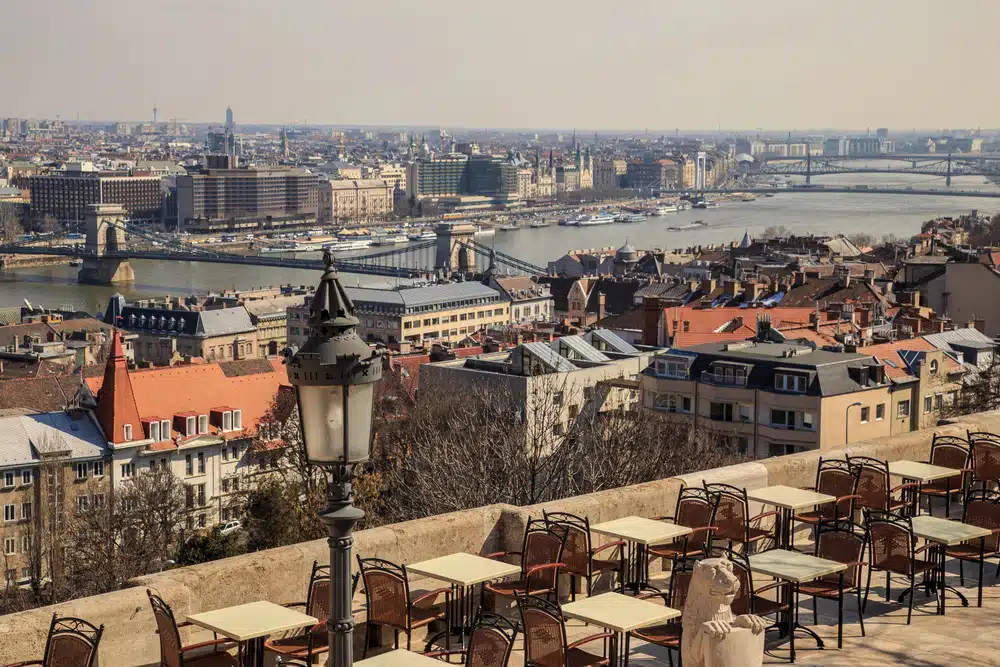
Section 2: Budapest Food and Drink Prices
The next thing you need to consider when determining your Budget for Budapest is the cost of food and drink. Budapest is known for its mouth-watering national dishes, energetic boat party’s and famous ruin bars. So, it is safe to say food and drink are a highlight of any Budapest Itinerary .
How much is a meal in Budapest?
Breakfast: In Budapest, a typical breakfast at a local café would cost around 1,000-1,500 HUF (€2.5/3), which includes pastries, eggs, coffee, or tea.
Lunch: In a local eatery or bistro where a soup, main course, and a drink would cost somewhere between 1,500-3,000 HUF (€3-5). If you opt for a more high-end restaurant, expect to pay around 5,000-7,000 HUF (€15-20).
Dinner: This is usually the most expensive meal of the day. In a local restaurant, you can expect to spend around 3,000-5,000 HUF (€8-15) for a main course. However, in fancier restaurants, prices can go up to 10,000-12,000 HUF (€25-30) per dish.
Street Food: If you are looking to keep costs down then why not check out Budapest’s incredible street food scene? You can find bites for as cheap as 500-1,000 HUF (€1.5-3). They usually have a range of food, from delicious Hungarian sausages to langos (deep-fried flatbread). If you’re looking for something a little heavier then expect to pay slightly more.
Budapest Beer Prices
Budapest is a city that loves its beer, and you’ll be able to find a pint to quench your thirst without breaking the bank.
Local Beer: If you’re in one of the city’s many bars or pubs, a pint of local beer, such as Dreher or Borsodi, will usually set you back around 500-600 HUF (€1.5-2).
Imported Beer: For international beer enthusiasts, imported beers are slightly more expensive, somewhere in the range of 800-1,000 HUF (€2.5-3).
Craft Beer: Budapest also has a burgeoning craft beer scene. Expect to pay anywhere from 1,000-1,500 HUF (€3-5) for these artisanal brews.
All these prices are only estimates
Where to Find Traditional Hungarian Dishes
If you’re in Budapest and looking to try some traditional Hungarian dishes, you’re in luck. The city is teeming with restaurants that serve authentic local cuisine.
Langos: This deep-fried flatbread is best enjoyed at local street food markets. Check out Karavan Street Food, located in the Jewish Quarter, for some of the best Langos in town. This typically costs around 500-800 HUF (€1.5-2.5), depending on the toppings.
Goulash: This hearty stew is a staple of Hungarian cuisine. Most traditional Hungarian restaurants will have it on their menu, but for an exceptional experience, visit ‘ Getto Gulyas ‘ in the 7th district. Expect to pay 1,500-2,500 HUF (€4.5-7.5) for Goulash.
Dobos Torte: For dessert, make your way to ‘ Auguszt Cukrászda ‘, a historic pastry shop in Budapest, to try Dobos Torte, a Hungarian sponge cake layered with chocolate buttercream and topped with caramel. Dobos range from 500-1,000 HUF (€1.5-3) each.
Section 3: Transport Prices in Budapest
Another element you need to consider when determining if Budapest is cheap enough for you Budget in the cost of transportation. Budapest has a fantastic transport system, with a variety of options to choose from including busses, trams and taxis.
Here’s a brief overview of the current prices (at the time of writing):
- Single Ticket: This costs 450 HUF, which roughly translates to about €1.30.
- 30-Minute Ticket: If you’re planning to use multiple modes of transport in a short period this could be a good option, costing 530 HUF or approximately €1.6.
- 60-Minute Ticket: For longer journeys, the 60-minute ticket might be more economical at 750 HUF, equal to around €2.2.
They also have multi travel day options, you can check the prices out here but in my opinion you will not need it as Budapest is an extremely walkable city. The only time I used public transport was taking part in my caving tour , the perfect activities for any adrenaline junkies out there! And visiting the Zugliget Chairlift (one of my favourite hidden gems ).
Are Taxi’s Cheap in Budapest?
Ok, so what happens when you are in a rush? You frantically need to get somewhere while in Budapest but don’t want to break the bank. Well, I have some good news for you, while Budapest does not have Uber , their taxi service tends to be rather affordable.
All taxi drivers need to have a license and are regulated by the government. The base fare when entering a taxi is 1000HUF (2.90€), with an additional 400HUF (€1.15) charged per kilometre. They also charge a waiting rate of 100HUF(€0.30) per minute.
If you decide to get a taxi from the Airport expect to pay around 9000HUF (€25), depending on traffic conditions and the exact location of your destination.
Tips on keeping transportation cheap in Budapest
To keep your travel expenses low in Budapest, consider utilizing the local bike-sharing system, known as MOL Bubi . It’s an affordable and eco-friendly alternative to taxis or public transportation.
For short trips around the city centre, the first 30 minutes of each ride are free. After that, small fees apply, making it still a cost-effective solution for longer journeys.
Lastly, walking is not only free, but it also allows you to truly soak in the city’s charm and discover hidden gems you might miss otherwise.
Budapest is an extremely walkable city , yes your step count may be high and your feet may be sore at the end of the day but the memories and experiences you will gain are priceless. Plus, it’s a great way to burn off all of that delicious Hungarian food you’ll be indulging in.
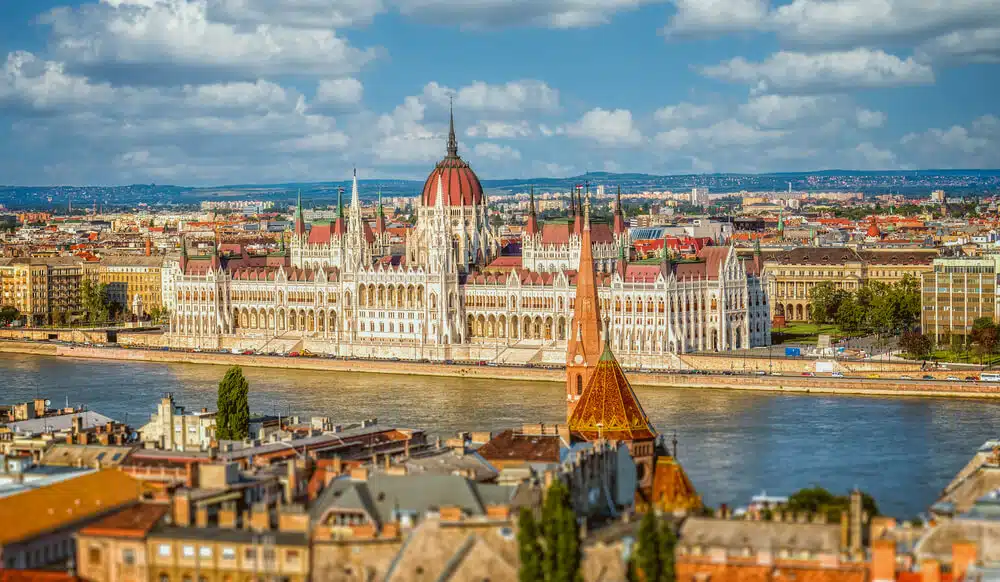
Section 4: Average Prices in Budapest for Attractions & Activities
Visiting Budapest is not just about exploring the city, but also about immersing yourself in its rich culture through the various attractions and activities it offers. Below is a list of some of the cities main paid attractions and their cost.
Szechenyi Baths: This beautiful thermal bath complex is one of the largest in Europe and a must-visit when in Budapest. The entrance fee varies depending on which package you choose, with the basic ticket costing around 5600HUF (€16) for weekdays and 5800HUF (€17) for weekends.
Parliament Building Tour: The iconic Parliament building is a popular tourist spot, and for good reason. The guided tour costs around 5000HUF (approximately €16) for EU citizens and 10000HUF (approximately €32) for non-EU citizens.
Danube River Cruise: A great way to see the city from a different perspective, a Danube river cruise can cost anywhere between 2000HUF (€6) for a basic one-hour tour to 7900HUF (€23) or more for a luxury dinner cruise.
List of 11 Cheap Things to Do in Budapest
If you are looking for affordable things to do in Budapest then the below list is perfect for you! Budapest is a wonderful city, one that should be on everyones Europe Itinerary , and the best part is you do not need to break the bank to visit.
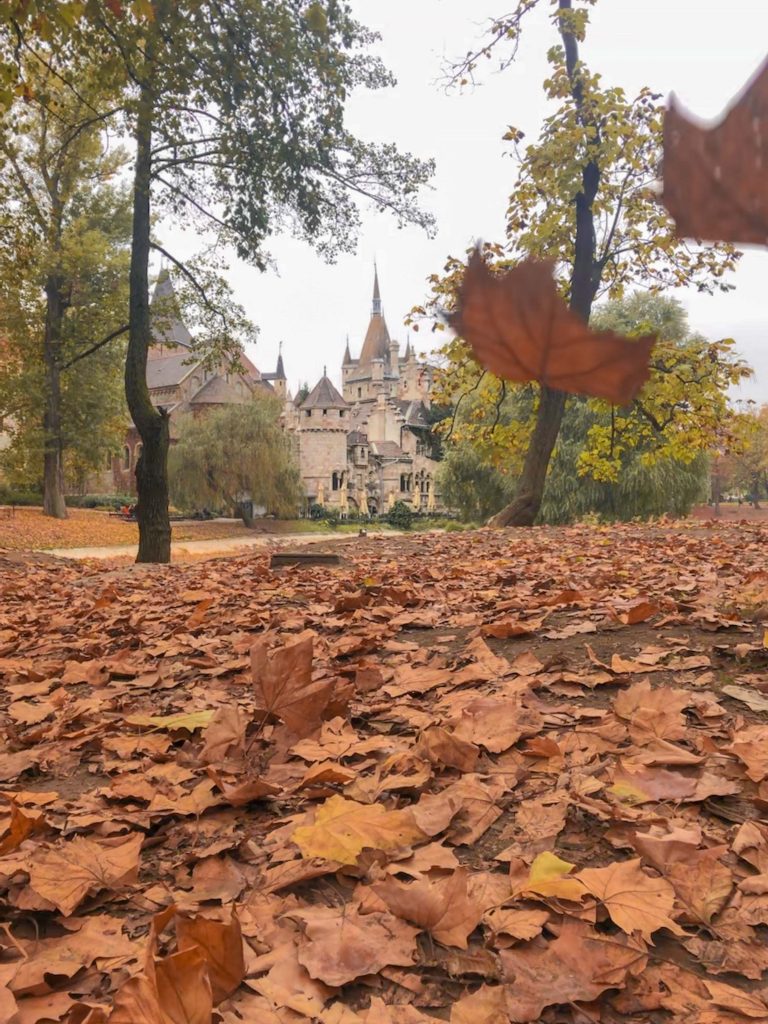
1. Budapest City Park:
The Budapest City Park is a haven for budget travellers. If you are looking for a tranquil green space to explore, then this is the perfect spot for you. Take some time to admire the beauty of Vajdahunyad Castle, or take a leisurely stroll around the picturesque lake, or just take a minute to yourself to relax.
For those planning a trip to Budapest in the winter months, you may be lucky enough to witness the frozen lake and stunning scenery.
The famous Szechenyi Thermal Bath are also located in the park, and while they do cost to visit, they are rather affordable for a spa experience. Also, they are a MUST when visiting Budapest for the first time.
2. Discover Gellért Hill:
If you’re up for a little more adventure, put on your comfy shoes and head towards Gellért Hill. While it does require a bit of a hike, believe me, the views from atop are worth every step. You won’t have to spend a dime relish in the panoramic view of Budapest’s stunning skyline, the winding Danube, and the city’s remarkable architectural marvels. If you’re lucky, you might even catch a glorious sunset painting the city in golden hues.
Moreover, tucked beneath the hill, you’ll find the historic Gellért Hill Cave Church which has witnessed the tumultuous past of the city. And did I mention the grandeur of the Liberty Statue that stands tall at the top, symbolizing freedom and offering a constant reminder of Hungary’s tumultuous past?
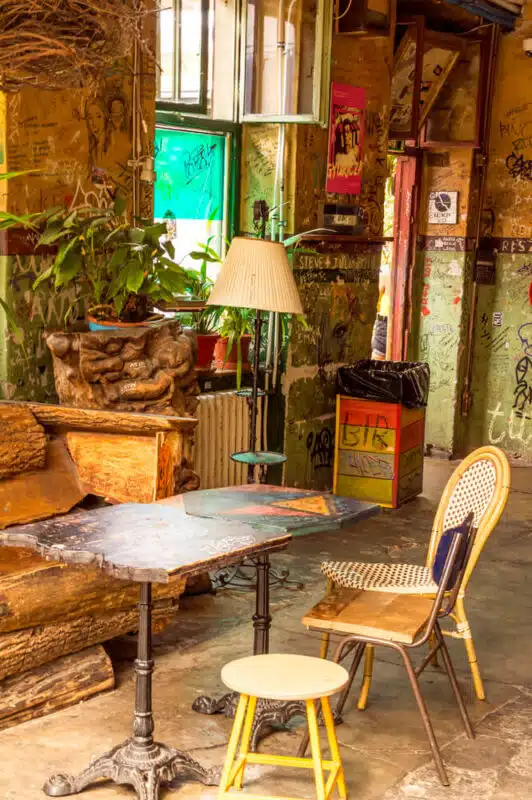
3. Explore the Ruin Bars:
Even if you’re travelling on a budget, Budapest’s famous ruin bars are an experience you won’t want to miss. These are some of the most famous aspects of the city. A truly unique pub experience, featuring abandoned buildings, factories, or warehouses.
It is no wonder travellers from all over the world keep on coming back. Budapest’s nightlife is one of the best in Europe.
From chill vibes during the day to lively DJ sets at night, there’s always something happening. And the best part? The prices are surprisingly pocket-friendly.
Whether you’re ordering local beers, and wines, or trying out the traditional Hungarian Palinka, these ruin bars will add a spark to your Budapest adventure without burning a hole in your wallet.
4. Discover Budapest’s Street Art:
If you’re a traveller on a budget, Budapest’s colourful street art is another must-do that won’t cost a dime. Take some time to walk around the city’s districts, admiring some of the talented work displayed by famous street artists. Each tells a unique story about the city’s history, culture, and the local’s way of life.
These wall murals quite literally turn the city into an open-air museum, one of my favourite things about this activity is you can explore at your own pace.
Keep an eye out for the rubrics cube, my favourite mural in Budapest.
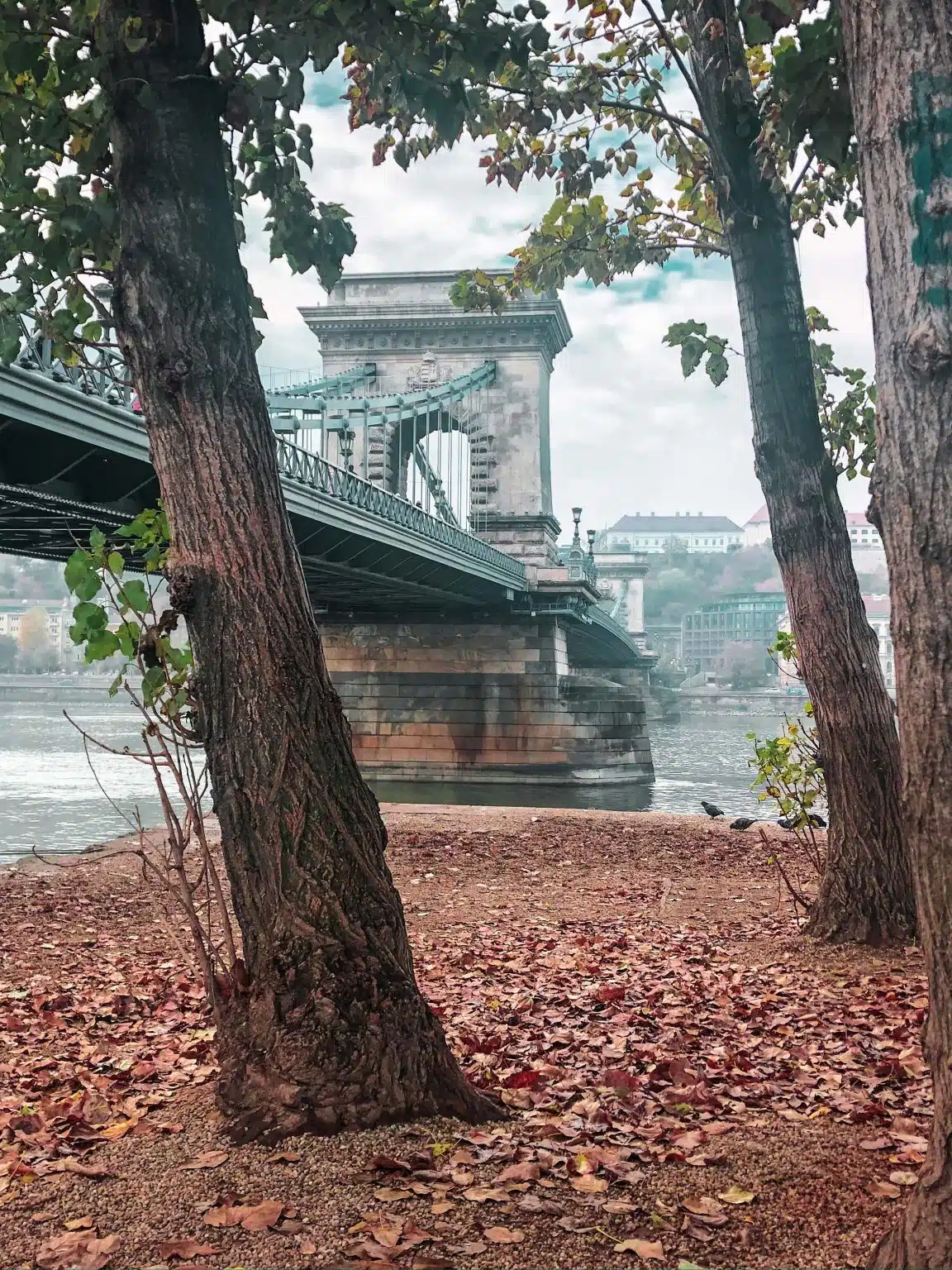
5. Take a Stroll Along the Danube:
For those travelling on a budget, a walk along the iconic Danube River presents an unbeatable opportunity to soak in the beauty of Budapest. This isn’t just a leisurely stroll; it’s a journey through the city’s historical heart, and guess what? It’s absolutely free.
As you walk, you’ll marvel at the sight of the majestic Hungarian Parliament Building, an architectural masterpiece that stands proudly on the river’s bank. A bit further, you’ll come across the symbolic Chain Bridge, a testament of Budapest’s resilience and progress.
Not to forget, the captivating Buda Castle sitting on the higher bank, offering magnificent views if you’re up for a little climb. One of the most meaningful landmarks in Budapest also lies on the banks of the Danube, the Shoes on the Danube is a memorial for the lives lost in the war.
6. Explore Margaret Island:
Next on our no-cost journey is the tranquil oasis of Margaret Island, right in the heart of the bustling city. Surrounded by the gentle flow of the Danube, this island offers a peaceful retreat – a place to unwind amidst nature, without reaching for your wallet.
The island’s vast parkland is dotted with stunning flower gardens, enchanting musical fountains, and even some surprising wildlife. If you’re up for a leisurely stroll, the island’s 5.3-kilometre rubber-coated jogging track is perfect.
Or maybe you’re in the mood for some history? Venture towards the ruins of a 13th-century Dominican convent and marvel at the island’s ancient past.
As the day fades away, the rhythm of the island changes, the light softens and you might find yourself experiencing one of the most serene sunsets of your life – right in the midpoint of the Danube.

7. Uncover the Charm of the Castle District:
The next stop in our cost-free adventure is the enchanting Castle District. Picture this – cobblestone streets lined with quaint houses, showcasing hues of pastel colours, and rich history etched in every corner. It’s like stepping into a fairytale , and guess what? It’s absolutely free to explore!
As you wander through the narrow streets, you’ll find yourself beneath the magnificent Buda Castle, a UNESCO World Heritage site that reigns supreme over the city. The architectural brilliance of the castle blends harmoniously with the panoramic city views, creating a sight that remains etched in memory.
Don’t forget to stroll down to the Matthias Church & Fisherman Batsion with its striking gothic architecture, telling tales of the past.
8. Free Walking Tours – A Budget Traveler’s Best Friend:
If you’re travelling on a budget, free walking tours are a fantastic option. They are a fantastic way to explore the city without having to eat too much into your budget.
Generally, the tours are led by locals who are passionate about their city and history, offering insights you won’t find in guidebooks.
It is also a great way of getting a feel for the city on the first day you arrive. Test out where you would like to explore more.

9. Discover Heroes’ Square:
I couldn’t leave out the wonderful Heroes’ Square. Imagine this – you’re standing in one of Budapest’s largest squares, surrounded by iconic statues depicting the Seven Chieftains of the Magyars and other important national leaders.
Just like in the Castle District, you’ll be struck by the sheer beauty of the place.
The square is also home to the Museum of Fine Arts and the Palace of Arts, so if you were looking for an extra activity these are great options, But it’s not just about the buildings and statues here.
The Square itself is a symbol of the country’s pride in its history and the heroes of Hungary’s past.
10. Snap a Picture at the Chain Bridge:
Just wait until you see the Chain Bridge! This iconic suspension bridge is a must-visit spot in Budapest, especially for the camera-happy among us.
Connecting the sides of Buda and Pest across the River Danube, the bridge offers breathtaking views of the cityscape.
Its majestic stone lions and stunning architecture make it an ideal backdrop for your travel photos.
Plus, at night, the illuminated bridge against the dark river is just uber-romantic. Whether you’re a photography enthusiast or just love capturing memories, the Chain Bridge is a spot you’ll definitely want to hit.
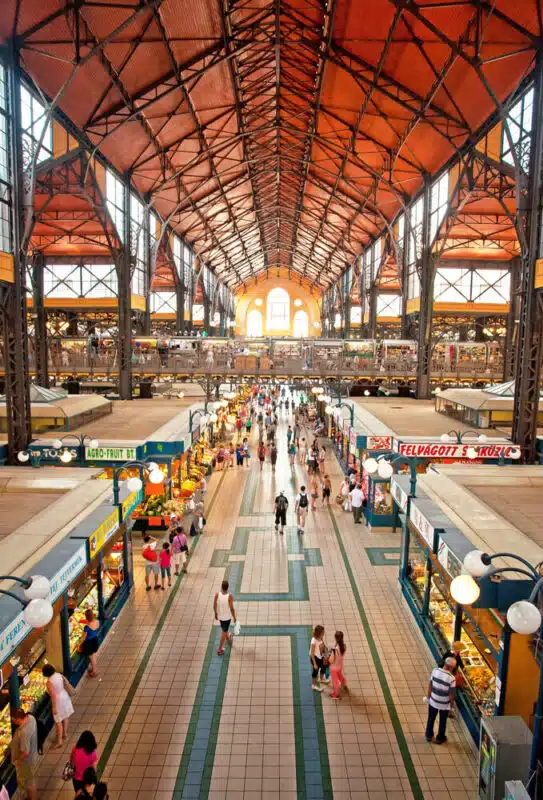
11. Visit the Central Market Hall:
The Central Market Hall is a paradise for savvy travellers looking to experience Budapest’s vibrant culture without overspending.
Here you can find an array of local goods, from fresh produce, and traditional Hungarian spices to artisan crafts and souvenirs. It’s a great spot to pick something up for loved ones out have to break the bank
Foodies will particularly love the opportunity to sample authentic local cuisine at extremely affordable prices.
Whether you’re picking up ingredients for a picnic in the City Park or hunting for unique, budget-friendly keepsakes, the Central Market Hall offers an authentic slice of Budapest life that won’t strain your wallet.
Section 5: The Breakdown of My Budapest Trip Cost
I spent 4 months backpacking across Europe and took careful note of how much I spent on the trip so I could report back with a budget for each destination. Below is my exact spending while in Budapest for 5 days. It is important to note, I didn’t do too many paid activities as this was my 4th time in the city and I cooked most of my own meals. So, if you do intend on visiting you may need to increase your budget according to your spending habits.
Hostel Stay (4 Nights): €84 Food: €79 Alcohol: €26.31 Activities (Just the chair lift): €10.12 Transport: €39.62 Total: €239 (€48 a day)
Section 6: Why is Budapest so Cheap?
Budapest is often considered a budget-friendly destination due to a number of factors.
The cost of living and the value of the local currency, the Hungarian Forint, compared to popular currencies like the Euro or US Dollar, makes it more affordable for tourists.
Moreover, the local economy is designed to accommodate a wide range of income levels, creating a substantial number of options that cater to budget travellers.
Whether it’s the cost of food, accommodation, or tourist activities, you’re likely to find that your money goes a lot further in Budapest than in many other European capitals.
But with that being said, while Budapest may seem affordable to tourists, that is not always the reality for locals. The average salary in Hungary is significantly lower than in other European countries, making it difficult for locals to afford the same luxuries and experiences that tourists may enjoy at a fraction of the cost.
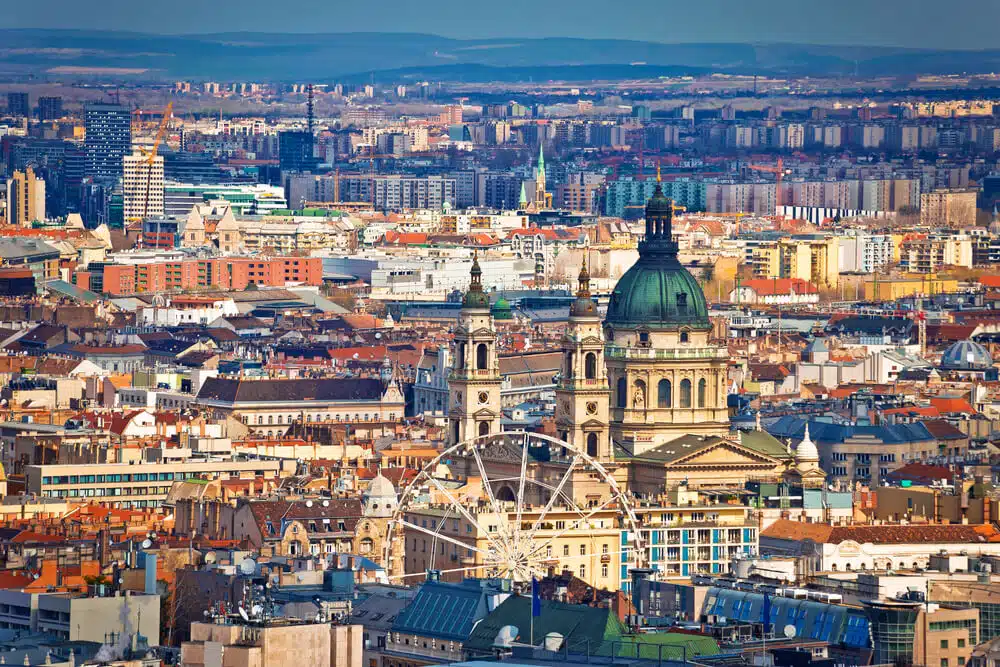
Section 7: Tips for Visiting Budapest Cheap
If you’re planning on visiting Budapest and want to stay within a tight budget, here are some tips to help you save money!
- Consider Public Transport: Budapest’s public transport system is efficient and affordable, reducing the need for taxis. You can travel by metro, tram, or bus to reach most parts of the city.
- Eat at Local Markets: Local markets, like the Central Market Hall, offer a variety of fresh and inexpensive Hungarian dishes.
- Free Walking Tours: There are several free walking tours that provide an excellent overview of the city’s history and culture. Remember to tip your guide according to your budget!
- Take Advantage of Free Attractions: Budapest has many free attractions, such as parks and historical monuments, that can be enjoyed without spending a penny.
- Visit in the Off-Season: Budapest experiences peak tourist seasons during the summer and Christmas holidays, resulting in higher prices. Consider visiting during the off-season to get better deals on accommodation and activities.
- Stay in Hostels: Hostels are a budget-friendly option for accommodation, especially for solo travellers. They also offer a great opportunity to meet other travellers and share tips on how to save money.
- Use Discount Cards: Many cities offer discount cards that provide discounted or free entry to popular tourist attractions and transport options. Check if Budapest has a similar option before you arrive.
- Bring a Reusable Water Bottle: Instead of constantly buying bottled water, bring a reusable water bottle and fill it up at public drinking fountains found throughout the city.
Section 9: Cost of Flights to Budapest
So, you’ve decided to take a trip to the beautiful city of Budapest. You’ve planned your itinerary and figured out how to do it all on a budget. But, one vital piece of the puzzle remains, and that’s your flight. The cost of flights will vary depending on when and where you’re booking from. But don’t worry, I’ve compiled some estimates to give you a general idea of what to expect.
- From New York City, USA: You can find round-trip flights ranging from $450 to $750.
- From London, UK: Prices for round-trip fares generally fall in the range of £50 to £200.
- From Sydney, Australia: Expect to pay between AUD 1,000 and AUD 1,500 for a round-trip ticket.
- From Tokyo, Japan: Round-trip flights usually cost between ¥60,000 and ¥120,000.
- From Johannesburg, South Africa: You can get a round-trip ticket for between ZAR 7,000 and ZAR 12,000.
Of course, these are all estimates, for finding the best flight deals I recommend using skyscanner and be flexible with your dates.
Section 8: Is Budapest Cheaper than Other European Cities
Yes, Budapest is generally cheaper than many other European cities. While it’s true that prices have been steadily climbing over the years, especially in the more touristy areas, you can still find plenty of good deals.
The cost of living in Hungary is still relatively low, which means you can enjoy local meals, public transportation, and accommodation for less than what you’d pay in cities such as Dublin or Paris.
That said, it’s always a good idea to budget wisely and keep an eye out for discounts and deals to maximize your savings.
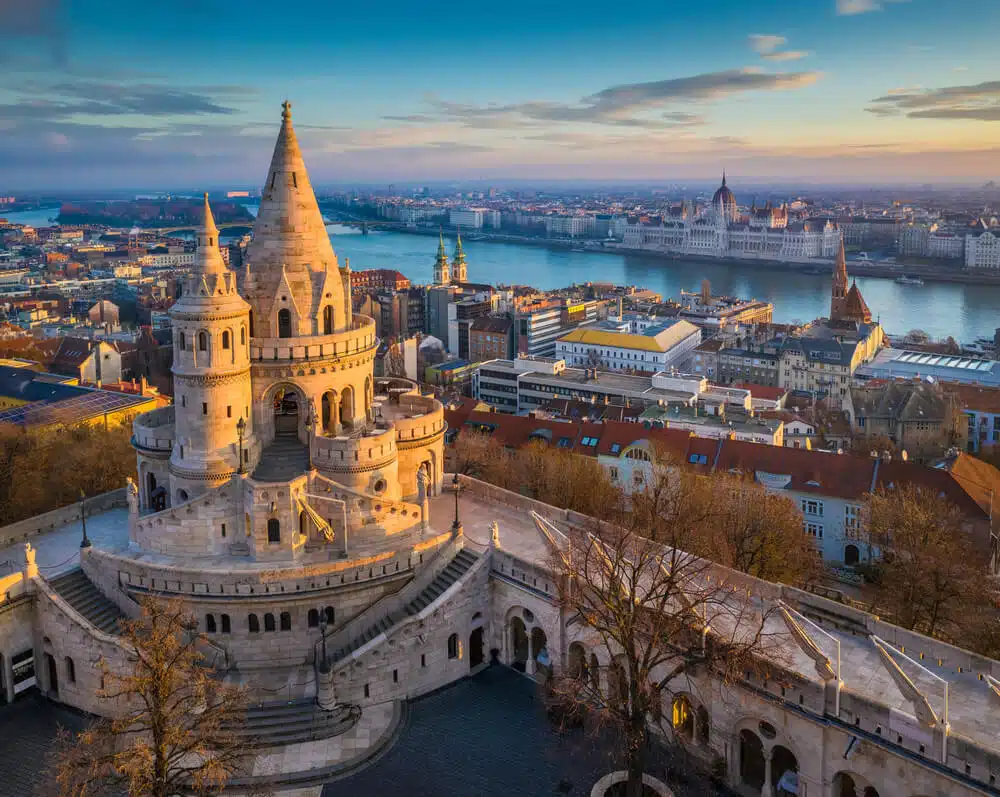
Section 9: Budapest Cheap FAQ
How expensive is budapest.
Budapest is quite affordable when compared to other European cities. On average, you can expect to spend around 15000 HUF (Hungarian Forint) per day, which includes meals, transportation, and sightseeing.
If you opt for budget-friendly options, you could manage to bring down your daily costs even further.
However, it’s also possible to indulge in more luxurious experiences, which will naturally incure a higher cost. At the end of the day it all comes down to your spending habits.
Can you visit Budapest on a Budget?
Absolutely! Visiting Budapest on a budget is quite feasible and doesn’t mean you’ll miss out on a memorable experience. The city is abundant with free or low-cost attractions.
You can explore the city’s history at the Buda Castle Quarter, stroll along the picturesque Danube promenade, or simply take in the city vibes at one of the numerous parks.
Food and accommodation prices are also considerably lower than in many other European cities. If you plan your trip wisely and are willing to do some cost-saving research, you’ll find that Budapest offers great value for the money.
How much will I spend after 2 days in Budapest?
If you’re planning to spend two days in Budapest, your expenses will largely depend on your budget and preferences. However, on average, you can expect to spend around 30000 HUF, which includes meals, sightseeing, and transportation. This estimate assumes you’re choosing moderately priced restaurants and using public transportation. Remember, this is just an estimate and the actual cost could be less if you’re thrifty or more if you prefer luxury. Planning ahead, looking for deals, and being mindful of your spending can help you save money and enjoy your Budapest experience without breaking the bank.
Sure, it’s possible to have a budget-friendly trip in Budapest! The city is brimming with affordable and even free attractions. You can delve into Budapest’s rich history at the Buda Castle Quarter, wander the scenic Danube promenade, or simply soak in the city’s ambience at one of the many parks.
Compared to many other European cities, Budapest offers more affordable food and accommodation options. With careful planning and some cost-saving strategies, you’ll discover Budapest is quite a bargain.
The amount of money you’ll spend on a two-day trip to Budapest largely depends on your budget and tastes.
But to give you a ballpark figure, you can expect to spend around €200-350, including accommodation, meals, sightseeing, and transportation.
Of course, this comes down to personal spending habits but it is definitely doable for this price.
How much would it cost to spend one week in Budapest?
A week-long stay in Budapest will undoubtedly offer a more immersive experience, allowing you to explore the city’s hidden gems at your own pace.
Depending on your budget and personal preferences, the average cost for a week can range from €500 to €1500. This estimate includes accommodation in a budget or mid-range hotel, meals at moderate to high-end restaurants, public transportation, and entrance fees to various attractions.
As you can see, the cost varies greatly as it is nearly impossible to suggest a budget without knowing individual circumstances and travel style.
Should I book a trip to Budapest?
Yes, without a doubt, Budapest is a city that is worth the visit . It is a fun, safe and unique place to explore with an array of things to see and do. You could be busy for days! The city is known for its stunning architecture, delicious food and thermal baths. Whether you’re a solo traveller, couple or family, Budapest caters to all types of travellers. And is sure to make lasting memories for those who decide to visit.
Conclusion: Is Budapest Cheap?
In conclusion, Budapest offers a cost-effective travel experience compared to many other European cities. Despite gradual price increases, particularly in tourist hotspots, Budapest continues to offer value for money.
The lower cost of living in Hungary allows for more affordable local eating experiences, public transport, and accommodation than you would typically find in cities like Dublin or Paris.
However, it’s important for travelers to budget wisely and be on the lookout for discounts and deals to make the most of their money.
As always, try to walk as much as possible, eat at local restaurants, and be open to exploring beyond the popular tourist spots for a truly budget-friendly experience.
Similar Posts
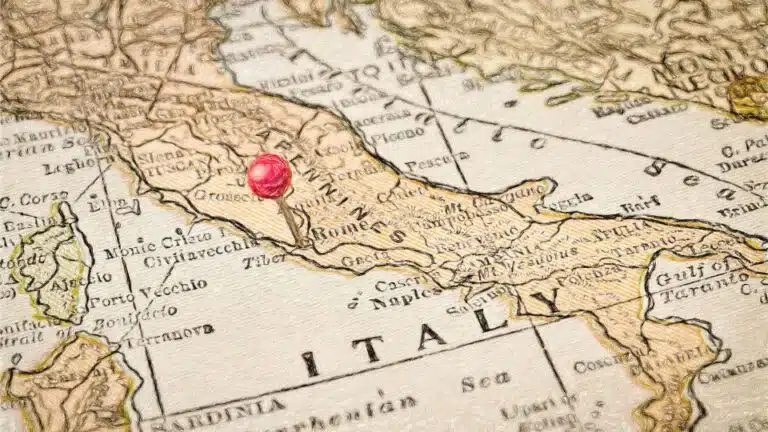
Where is Rome? (A 2024 location travel guide)
Rome is without a doubt one of the most famous cities in the world. Known for its striking landmarks, influential history and mouth-watering food. But… before planning your visit you may find yourself wondering…Where is Rome? We see this fantastic city on our TV screens, computers and in cinemas but a lot may not be…
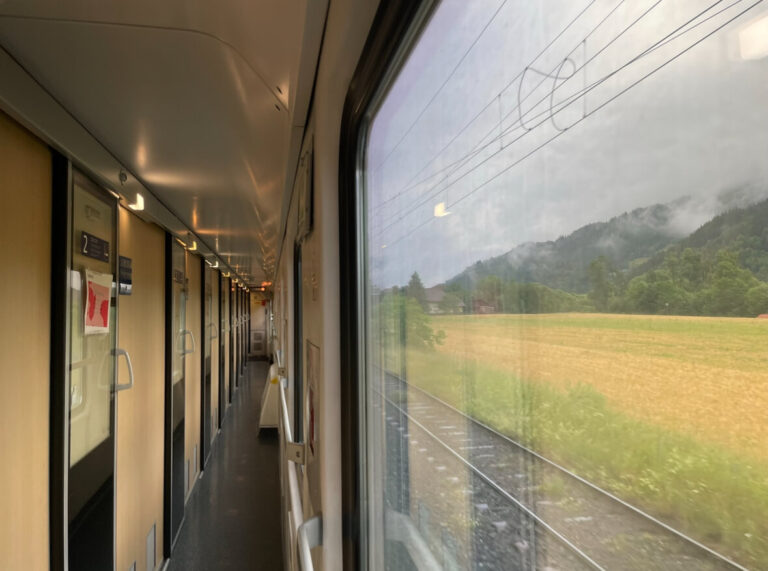
What to expect from Interrail Night Trains (my real-life experience)
Are you planning on Interrailing for the first time? You’ve sat down, picked out your route, but there is still one thing on your mind: ‘the interrail night trains’. You may find yourself asking… Are they safe? Are they worth it? How do they work? It’s natural to be a little concerned, I was too….
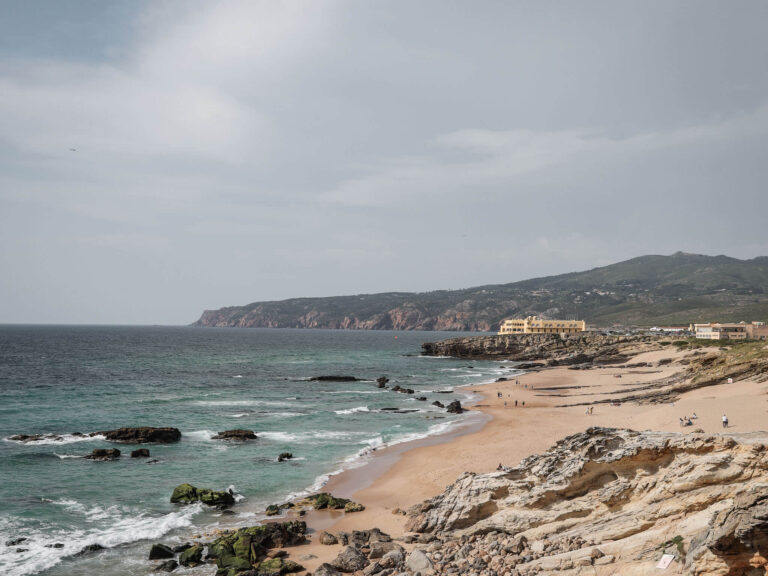
18 Best Beaches in Cascais That You Should Visit!
Cascais is a stunning seaside town not too far from Lisbon that see’s over half a million visitors each year. The town is known for it’s white sandy beaches, excellent swimming conditions and of course surfing. I have been lucky enough to visit on a number of occasions and wanted to write a detailed guide…
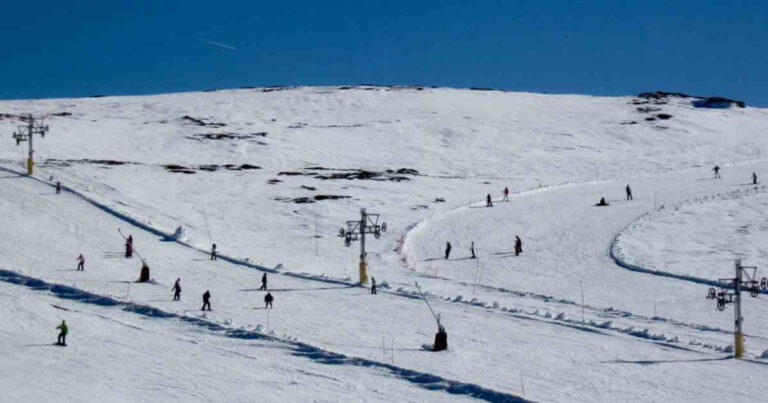
Does it snow in Portugal? What to Expect from a Portuguese Winter!
You may have found yourself wondering, ‘Does it snow in Portugal?’ before planning your trip in the off-season. Well, luckily, you are in the right place to find out. While Portugal does have a Mediterranean climate, that does not mean the country does not experience some snowfall during the winter months. So, in this…

Interrail Budget: Cost Breakdown, Money Saving Tips & More
I am a strong believer that everyone should go on an interrail trip at least once in their lifetime. It is an unforgettable experience, full of unique adventures and exciting memories. But…there is no denying it, travelling around Europe is EXPENSIVE! It can be hard to determine how much you will spend before jetting off….
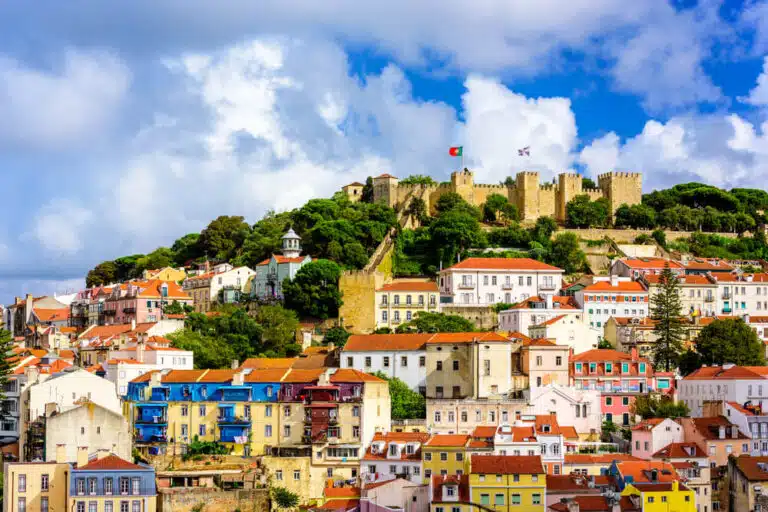

Is Lisbon Expensive? (A 2024 Cost Breakdown)
So, you’re planning a trip to the stunning capital of Portugal, but you have one question before you commit and book your flight. ‘Is Lisbon Expensive to Visit?’. Well, in this post we are going to break it down. Let’s take a look at just how much a trip to Lisbon costs, from accommodation and…
Leave a Reply Cancel reply
Your email address will not be published. Required fields are marked *
Save my name, email, and website in this browser for the next time I comment.
Nomadic Matt's Travel Site
Travel Better, Cheaper, Longer
Hungary Travel Guide
Last Updated: April 29, 2024
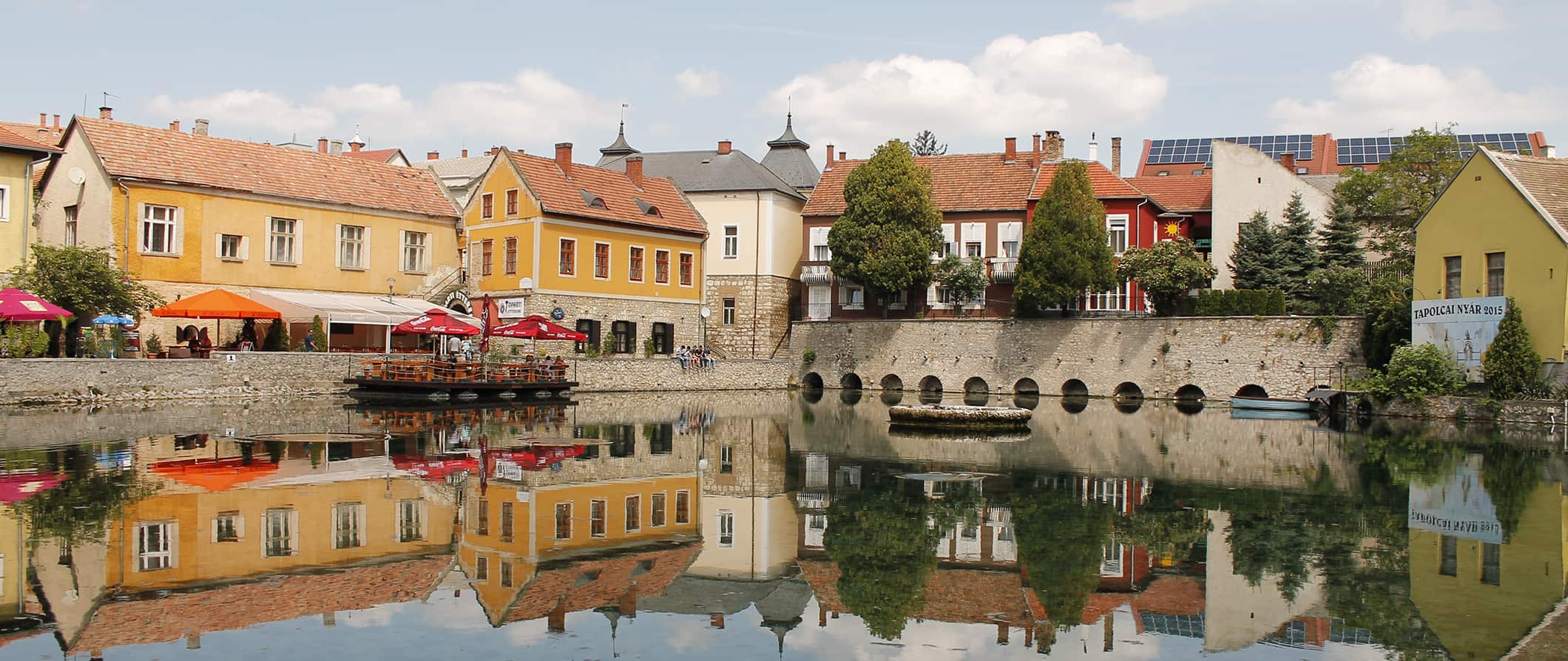
Hungary is one of the many underrated gems of Europe . Compared to pricey Western Europe, Hungary offers incredible value. It boasts beautiful landscapes, rich history, hearty food, and affordable nightlife ( Budapest is one of the best nightlife spots on the continent).
You’ll also find fewer crowds, cheaper prices, beautiful national parks, historic city centers, and friendly people.
It’s one of my favorite places to explore in Europe!
While most visitors only visit Budapest, there is so much to see elsewhere around the country. It always surprises me that, for a country in the middle of Europe, so few people actually bother to explore it!
This travel guide to Hungry can help you visit the country on a budget and ensure you have an epic trip without breaking the bank.
Table of Contents
- Things to See and Do
- Typical Costs
- Suggested Budget
- Money-Saving Tips
- Where to Stay
- How to Get Around
- How to Stay Safe
- Best Places to Book Your Trip
- Related Blogs on Hungary
Click Here for City Guides
Top 5 things to see and do in hungary.
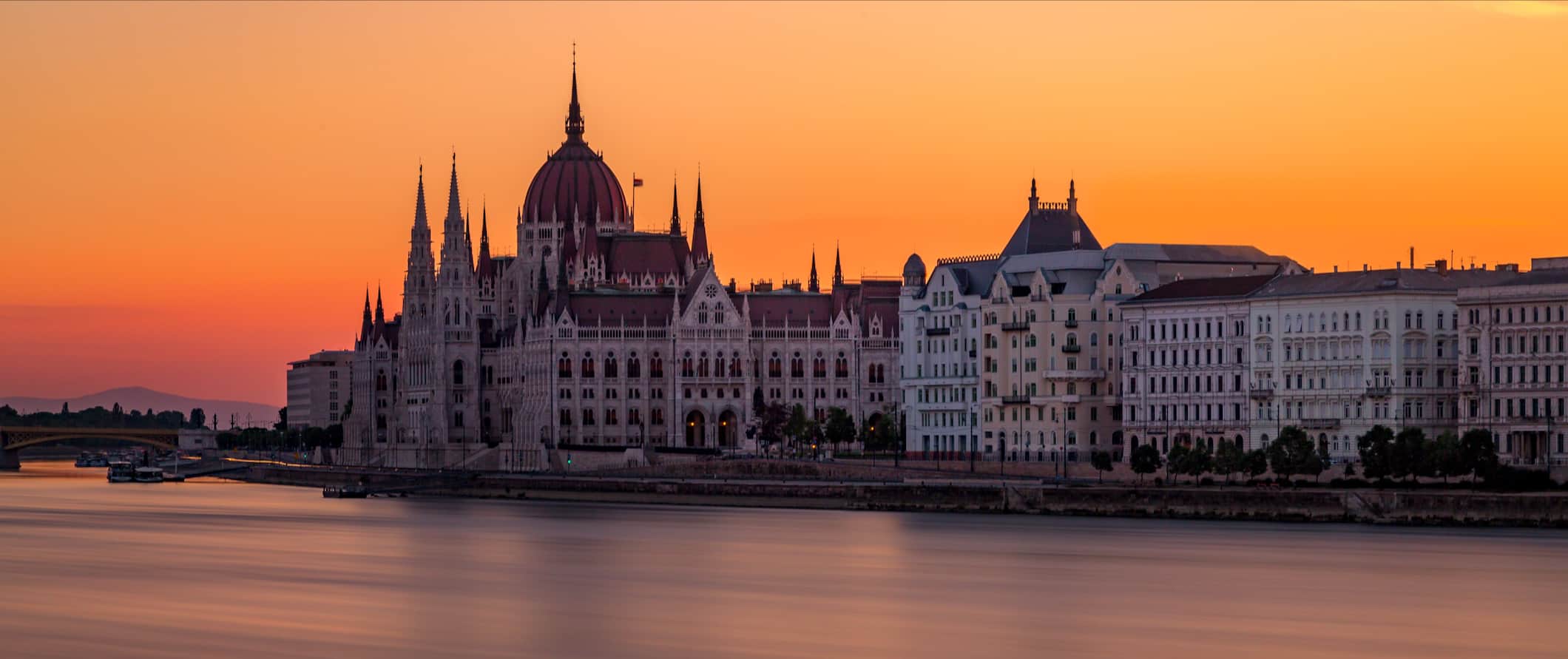
1. Explore Budapest
With its cheap accommodation, a multitude of thermal baths, and historic castles, Budapest is always a big hit with travelers. On a visit to Hungary’s capital city, you can explore underground caves, marvel at the stunning architecture, and enjoy the incredible nightlife. Cruise the river Danube on a riverboat to check out the views during the day, and then dance the night away when the boats turn into some of the city’s best late-night clubs. It has lots to do, cheap food, and a lively atmosphere. It’s one of my favorite cities in the world!
2. Visit the ruin bars
After World War II, many buildings in the city were left ruined and abandoned. Squatters, then artists, and now hipsters moved into them and have turned them into eclectic “ruin bars” that even the locals love. The atmosphere is grungy and unique with rundown exteriors that open into hip spaces for dancing, performance art, and theater. Decorated with reclaimed materials and quirky antiques, the ruin bars are an iconic part of Hungary’s nightlife. Szimpla Kert and Fogasház are among my favorites.
3. Soak in the largest thermal lake in the world
Hévíz is located near Lake Balaton and is home to the largest swimmable thermal lake in the world, Lake Hévíz. Whatever the season, the lake remains a perfect temperature for taking a dip in the therapeutic waters which are rich in minerals like magnesium, calcium, sulfur, and hydrogen carbonate (Hungary’s thermal waters have been used for thousands of years for their health benefits). In the early 1900s the area became a popular spa resort destination, with visitors flocking from all around Europe. There isn’t much to the town beyond this, but it makes for a neat day trip if you’re in the area. Single entry tickets are 3,500 HUF for three hours and there is a range of spa services available too.
4. Hike Gulács Hill
This inactive volcano stands around 400 meters (1,312 feet) high and makes for a wonderful hike. The path is rugged and often covered in dense forests or fallen trees, so it’s not ideal for children. Various trails snake up the mountain, and on the way, you can visit other landmarks like an old, abandoned quarry. Mysterious paths continuously intersect and lead to nowhere, so it’s easy to get a little lost, and dense woods add to the mystique of the hike. From the first observation point, you can see all the way to Lake Balaton. You’ll get stunning views of the entire area and it’s only a 3-kilometer (2-mile) trek. It makes for an easy day trip from Budapest.
5. Take a trip to Eger
Tucked away in northern Hungary near the Bükk Mountains, this town dates all the way back to the 10th century. It is known for its historic castle, which was originally a manor house and chapel that overlooked the valley. Throughout the 11th and 12th centuries, the castle suffered major damage and was rebuilt and fortified multiple times until the church began to demolish the structure in the late 1700s. Luckily, the demolition was stopped, and archeological digs and excavations began in the 20th century. Today, visitors can explore the remains of the medieval bishop’s castle for 2400 HUF. Eger is also famous for its stunning Baroque and architecture and Turkish ruins, thermal baths, and the best red wine in the country. You can buy wine directly from those who make it, so this is a good place for souvenirs — or to stock up for yourself!
Other Things to See and Do in Hungary
1. dance at the sziget music festival.
The Sziget Music Festival is one of the largest music festivals in Europe. It takes place every August for one week on Margaret Island in Budapest, right on the Danube River. Because of its size and international popularity, tourists and locals alike flock to Budapest to take in the scene. With over 1,000 performances, there is something for most musical tastes. You can book tickets online. Prices start around 132,000 HUF for a full festival pass.
2. Relax at Lake Balaton
Lake Balaton is the biggest freshwater lake in Central Europe and is known affectionately as the Hungarian inner sea. It’s a popular tourist destination both for visitors and nationals thanks to its beaches and volcanic hills. In Tihany, you can visit a Benedictine Abbey that dates to 1065 CE (admission is 2,200 HUF). Towards the north of the lake is a wine-growing region, wetlands, and some epic hiking trails. For those looking for more relaxation, you’ll find over 1,000 hot springs famed for their medicinal properties here. One of the most popular is Héviz Lake (mentioned above) which also offers visitors a whole range of different spa treatments. Treatments start from 3,900 HUF for a 35-minute massage.
3. Cruise along the Danube
The Danube is the second-longest river in Europe (the Volga is the longest). The river runs through the entire country and you can visit many of the small towns that line its coast by taking a boat cruise (you can even cruise into Germany if you have time). Expect to pay around 22,000 HUF for a full-day cruise that includes lunch. For a shorter 4-hour cruise without food included, prices start at 4,000 HUF.
4. Visit the Necropolis in Pécs
Located just a couple hours from Budapest, this UNESCO World Heritage Site dates to the 4th century. It’s the largest necropolis in Europe, with several burial chambers open to the public, including multi-level chambers. Admission is 1,700 HUF. It’s currently closed for renovations and expected to reopen in early 2023.
5. Take a food tour
Hungarian cuisine is both delicious and hearty. If you’re a foodie like me and want to sample the country’s most popular dishes (while learning about their cultural importance), take a food tour. Food Tour Budapest runs in-depth guided tours around Budapest that can introduce you to the region’s best dishes and teach you how they came to be. Tours last a few hours and start at 18,200 HUF.
6. Admire the National Gallery
Established in 1957 and located in the Royal Palace in Budapest, the National Gallery is home to works from prominent Hungarian and European artists. There are a lot of paintings and sculptures here, as well as a collection of altarpieces from the 1400s. You can also tour the building’s dome for views of the city. It’s not a huge gallery, so you only need a few hours to take it in. Admission to the gallery is 3,400 HUF per person and an audio guide is 1,100 HUF.
7. Go birdwatching
Hungary is home to a surprising number of bird species. Hot spots for birding include Hortobágy, Lake Ferto, Kiskunság, Lake Tisza, Bükk, and the Zemplén Mountains. In these places, you have a fair chance of seeing great bustards, sakers, imperial eagles, pygmy cormorants, woodpeckers, and even Ural owls. There are several companies that can arrange small group trips to these places (often combined with other activities, like wine tastings). Tours aren’t cheap, though — multi-day tours cost upwards of 240,000 HUF — so consider a self-guided trip if you’re on a budget.
8. Visit the House of Terror museum
Hungary is infamous for the brutality of its leaders under the Nazi and Soviet regimes. This building is both a museum and a memorial paying homage to the thousands of people who were tortured and brutally killed here. It’s not a light way to spend your afternoon, but you’ll get heaps of insight into Hungary’s complex history. Admission is 4,000 HUF.
9. Cycle the countryside
There are over 2,000 kilometers (1,243 miles) of cycling paths in the Hungarian countryside (and 200 kilometers/125 miles around Budapest). Lake Balaton has a popular cycling route that runs all the way around its perimeter. For those looking to go further afield on a multi-day excursion, the paths in Hungary also connect with routes in Germany and Austria . The routes are easy to navigate, though if you prefer to take a guided tour there are plenty available. A one-day guided tour costs between 22,220-55,550 HUF per person. If you are traveling with a bicycle, it can be transported by train within Hungary.
10. Explore Tengerszem Nature Preserve
This nature preserve is in an old stone mine, which closed in 1907. Nature has slowly reclaimed the area and water has filled the massive gorge. The site was declared the most beautiful area in all of Hungary in 2011. It’s a unique location to spend the day as its protected status means there are all kinds of incredible flora and fauna to be seen. The preserve is near Sarospatak in the northeast of the country (it’s just 20 minutes from the border with Slovakia ).
11. Soak in the baths
Thermal baths are a big part of Hungarian culture. Whether you’re relaxing in the famous Szechenyi Baths in Budapest or checking out a small hot pool in the countryside, you can’t leave Hungary without partaking in this local pastime (there are over 1,300 thermal baths in the entire country). Weekday admission is around 3,800 HUF per person, with prices rising slightly on the weekend.
12. Visit the Royal Palace (Buda Castle)
They call it a castle, but the Royal Palace in Budapest is more of a palace complex than a proper ‘castle.’ Though it was originally constructed in the 13th century, the huge Baroque complex you see today was built between 1749 and 1769. The palace’s days of being a luxurious living space ended in World War II when Nazi (and then Russian) troops looted it. Today, it’s home to a collection of museums. Beneath the castle, there is a spooky labyrinth that tourists can explore for 3,000 HUF.
13. Wander the Great Market Hall
At the head of Budapest’s Vaci Utca, the kitschy shopping street in town, is the Great Market Hall. Built in 1897, this is the oldest and largest indoor market in the country. Its incredible exterior is covered in the same ceramic tiles as are on the roof of Matthias Church on the top of Buda Hill. Walk the aisles and check out local produce and artisanal crafts, buy local spices like paprika, and sample the tasty food stalls. This is the perfect place to people-watch, have lunch, and pick up souvenirs. Food tours are also available at 11am every Saturday and cost around 13,300 HUF for a two-hour tour. The market is open Monday-Saturday.
14. Soak in the Cave Bath
If you enjoy spas and are in need of some pampering, the Cave Bath at Miskolctapolca is a must. Located within a natural cave system two hours east of Budapest, here the water is rich in natural minerals and is said to contain healing properties. The water is a relaxing 30°C (86°F) and there are several different pools to enjoy as well as reasonably priced spa treatments available. The baths are open year-round (except January) and admission starts at 3,500 HUF.
15. Attend the Busójárás Festival
This slightly scary festival happens annually in the lead-up to Ash Wednesday in the town of Mohács. During this time, locals parade through the town dressed in traditional clothing and wearing demonic face masks. No one is 100% certain where the tradition comes from as there are two very different stories, so it really depends on who you ask. One story is that it stems from an attempt to frighten off the Ottoman invaders. The other is that it’s part of a pagan tradition to frighten away the winter. Either way, it’s an interesting festival to witness. The dates of the festival change each year to coincide with Easter.
16. Tour the wine region
If you are a wine fan, the region of Eger in northern Hungary is where you’ll find the country’s best wines. There are many vineyards here where you can take a tour as well as sample and buy wine. A private wine tour and tasting costs upwards of 60,000 HUF so if you are on a tight budget keep an eye out for special wine-tasting evenings. Here you can tour the cellars and enjoy plenty of samples at a discount. Two of the most popular wineries to visit are the Gál Tibor winery and Bolyki Pincészet.
17. Explore the Caves of Aggtelek Karst
The Caves of Aggtelek Karst are part of Aggtelek National Park, one of the only UNESCO World Heritage Sites in the country. There are 712 caves spread out over 138,000 acres that run along the border of Hungary and Slovakia. The site is made up of seven areas with five in Hungary and two in neighboring Slovakia. Within the caves, you can see some of the largest stalactites and stalagmites in Europe. You can also book a tour that takes you across the border to see the caves in Slovakia. To enter the caves, you must be part of a guided tour. Admission is 2,200 HUF. For more information on tour times check the official website .
18. Go hiking in Hortobágy National Park
Located in the eastern part of Hungary, this is the largest protected landscape in the country. The park was created in the 1970s and became a UNESCO World Heritage Site in 1999. The grassy plains (also known as a steppe) are home to all sorts of domestic animals, including cattle, horses, and water buffalo tended to by traditional herdsmen. Some of the rarest animal breeds can be found here, including great bustards, lesser white-fronted geese, white-tailed eagles, and falcons. The landscape is incredibly stunning.
19. See the Bokod Floating Houses
Bokod and Oroszlány are two towns located outside Budapest. The towns are home to a collection of cottages and cabins on stilts that line the coast of Lake Bokodi. The cabins and cottages are popular with the locals in the summer months, though there are some fishermen who spend time here in the winter as well (the lake is famous for almost never freezing, even though Hungary has cold winters). It’s an off-the-beaten-path destination that few tourists visit.
20. Visit the Hungarian Versailles
Eszterháza is a vast palace located near the border with Austria and is often considered the Hungarian version of France’s Versailles . Constructed in the late Baroque style, the palace was built throughout the 18th century after being commissioned by Prince Nikolaus Esterházy, who wanted a palatial getaway for his hunting expeditions. There are 126 rooms in the palace and the library houses over 22,000 books. Daily tours are available in English if you want to see this decadent getaway with your own eyes. Admission is 6,000 HUF and guided tours are 7,300 HUF.
For information on specific cities in Hungary, check out these guides:
- Budapest Travel Guide
Hungary Travel Costs
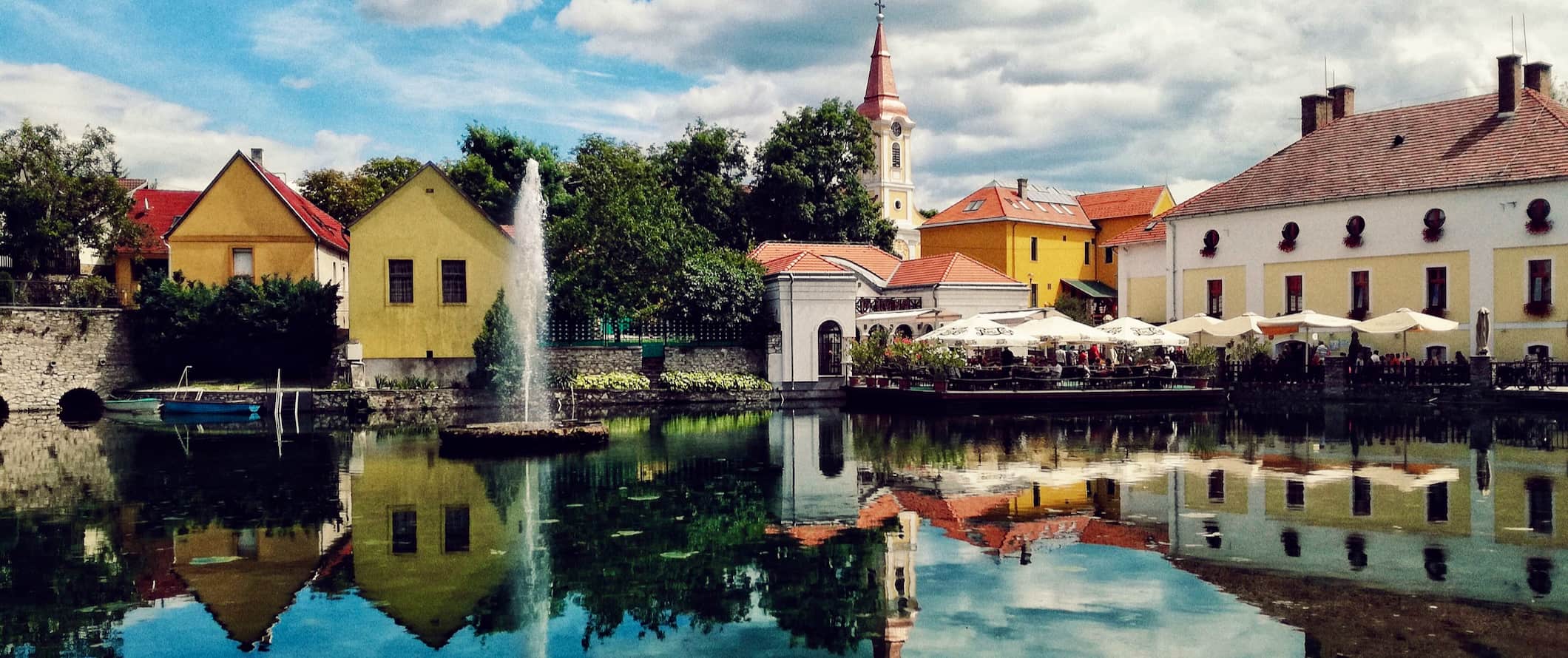
Accommodation – Hostels are incredibly affordable in Hungary, costing around 3,200 HUF per night for a bed in a dorm with 6-8 beds. Private rooms can be found for as little as 9,000 HUF per night. Free Wi-Fi is common, and a few hostels also offer free breakfast. Most hostels have kitchens if you plan on cooking your own meals.
Campsites can be found around the country, usually costing 3,500 HUF for a basic tent plot for two people without electricity. Wild camping is not legal.
Budget hotels can be found for as little as 9,800 HUF per night. For a double room with Wi-Fi and free breakfast, expect to pay closer to 15,300 HUF.
Airbnb is available around the country, with private rooms starting at 7,000 HUF per night (though they average 15,000 HUF). For an entire home or apartment, expect to pay closer to 15,000-20,000 HUF.
Food – Traditional Hungarian food is inexpensive and hearty. It’s very much a “meat and potatoes” country, with popular dishes being meat stew, smoked meats, casseroles, and dumplings. Túró is a popular local cheese and fruit pastries are a popular (and traditional) dessert. Be sure to try halászlé , a hot and spicy fish soup with paprika.
A meal at a restaurant serving traditional cuisine costs around 2,000 HUF. For a multi-course meal and a drink at a restaurant with table service, expect to pay closer to 6,000 HUF. In the larger cities, fast food (think McDonald’s) can be found for around 2,200 HUF.
You can find pizza for around 2,100 HUF for a medium while Chinese food costs around 2,900 HUF. Beer costs around 500 HUF while a latte/cappuccino is 450 HUF. Bottled water is 275 HUF.
If you plan on cooking your own meals, a week’s worth of groceries costs around 12,000 HUF. This gets you basic staples like rice, pasta, seasonal produce, and some meat.
Backpacking Hungary Suggested Budgets
On a backpacking budget of 11,500 HUF per day, you can stay in a hostel dorm, cook most of your meals and eat a little fast food, limit your drinking, use public transportation to get around, and do mostly free activities like walking tours and hiking. If you plan on drinking, add another 600-1,200 HUF to your daily budget.
On a mid-range budget of 29,500 HUF per day, you can stay in a private hostel room or Airbnb, eat out at cheap restaurants serving traditional cuisine, have a few drinks, take the occasional taxi to get around, and do more paid activities like visiting museums and lounging in the thermal baths.
On a “luxury” budget of 48,000 HUF per day, you can stay in a hotel, eat out anywhere you want, drink as much as you want, rent a car for day trips, and do more guided tours and paid tours. This is just the ground floor for luxury though. The sky is the limit!
You can use the chart below to get some idea of how much you need to budget daily, depending on your travel style. Keep in mind these are daily averages — some days you’ll spend more, some days you’ll spend less (you might spend less every day). We just want to give you a general idea of how to make your budget. Prices are in HUF.
Hungary Travel Guide: Money-Saving Tips
Hungary is a very affordable destination. It’s hard to spend money here unless you’re out partying all the time or splashing out to visit spas. That said, it never hurts to save more money! Here are some tips to help you make the most of your budget in Hungary:
- Take a free walking tour – Free walking tours are available in Budapest and are the best way to get the lay of the land for cheap. You’ll learn a lot about the city and get access to an expert local guide who can answer your questions. Be Original Tours runs an interesting tour to get you started. Just be sure to tip your guide!
- Stay with a local – Staying with a local via Couchsurfing is a great way to save money and meet a knowledgeable local who can share their insider tips and advice.
- Cook your own meals – While eating out isn’t too expensive here, if you’re on a budget it’s cheaper if you cook your own meals. Head to a local grocery store and save money!
- Rideshare – Ridesharing apps like BlaBlaCar allow you to share rides with locals in order to get around the country (it’s best for medium and long distances). Everyone is registered and verified so it’s quite safe, and while it isn’t free it’s likely more interesting (and faster) than taking a train or bus.
- Walk everywhere – Most cities in Hungary are quite walkable (even Budapest). Plan your days strategically so you can limit your use of public transportation and capitalize on the opportunity to explore on foot.
- Get the Budapest Card – The Budapest Card is a travel pass that provides discounts and deals on attractions and activities in the city. You get free public transport, entry to the Lukács thermal baths, and entry to 17 museums. A 24-hour card costs 11,870 HUF, a 48-hour card costs 17,600 HUF, and a 72-hour card costs 23,000 HUF.
- Bring a water bottle – The tap water here is safe to drink so bring a reusable water bottle to save money and reduce your plastic use. LifeStraw is my go-to brand as their bottles have built-in filters to ensure your water is always clean and safe.
Where to Stay in Hungary
Hungary has lots of hostels in its major cities. Here are some of my suggested places to stay in Hungary:
- Vitae Hostel (Budapest)
- Carpe Noctum Original (Budapest)
- Wombats City Hostel (Budapest)
- Tisza Corner (Szeged)
- Active Hostel & Guesthouse Keszthely (Keszthely)
- Nap Hostel Pecs (Pécs)
How to Get Around Hungary
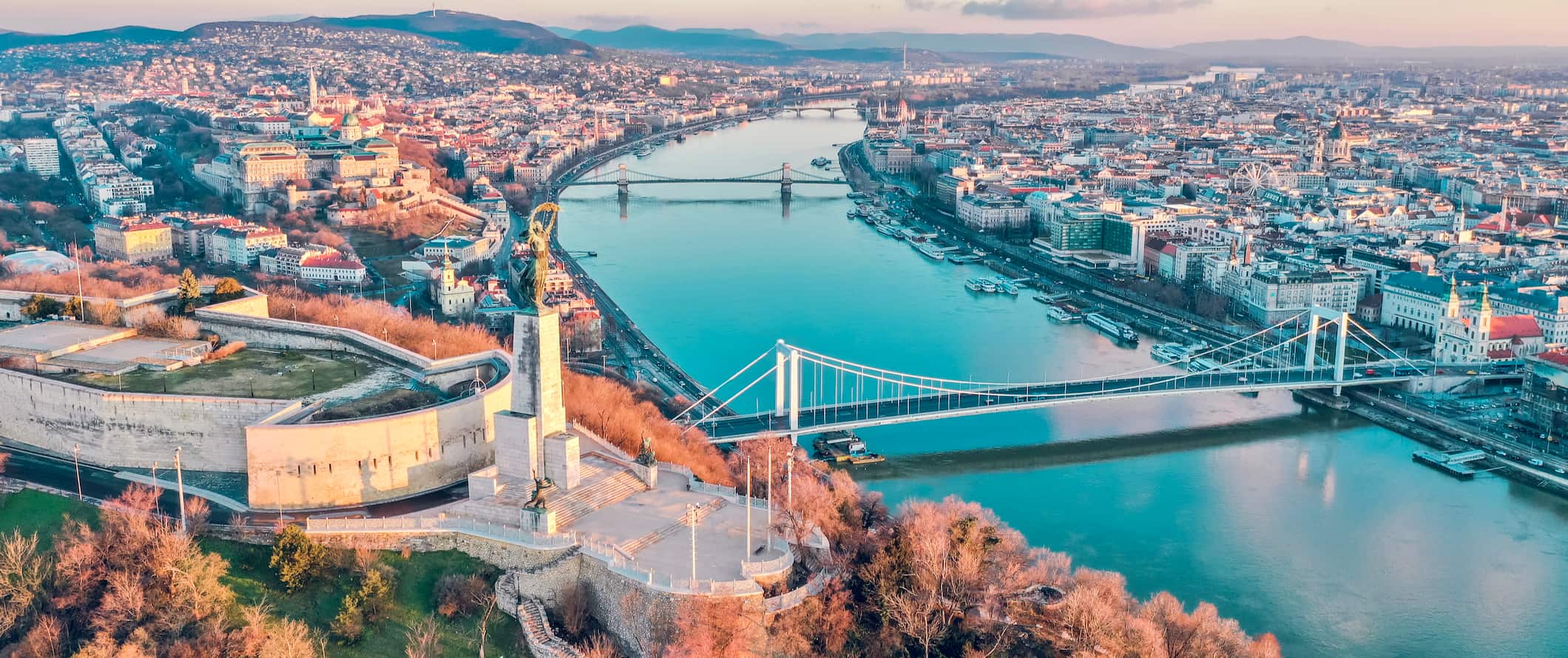
Public transportation – Public transport is well developed in Hungary. Most cities have buses and trams, and Budapest has an underground. Single-journey tickets vary by city but expect to pay around 350 HUF, while a day pass costs around 1,650 HUF.
When using the local public buses in Hungary, you need to validate your ticket when you board. Traveling without a ticket is a fineable offense so be sure to validate your ticket before you ride.
Train – Hungary’s train network is still being modernized and there is a big difference in comfort between local trains and long-distance and international trains. As the Hungarian rail network was built around Budapest, most long-distance journeys take you through one of the capital’s three train stations (Keleti, Nyugati, or Deli).
When traveling by rail in Hungary you can choose to take the cheaper and slower local trains, or pay extra for more modern and faster InterCity rail services (be sure to reserve a seat in advance if you’re taking the InterCity train).
From Budapest to Lake Balaton, the train takes around 90 minutes and costs 3,000 HUF. From Budapest to Pécs, the journey takes around 2.5 hours and costs just 4,000 HUF. If you want to take the train into Slovakia, the train from Budapest to Bratislava takes around 2.5 hours and costs 3,500 HUF.
To find routes and prices for trains around Europe, use Trainline .
Bus – Volánbusz is the main bus company in Hungary. It’s cheap and is sometimes even faster than the train. Flixbus also has routes that connect to nearby countries like Austria, Czechia, and Slovakia.
The ride from Budapest to Pécs takes around 4.5 hours and costs around 3,500 HUF. The 2.5-hour bus from Budapest to Bratislava costs around 3,200 HUF.
To find bus routes and prices, use BusBud .
Flying – Flying around Hungary will not save you any time or money compared to the train so I’d avoid it. You can fly to nearby countries though, such as Austria, Czechia, Slovakia, and Poland, for under 18,000 HUF with Ryanair or Wizz Air (if you book early).
Car rental – Car rentals can be found for as little as 6,500 HUF per day for a multi-day rental, though this isn’t necessarily the most economical way to get around as the buses and trains here are super affordable. If you’re driving, make sure to bring an International Driving Permit (IDP) — you’ll need one for any car rental.
For the best car rental prices, use Discover Cars .
When to Go to Hungary
The most popular time to visit Hungary is June-August. Temperatures hover around 23-29°C (73-84°F) and Hungary (especially Budapest) experiences an influx of visitors. Prices increase during this time as well, but the cities are lively and there are lots of events and festivals.
Winter stretches from November to March. Expect rain and snow, with many tourist attractions shutting down for the season. Temperatures drop below freezing so it’s too cold for hiking and exploring on foot. That said, November-December brings Christmas markets galore, so it’s a fun time for shorter city trips.
Personally, I think the best time to visit Hungary is the shoulder season in the spring and fall. Temperatures hover between 10-17°C (50-62°F) so it’s still warm enough to hike and explore but prices are a little lower and there are fewer crowds.
How to Stay Safe in Hungary
Hungary is a safe country and travelers shouldn’t worry about violent crimes here. However, in the tourist areas of Budapest (as well as on crowded public transportation), scams and pick-pocketing can occur. Avoid flashing your valuables around and always keep an eye on your things when on the bus or train.
If you head out to the ruin bars, only bring enough cash for the night. Take a taxi home if you’re intoxicated.
For more information on potential scams in Hungary, here is my list of common travel scams to avoid
Solo female travelers should feel safe here but will want to take the standard precautions (avoid walking alone at night while intoxicated, keep an eye on your drink at the bar, etc.).
If you rent a vehicle, don’t leave any valuables in it overnight. Break-ins are rare but it’s always better to be safe than sorry.
Members of the LGBTQ community will want to be mindful here as the government has been cracking down on the LGBTQ community in recent years.
If you experience an emergency, dial 112 for assistance.
The most important piece of advice I can offer is to purchase good travel insurance. Travel insurance protects you against illness, injury, theft, and cancellations. It’s comprehensive protection in case anything goes wrong. I never go on a trip without it as I’ve had to use it many times in the past. You can use the widget below to find the policy right for you:
Hungary Travel Guide: The Best Booking Resources
These are my favorite companies to use when I travel. They consistently have the best deals, offer world-class customer service and great value, and overall, are better than their competitors. They are the companies I use the most and are always the starting point in my search for travel deals.
- Skyscanner – Skyscanner is my favorite flight search engine. They search small websites and budget airlines that larger search sites tend to miss. They are hands down the number one place to start.
- Hostelworld – This is the best hostel accommodation site out there with the largest inventory, best search interface, and widest availability.
- Booking.com – The best all around booking site that constantly provides the cheapest and lowest rates. They have the widest selection of budget accommodation. In all my tests, they’ve always had the cheapest rates out of all the booking websites.
- HostelPass – This new card gives you up to 20% off hostels throughout Europe. It’s a great way to save money. They’re constantly adding new hostels too. I’ve always wanted something like this and glad it finallt exists.
- Get Your Guide – Get Your Guide is a huge online marketplace for tours and excursions. They have tons of tour options available in cities all around the world, including everything from cooking classes, walking tours, street art lessons, and more!
- The Man in Seat 61 – This website is the ultimate guide to train travel anywhere in the world. They have the most comprehensive information on routes, times, prices, and train conditions. If you are planning a long train journey or some epic train trip, consult this site.
- Rome2Rio – This website allows you to see how to get from point A to point B the best and cheapest way possible. It will give you all the bus, train, plane, or boat routes that can get you there as well as how much they cost.
- FlixBus – Flixbus has routes between 20 European countries with prices starting as low 5 EUR! Their buses include WiFi, electrical outlets, a free checked bag.
- SafetyWing – Safety Wing offers convenient and affordable plans tailored to digital nomads and long-term travelers. They have cheap monthly plans, great customer service, and an easy-to-use claims process that makes it perfect for those on the road.
- LifeStraw – My go-to company for reusable water bottles with built-in filters so you can ensure your drinking water is always clean and safe.
- Unbound Merino – They make lightweight, durable, easy-to-clean travel clothing.
- Top Travel Credit Cards – Points are the best way to cut down travel expenses. Here’s my favorite point earning credit cards so you can get free travel!
- BlaBlaCar – BlaBlaCar is a ridesharing website that lets you share rides with vetted local drivers by pitching in for gas. You simply request a seat, they approve, and off you go! It’s a cheaper and more interesting way to travel than by bus or train!
Hungary Travel Guide: Related Articles
Want more info? Check out all the articles I’ve written on backpacking/traveling Europe and continue planning your trip:
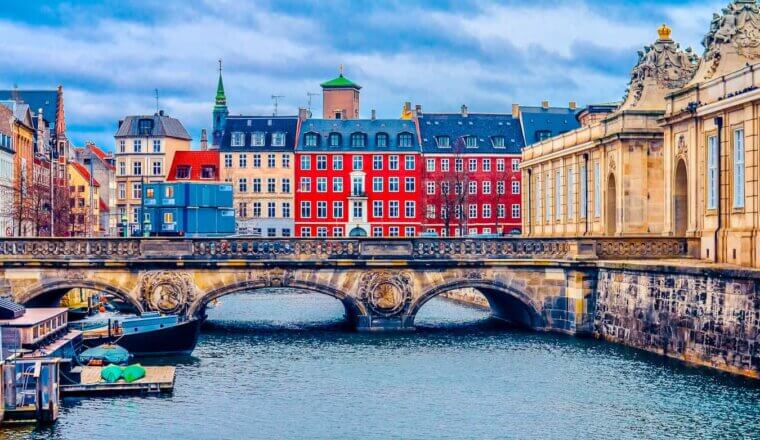
The 6 Best Hotels in Copenhagen
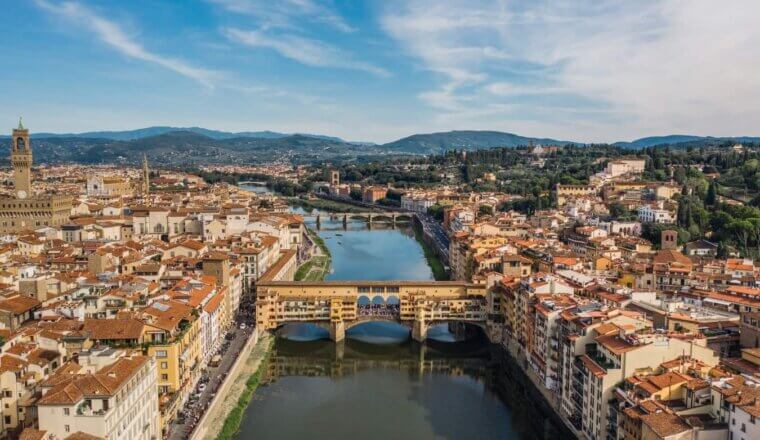
The 6 Best Hotels in Florence
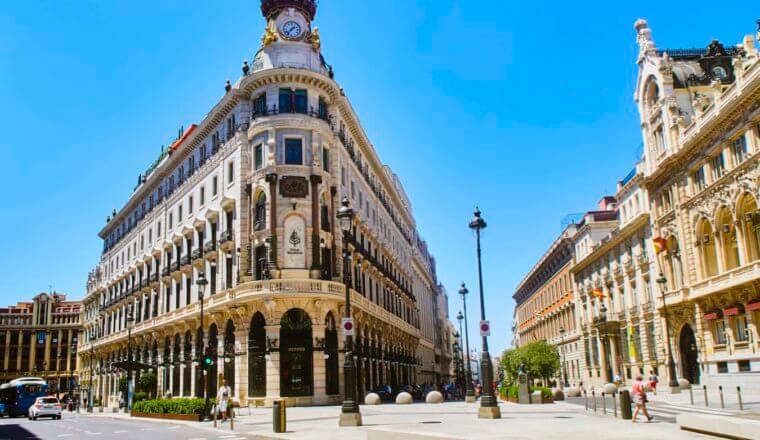
The 7 Best Hotels in Madrid
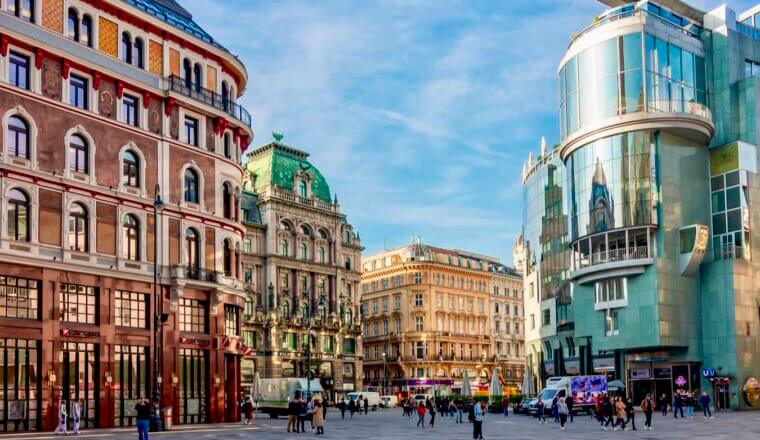
The 6 Best Hotels in Vienna

The Best Walking Tours in Barcelona
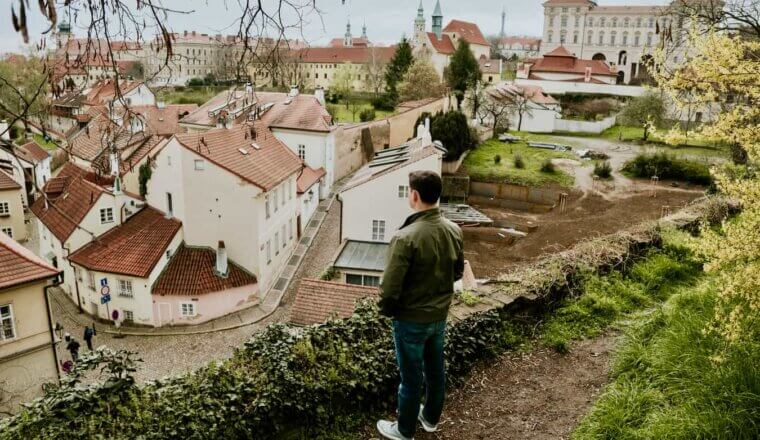
How to Be a Digital Nomad in Europe
Get my best stuff sent straight to you, pin it on pinterest.
- Where To Stay
- Transportation
- Booking Resources
- Related Blogs
Budapest Travel Guide
Your guide to Budapest by Danubius Hotels
- Food & Drink / Things to do
How much money you need to visit Budapest
Budapest’s tourism has been on the rise for years making more and more people around the World want to visit our beautiful capital. One of the most frequently asked questions is what budget they need to spend a long weekend or a whole week here. Budapest is thought to be a “cheap” destination, but this, of course depends on your needs. The city is more affordable than most European cities, offering a very wide variety of fun things to do to the budget traveler as well as the luxury jet-setter.
Table of Contents
Budapest is still one of the cheapest cities to travel in Europe, partially because Hungary is not part of the Eurozone, and the Forint, the Hungarian national currency has decreased in value in the past years to increase the attractiveness for companies to start open up businesses in Hungary.
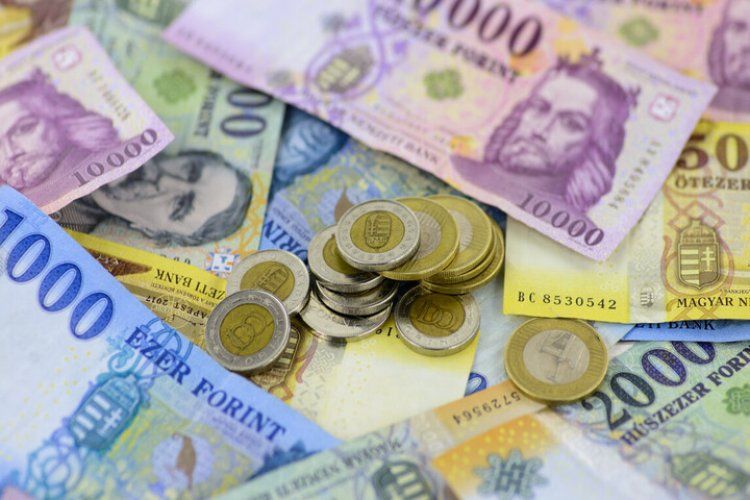
Hungarian currency
Hungary’s official currency is Hungarian Forint (Ft or HUF). 1 Euro is usually between 380 to 400 Ft (currently 386 HUF, as of February 2023) depending on current economics. 1 GBP is usually between 440 to 450 Ft
However, shops and restaurants in the city centre commonly accept EUR and US Dollar, but typically at a higher exchange rate, so you end up paying more than you would in local currency. For this reason, it is better to exchange local currency and always keep some Forint on you.
Popular tourist places like Vaci Street sometimes have people on the street offering to exchange your foreign money to Forints – they most probably offer you a fake exchange rate, so be careful with giving them money. We recommend you always use the official Exchange Offices that are found all over the city, especially at the airports, train stations and popular tourists destinations.
On the other hand, even in small shops and restaurants you can pay by debit card so you don’t need to exchange a lot of cash.
Accommodation
As every big European city, Budapest offers a wide variety of accommodations. Danubius Hotel’s an excellent place to start as the group has plenty to offer from 3 start hotels up to high end luxury just like the Hilton hotel Budapest in the Castle District. But you can also stay in the city centre for as little as €50-60 a day. Should you wish to extend your search, the best available Budapest city break deals are right here waiting for you.
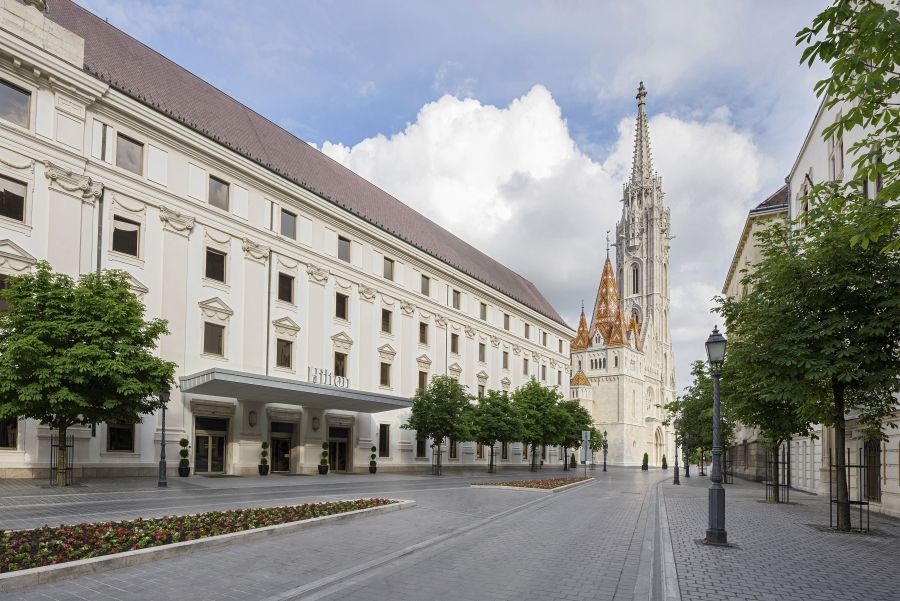
The best hotels for your budget
Wishing to stay close to the beating heart of the city centre, and enjoy the modern comfort of a hotel? Radisson Blu Béke Hotel is an ideal choice for everyone who wants to explore the rich cultural life of the capital. The hotel is located just a few steps from the beautifully lit up Andrássy Avenue, and easily accessible by car or public transport. The theatres, museums, restaurants and cafés located nearby guarantee that those interested in high-end entertainment will not be bored for a moment. Rooms available from €100 EUR per night.
Hotel Astoria City Center that opened in 1914 as one of the city’s most elegant hotels, and – over a century later – it stays true to that original character. Guests have always been attracted by its sublime fin-de-siècle architecture and comfortable rooms. The location of the hotel is perfect if you want to stay close to the city centre as it is only a 5-minute walk from prime attractions like the Hungarian National Museum , the Great Synagogue, the Danube promenade and the famous Váci Street. Rooms are available from €64 per night.
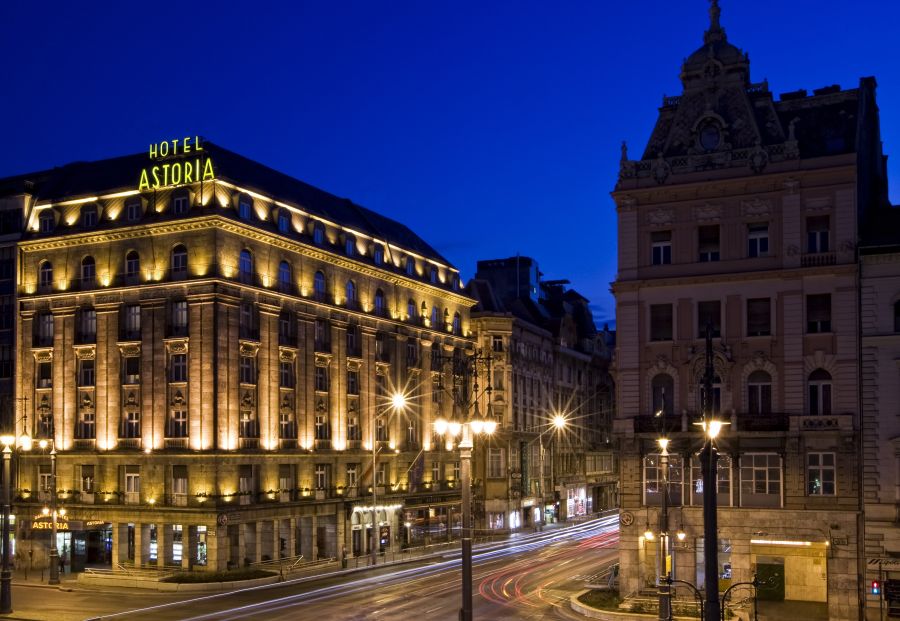
Average Daily Costs for food
Depending on your needs, Budapest can be extremely affordable. If you’re on a budget you can visit the city with just as little as 30 EUR a day, excluding accommodation. You can have lovely local or international food the whole day on a tight budget and it would be still one to remember! Hungary’s a great place to eat and drink well on any budget.
Example of a day of food on a budget:
Breakfast pastry 350-480 HUF (around €1,2)
Easy lunch: 2300 HUF & (small beer) 470 HUF (€7)
Dinner: 3400 HUF & (small wine) 700 HUF (€10)
However, of course the city has a touch of luxury hidden between its walls so you can live like Kings and Queens for a couple of days. There are lovely, high end restaurants waiting for you all over the city.
Cooked breakfast with a large latte: 4000 HUF per person (€10.5)
Lunch in a restaurant 4000 HUF & glass of wine 1.200 HUF (€14)
Fancy dinner in the city centre (two courses) 10.000-12.000 HUF per person & bottle of wine from 4.900 HUF (€45)
Restaurant prices
Budapest’s food scene is technically a metaphor of the city itself: authentic, spicy and sprinkled with plenty of surprises as a new generation of Hungarians turned the traditional cuisine into an avant-garde dining experience whilst staying true to real local flavors. Hungarian food will take you far away from what you know by serving you unexpected flavors and hearty, quality wines.
As most things, how much you spend on your dining experience can vary based on your taste and preference. Hungary, especially Budapest is one of the good Heavens of Europe and as the exchange rate works for your favor, even luxurious or more expensive restaurants are more affordable than anywhere else in Europe.
Restaurants for the best value for your money
Our recommendations go from low to high price point Hungarian standards, however the dining experience can still remain between €15 to €40 per person.
Danubius Hotel Helia’s new Yellow Bistro serves not only hotel guests, but also the general public, so that anyone can drop in any time for a pleasant gastronomic adventure.
Yellow Bistro & Bar’s selection includes healthy and quick meals, delicious sandwiches and pastries, but also a great soft drink and wine selection, specialty coffees, and for those with a sweet tooth, the newly introduced bright Yellow Cake. Additional choices include chicken soup with shredded meat, vegetables and quail egg, pasta cognac with beef, pulled pork sandwich with steak fries, chestnut panna cotta with cherry compote, to name just a few of the tastes.

Prices vary from 2900 HUF (~€7,6) for Caesar Salad to 6.800 HUF (~€18) fillet of Atlantic salmon with pumpkin wild rice and oven-baked vegetables Average price for dessert is 1.200 HUF (~€3.5).
Zsolnay Cafe is a little oasis on the busy Teréz körút, located in the Radisson Blue Beke Hotel. It’s the perfect place for a warm-up hot drink, a romantic bottle of champagne or even a late-night cocktail with friends. The pastry assortment takes the place to another level which also includes lactose- and sugar-free options. Just recently refurbished the café with a gorgeous interior is open from 10 am to 10 pm, catering for all meals and drinks of the day. The regular menu offers Home-made grill sausage with sourdough bread and pickled vegetables 3.600 HUF (~€10), Croque Madame (salad with speet potato fries) 4.900 HUF (~€13), patisserie legends from 1.600 HUF (~€4)
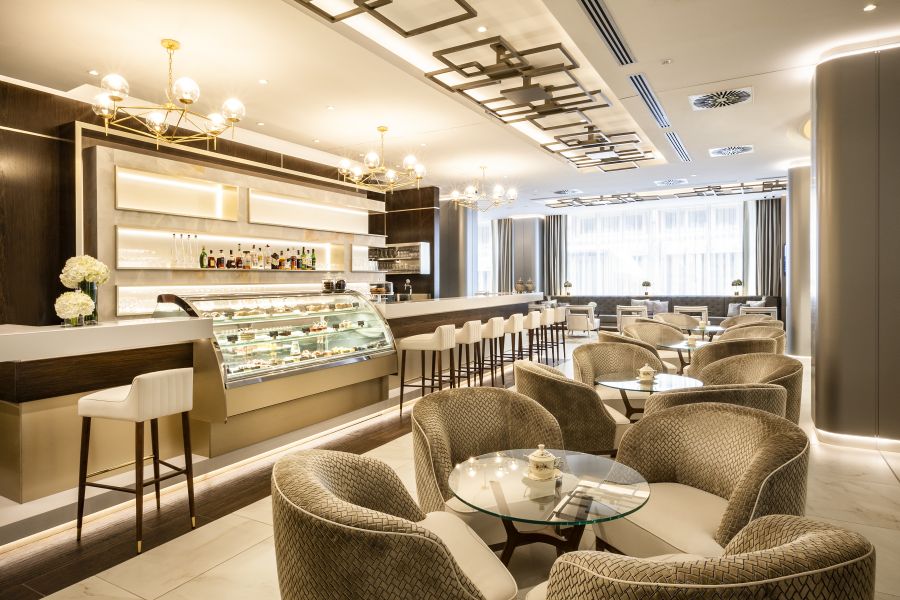
Modern and elegant, the stunning Lang Bistro and Grill embraces the future and yet pays homage to the history of the Royal Castle District. Icon has introduced a contemporary décor of warmness to create a relaxed, friendly and informal atmosphere located in Hilton Hotel in a truly premium location right next to Matthias Church. Featuring an upscale 240-seat restaurant with a private saloon and 16 panoramic windows, guests of the Icon can choose from a distinctive Hilton breakfast to an extraordinary a la carte lunch and dinner menu as well as a sumptuous weekend brunch. Appetizers from 4.100 HUF (~€11), salads from 3.600 HUF (~€9,5) or you can go for delicious meat right off the grill, Láng steak for 15.900 HUF (€42).
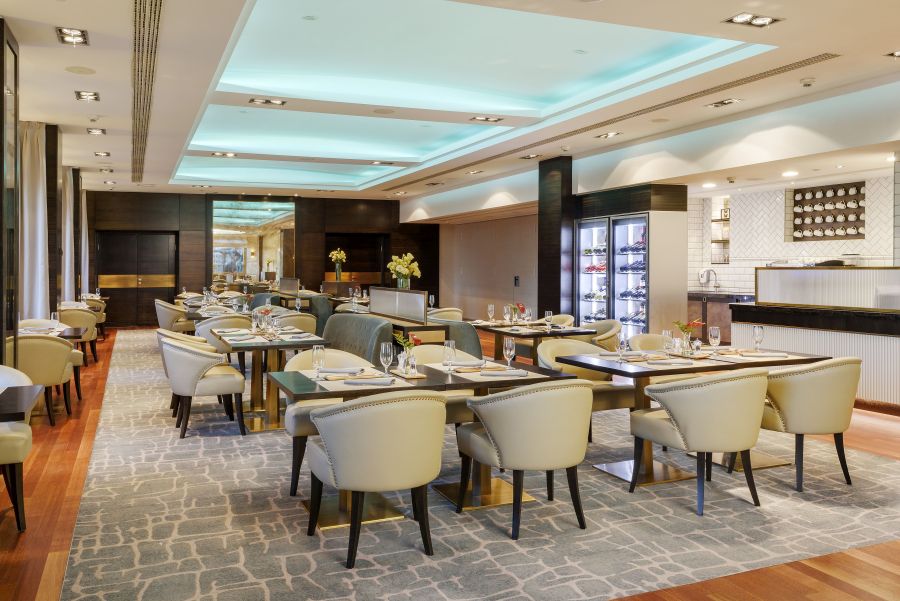
In Hungary gratuities are appreciated but the general tipping etiquette is not set in stone. People will appreciate it if you tip them for good service, but there won’t be the expectation like there is in the USA for example. You should know that many venues have door and bathroom attendants and tipping these people is good practice, usually 100-200 HUF which is less than a €1.
Tipping in hotels
Again, tipping at hotels is not expected, but it is appreciated. So, if the bellhop helps bring your luggage to your room from the front desk, it is normal to tip him around 500 HUF. Similarly, housekeepers will not mind if you don’t tip them, but will appreciate it if you do. It is common for foreign travelers to tip housekeepers 200-300 HUF each day of their stay at the hotel. If you decide to sign up for the hotel’s concierge services, it will be normal if you tip your concierge 1000 HUF for the services offered.
Tipping in restaurants
When you talk about sit-down eateries in Budapest, the standard tip rate for a good service is 10% of the bill and 15% for an exceptional service. However, many restaurants in Budapest charge a 12.5% service charge on the total bill. So, you don’t need leave anything extra. But it is important that you never leave your tips on the table when you decide to leave. Always tip your waiter directly or drop it in a tipping jar.
Sightseeing
Budapest is rich in attractions and most of them are free which makes your budget even lower. However, if you do decide to visit some museum or exhibitions, calculate with €3-10€ each average.
- Thermal Baths: 2.900-9.400 HUF(€8-25)
- Hungarian National Gallery: 3.800 HUF (€10)
- Museum of Fine Arts: 4.200 HUF (€11)
- House of Terror Museum: 4.000 HUF (€10,5)
- Escape room for 2 people: from 7.000 HUF (€18)
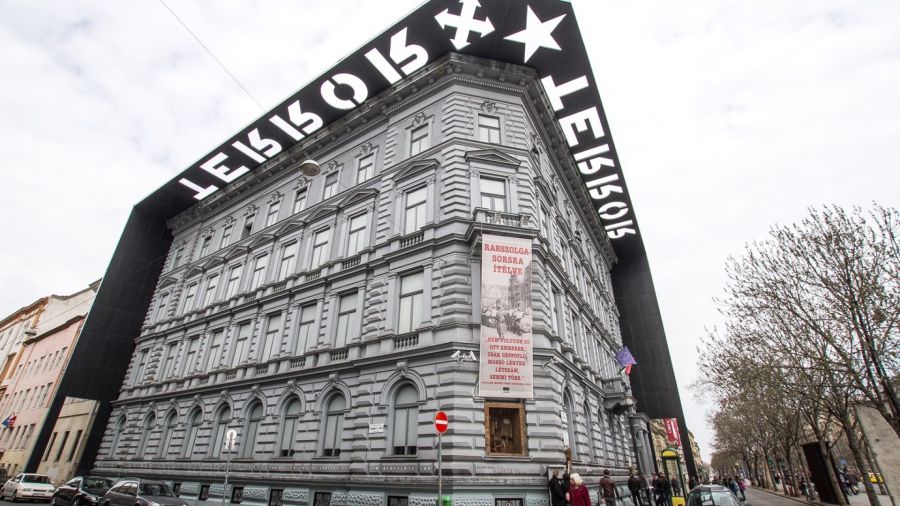
Most of Budapest’s inner city and historic districts are best to explore by foot. There are pedestrian precincts in downtown Pest and traffic is restricted on Castle Hill, so walking is probably the best way to get around. Great news, however that the city is very well connected by public transportation, too. Budapest has a fast and efficient metro system as well as many trams (streetcars), trollies and buses. Outer suburbs are served by the local suburban railway called HÉV.
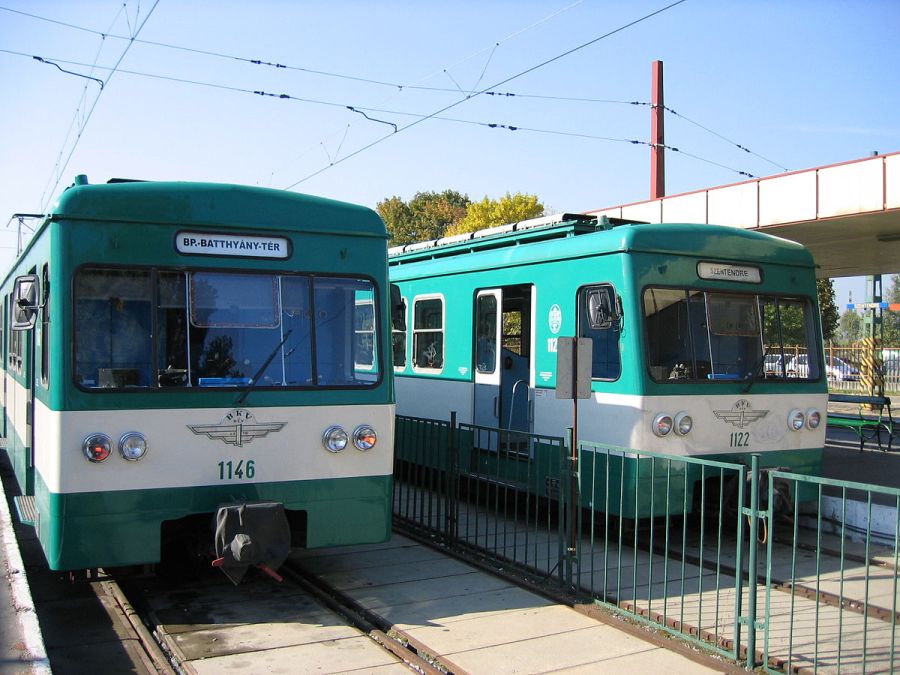
Ticket prices and ticket prices
If you’re visiting the city for a couple of days your best option is to purchase a 72-hour or a 7 day pass, even a Budapest card which will give you plenty of benefits when visiting attractions in the city as well. You can of course always decide to go with the single tickets which are valid for one single journey and cost 350 HUF. The official ticket prices are available on BKK’s Official website.
Budapest card
Budapest Card is an excellent option if we you wish to have unlimited travel and planning to visit some attractions as well. Cards can be purchased with 24-hour, 48-hour, 72-hour, 96-hour or 120-hour validity and all of them come with great additional benefits. All cards include unlimited travel on public transportation, free entry to several museums, two free walking tours, and 10%-50% discounts at baths, museums, restaurants and spas.
Taxis can be fast in the city, especially late at night when there is limited public transportation. Taxis can be hailed on the street, but it is cheaper to call ahead of time. All taxis must have a yellow registration plate, as opposed to the white background on regular car plates. All taxameters are equipped with a receipt-printing function, displaying the fares charged and identification of the driver.
Base fare: HUF 1000
Price per minute: HUF 100
Price per kilometer: HUF 400
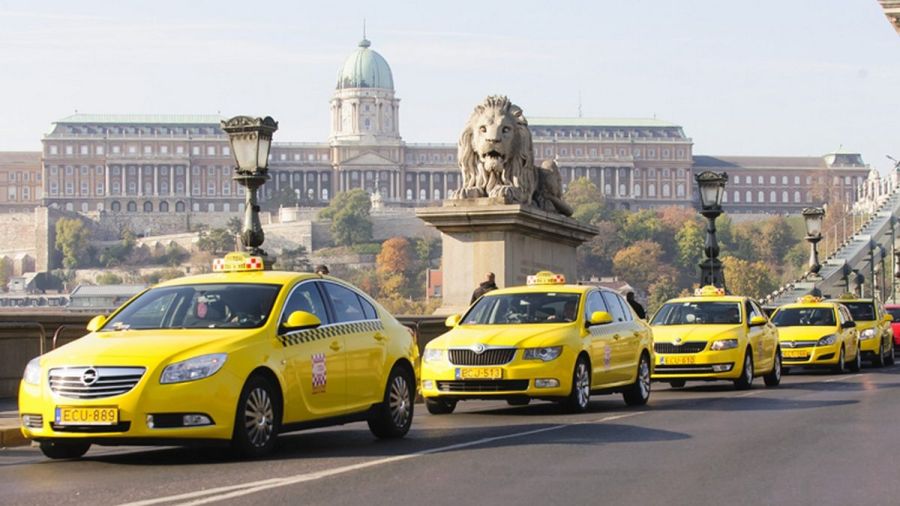
How much money you need for 3 days in Budapest?
Depending on your needs and taste, the minimum budget you need for visiting Budapest is €35-€50 including all meals of the day and at least one attraction. From here the limit is the sky as the city is offering luxurious accommodation, dining and sightseeing options. With a 72 hour Budapest card (€56) and a comfortable room in one of Danubius Hotels cosy hotels (€48-€75/day), your budget should end up around €290 for one person.
Visiting Budapest will be always the one to remember. So much to see and experience which gets even better with the great exchange rate and affordable prices in one of the best cities in Europe. The young buzz, that cool Eastern European spirit, amazing food, excellent wine paired up with low costs and a great, ever-changing atmosphere. Do you want to have it all? Yes, Budapest is the place to be.
How much forint do you need for a day in budapest?

Depending on your needs, Budapest can be extremely affordable. If you’re on a budget you can visit the city with just as little as 10.000 forints a day excluding accommodation. From this budget you will get access to public transportation and have some simple, but delicious Hungarian meals.
Tags: Budapest EN-Budapest EN-BudapestDeszt EN-Home Forint Hungarian currency
You may also like...

The Atmosphere of Berlin, London, Munich, New York and Paris in the Heart of Budapest? – Danubius Hotels in Famous Films, Part II
10 Apr, 2019

Fun Things to do in Budapest for Couples, Singles, Stag Do
28 Sep, 2018

Where to stay in Budapest
11 Mar, 2020
- Next story Budapest Nightlife Guide: Best Area to Stay for Nightlife + [Cheat Sheet]
- Previous story Budapest with Kids? The Only Guide You Need + [Cheat Sheet]
Get notification of our latest posts!
First name *
Family name *
Accept privacy policy I have read and accept the Privacy Policy.
View Privacy policy
Trending posts

The Best Thermal Baths in Budapest

Budapest with Kids? The Only Guide You Need + [Cheat Sheet]

Budapest Nightlife Guide: Best Area to Stay for Nightlife + [Cheat Sheet]

Getting around Budapest – It’s easy and affordable!

Meat-Filled Crepes (Hortobágyi palacsinta) – Hungarian recipes
Subscribe to our weekly summary and you won't miss out on anything!
FootLoose Dev
Travel blog by an Indian travel blogger.

Budapest Travel Costs – All You Need To Know
Wondering what’s the cost of travelling in Budapest? This blog is all you need!
You don’t need to travel all the way to Hungary to figure out that Budapest is one of the cheapest travel destinations in Europe. Just Google and you will find hundreds of blog posts talking about its affordability.
Where a story on Guardian would encourage you to travel Budapest by stating that it is one of the cheapest destinations in Europe to buy alcohol, a niche travel blog would give you a dozen more reasons to go there.
Cost of Travelling In Budapest
Before I start with particulars, let me give you the biggest motivation for planning a trip to Budapest — a great currency conversion rate.
Where a Euro leaves travellers with a poor currency conversion rate and thus makes the cost of travelling unbearably high before they even arrive in Europe, Hungarian Forint (HUF) makes things rather hopeful.
As an Indian currency holder, it felt amazingly good when I received nearly 4 HUF for every Indian Rupee. It kind of (almost) absorbed the shock of losing 70 Rupees to a Euro, as I did while travelling across other Schengen states.
If you are planning a trip to Europe from India , and you are on a tight budget, there cannot be a better place than Budapest.
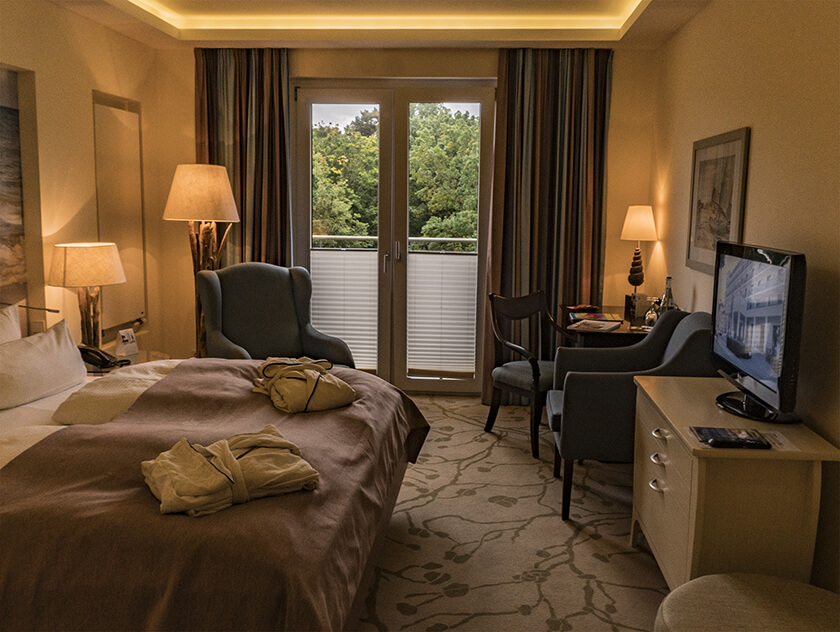
Accommodation In Budapest
Budapest is amazingly cheap to stay in, compared to all its neighbours in Europe, including Vienna and Bratislava (which are already considered as cheap travel destinations in Europe).
A 6 or 8-bed dormitory in Budapest costs just as much as it does somewhere in Southeast Asia. Despite a very central location, the place I was staying at (called Avenue Hostel) charged only 6 Euros per night, including free breakfast.
If you can stay outside of the main town, you can find something for an even lesser price, say about 3 or 3 Euros a night.
Consider paying nearly double for everything for a similar experience in Vienna or Bratislava. Or perhaps three or four times more if you’re visiting Zurich, or Munich, or someplace in France.
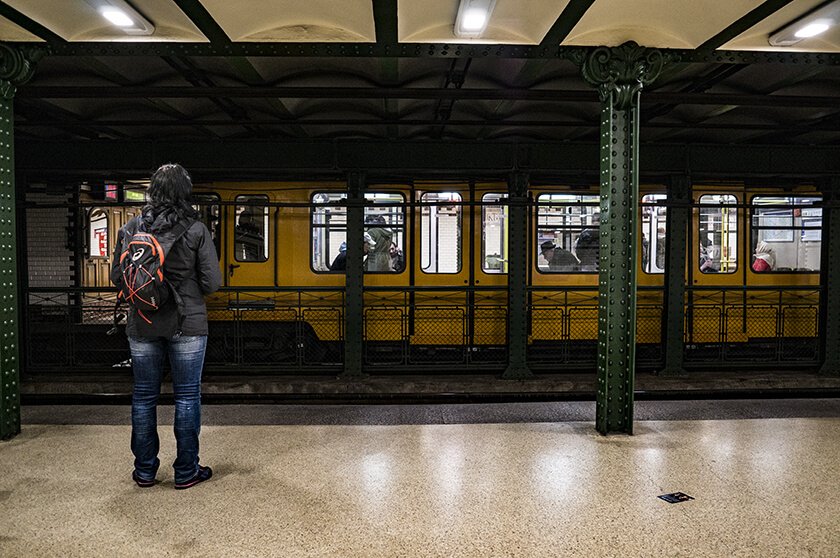
Transportation in Budapest
Budapest has cheap public transport too.
For 1500 HUF (less than 5 Euros) you get a day ticket that allows you unlimited use of public transport for 24 hours on all city buses, trams and metros. Now compare it with a single 10-minute train journey in Zurich that can cost nearly 7 Euros.
Though I understand Budapest stands nowhere near Zurich in terms of cost of living, I’d still like to give an idea about how brutal prices in Europe can be. And the cost of travelling in Budapest feels like a bargain.
Check this article by lonely planet if you want to know more about public transportation in Hungary.
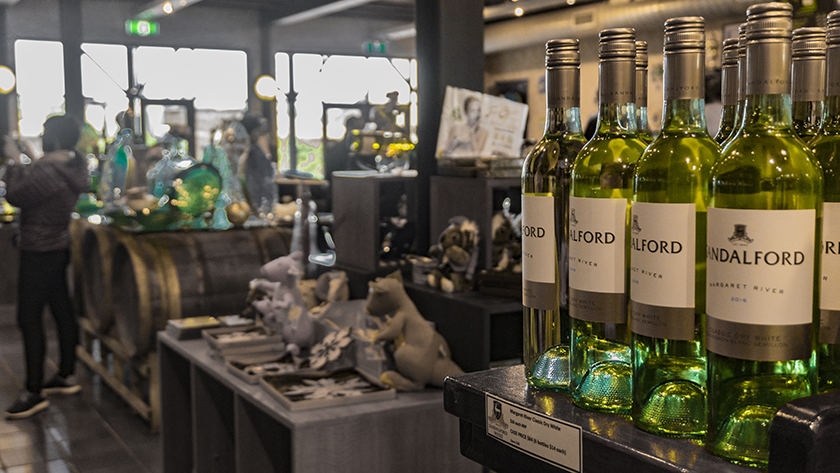
How Much Does A Beer Costs In Budapest
Beer in Budapest is so cheap that it sometimes cost more to buy a similar brand in Southeast Asian. Even Thailand has some European brands costing more for a pint than it does in Budapest.
A pint of lager in Budapest in a supermarket can cost as low as 200 HUF (or 50 Cents).
Drinking in pubs in Budapest is not too costly either. Most of the ruin pubs offer cheap beers (for about 2 Euros).
Food Expenses In Budapest
If you buy your groceries from a supermarket and cook/process your own meals expect paying for not more than 4 Euros a day. If you are going to eat out, expect your food costs to be somewhere near 6 or 7 Euro a day.

1 Week Budapest Travel Budget
During my 7-day stay in Budapest, I spent just a little over 100 euros. And this included my stay, my food (including 1 or 2 meals in a restaurant every day), public transportation, and fee for a few museums/attractions.
Speaking of how much did I spend in a day, let’s divide the costs per day, per activity basis.
Accommodation : 6 Euros (please note that you can stay in hostels costing around 3 or 4 Euros a day and save a little more. Most of the cheap backpacker hostels are located in Pest).
Transportation : 5 Euros
Food & Beer : 5 Euros
Total = 16 Euros PER DAY!
Please note that this is only a rough estimation of costs. You may end up spending more (or less) depending upon your expenses. If you dine out more and take taxis rather than public transport, you will end up spending a bit more than what I did.
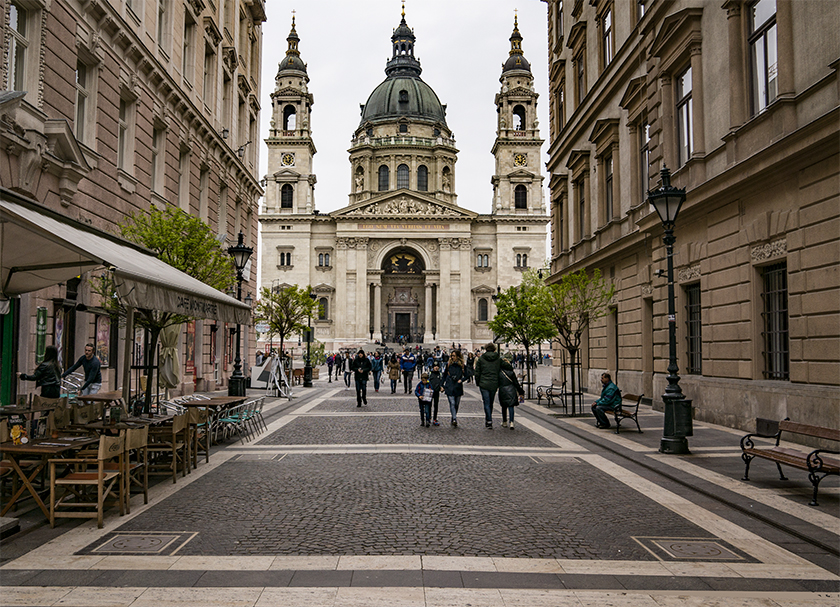
Budapest Visa
Since Hungary is a part of Schengen territory, Indians needs Schengen Visa to travel to Budapest.
A short term single-entry tourist visa costs 60 EUR on top of additional costs by vfs. The maximum time period you’re entitled to visit Schengen territory, on a short term tourist visa is three months.
It may take as long as a month to get the Schengen visa after the application was submitted, so plan well in advance.
For Indian Passport Holders, Schengen Visa is one of the toughest visas to obtain.
Read: How to apply for Schengen Visa in India

Useful Travel Tips
Divided by the ever blissful Dunabe river , there are two (nearly equal) parts of Budapest: Buda and Pest.
Buda is more local and serves as a residential colony for local people. Whereas Pest is the tourism highlight. It is in Pest where most backpackers hostels and tourist attractions like the St Stephen’s Basilica, Old street Market Hall, and the Parliament are located.
Make Pest as your base. Find a hostel near the city center if you want quick transportation options, or a few kilometres away from it, to find a comparatively cheaper option.
Those staying in Budapest for only a few days and wanting to shop and explore tourist highlights on a fast track should consider investing in a Budapest Card available for 48 and 72 hours. It gives free (or a discounted) entry to many attractions/museums, unlimited free travel on public transport, and even a couple of free guided walking tours.
It is possible to reach Budapest from Ljubljana or Vienna or Prague in under 20 Euros by taking the bus service called Flixbus that offer some of the cheapest transportation options and travel-cards for backpackers. You can also read about my travel experience with Flixbus .
Hungary’s official currency is Forint which usually gives nearly 300 Forint against 1 Euro. It is very unlikely to find Forint in your country, so buy some Euros and change them in Hungary. If you’re landing at Budapest airport, be advised that the airport doesn’t give the best conversion rates, so change only a few Euros, take public transport to the city centre and find a conversion shop somewhere in the city center. You will find enough agents converting Euros into Forint for a good price in Budapest city center.
Also read: Budget travel tips for Europe
That’s all in this blog about the cost of travelling in Budapest. If you have more questions, please leave a comment below, or write me a message on Instagram .
What was your total expense of Budapest including all that you have mentioned above ?
Budapest is very amazing place to visit. I already visit there.
My name is Brian and I have been living in Budapest as an expat for over two years now. Most travellers who visit Budapest spend heaps on drinking and going out but if one tries to save money Budapest is actually a very cheap travel destination. Not sure if I can travel for about 16 euros a day here but yes it is indeed possible to live off under 30 eurs a day. Thanks for sharing your wonderful experience.
Super informative post. Hopefully we will get to travel soon.
Leave a Reply Cancel reply
Your email address will not be published. Required fields are marked *
Cost of Living in Hungary for Digital Nomads: An Overall Breakdown

Hungary is perhaps an underdog in terms of status and maybe even popularity when it comes to other European countries. Even more so when it comes to backpackers, expats, and of course, digital nomads. But did you know that Hungary or specifically its capital of Budapest is oftentimes named as one of the best places to be for digital nomads? Yep, that’s right!
> Read more: Our guide to Hungary for digital nomads .
That could be due to its affordability compared to said other European nations, beautiful architecture, rich culture, and reliable infrastructure. But Hungary is not without a few downsides so to better prepare for what’s in store for you should you decide to visit this low-profiled country, let’s dive into this cost of living guide and explore it further. Read on!
Accommodation and Bills
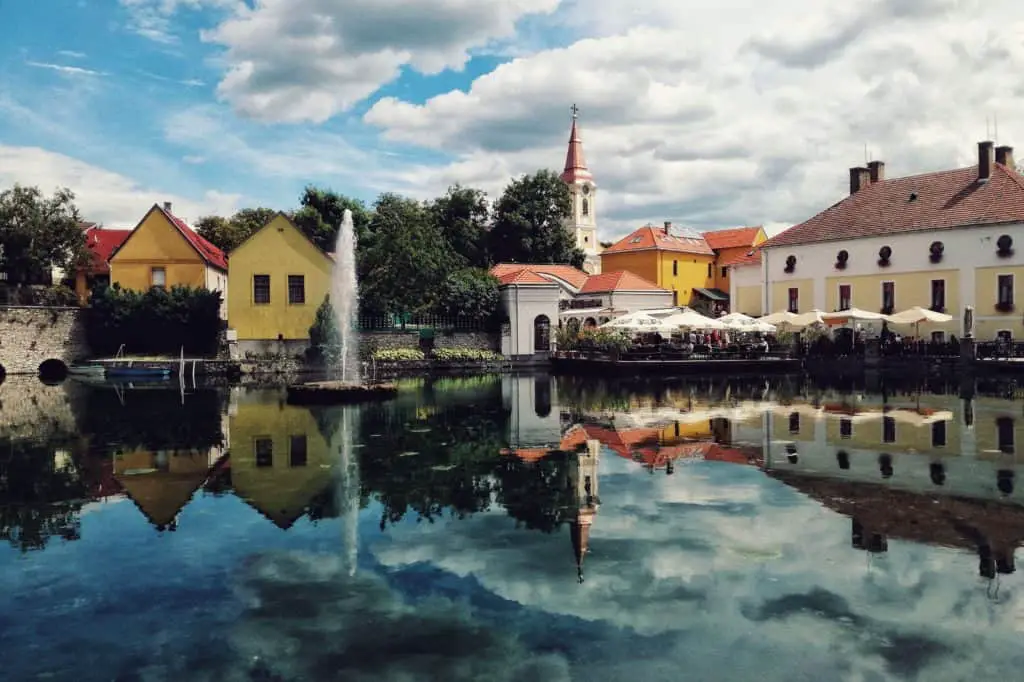
The official currency of Hungary is the Hungarian Forint and in general, we assure you that the overall cost of living in this country is a lot less than most European countries. It’s not exactly Southeast Asia but if you’re frugal enough and know where to look for the best deals then you’ll save a lot of cash for sure.
As of writing, 1 Hungarian Forint is equivalent to 0.0034 USD. Your accommodation will take up a lot of your budget and if you’d look at almost all websites and guides, you’ll see and verify that the standard cost of living for digital nomads in Hungary (Budapest) would be around $1500 which in comparison is more than half of what it will cost to live in the UK (for a digital nomad). And so, accommodation would probably be around $400 to $800 a month or a third of that budget. As mentioned, you can maybe get better deals but spending say $500 on your rent should be pretty comfortable, actually, anything more than that can be considered luxurious living. You’ll probably be able to rent out a nice apartment for $600+.
All right, let’s break it down further.
Average expenses across all sorts of accommodation should be around $700. For $400-$650, you’ll get a decent apartment that you may be comfortable living in even for a long time. What about tow bedroom apartments? If you need more space, maybe you are traveling with your family then get one for upwards of $800. That should already be in a lovely area in the city.
These are pretty much your best choices as compared to planning to live in hotels as you live there which can, of course, get really pricey. The monthly median payment for a hotel should be at $600 while renting out an Airbnb is the priciest option in Budapest at $1000+.
If you hang out, and you probably will, in coworking spaces then you need to shell out around $150 per month to avail of their amenities. There are, of course, a lot of coworking spaces in Hungary and most especially in Budapest.
With the 23 districts of Budapest, which ones are worth checking out to live in? Well, maybe try the Belváros-Lipótváros area which runs along the Danube and the so-called downtown area of the city. If you live here then you can be sure that you’ll be right at the hustle and bustle part of Budapest.
You may also check out Erzsébetváros. This part of the city boasts an active nightlife or should we call it party-scene. You may also try Újlipót or Várkerület.
What about utility bills? Well, everything including electricity, water, heating, cooling, and waste management in an 80m2 apartment should cost around $150 to $200.
Hungary does have 4 seasons throughout its year. And TripAdvisor and Booking.com are still your best bet of finding the best deals for your accommodations. You may also try Airbnb, Hostelworld, and Roommates Budapest although the latter only helps out with short-term accommodations. If you want to explore more cities in this landlocked country then go for Pecs, Debrecen, Szeged, and Sopron. They have coworking spaces that can accommodate your needs as a digital nomad too.
If you’re looking for health insurance then there are a few health insurance companies that offer deals for expats that may also apply to you as a digital nomad since you are staying for a while in the country. You can go for Cigna Global or Aetna which are both established in a lot of countries worldwide. You can get a free quote from both their websites.
It’s also worth noting that Hungary’s healthcare is pretty good. As a matter of fact, Hungary has been a medical tourism destination in Europe. The medical practice in the country is famous for its cosmetic and rehabilitation practices. Their public healthcare also provides support to everyone at an affordable rate.
Healthcare is generally free for those under 16, students, pensioners, parents w/ babies, and those with low income. From that, you can tell that you’d get a good deal too when it comes to your healthcare and at the same time, you’d get good medical attention once you are there and you either have a medical emergency or health issue.
In Budapest, the average medical expenses cost should be around $100. About a third of that in the US.
Hungary also has a lot of facilities to cater to your wellness. Gyms, places to hike, bike, swim, and run on with superb sceneries are always there for you to keep you in shape. They also have daycares if you’ve brought a child with you. There a lot of places to relax in and your mental and emotional health would always be kept in check.

You can be sure to experience delicious Hungarian food once you get there. For you to do so then you must know some of their famous local dishes. You may try the Goulash, Chicken Paprikash, Jokai Bean Soup, and Turos Csusza. How much is a typical meal in Hungary? Most likely around $4 to $5.
Dinner in a mid-range restaurant should cost around $6 to $8. Here’s a little bit of breakdown of some of the necessities:
Beer should cost around $1.5 and a cup of coffee on a mid-range café should be around $1.75. In general, if you mix it up when it comes to your dining i.e. buy groceries for home-cooked meals, eat out at mid-range restaurants once a week, and splurge on high-end restaurants too at least 4 times a month, you’ll probably spend around $400 on food for yourself.
If you do so, then you’d already be eating comfortably in Hungary and for sure won’t go hungry. You add another $100 for nightlife and entertainment once in a while then you’ll be pretty relaxed in this culturally rich town.
Once you get there, don’t forget to check out these top restaurants: Alexandra Book Café, costs Restaurant, and Gundel. You’ll have a gastronomical experience like no other for sure.
While we’re at it, let’s talk about other personal care items that you’d need, just shell out about another $100 for them monthly and you should be good to go.
Transportation
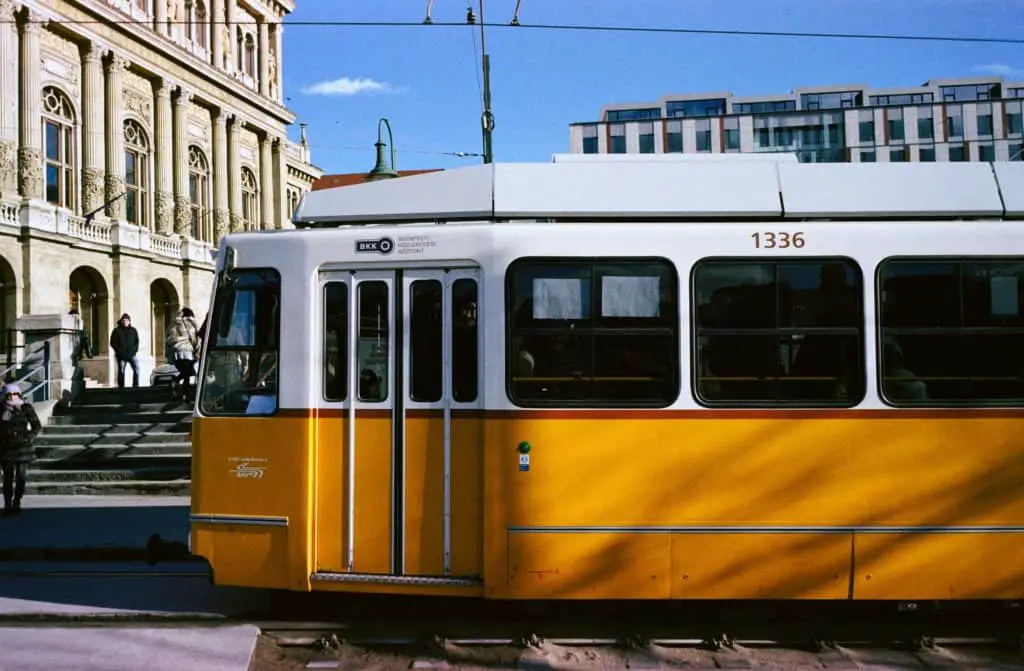
Getting around Hungary ain’t a problem either. The city has a robust network of transportation that will get you around with no problems at all. Budapest, for example, is a large city but if you’re so inclined and your dwellings and usual go-to places are near each other then you may walk if the weather is nice enough.
Take note that all modes of transportation in Budapest at least are managed by a company called BKK. That means all metro, buses, trolleybuses, trams, and the Buda Castle Funicular are all under the BKK Company.
Taking a taxi in the busiest cities of the country may not be ideal as it can get expensive. And, you probably won’t need to so unless you are really in a hurry. Taxi meter starts at $2.4 for normal tariff and would increase by $1 per kilometer. If you have a private car then gasoline should be around $1 per liter.
You can save a lot when it comes to transportation if you for public transport for they sell individual and also blocks of tickets too. You can buy a monthly transportation pass for about $30 over there.
A single ticket will cost you $1.19 as of writing and if you have to transfer to a different line a transfer ticket will cost $1.8. If you travel a lot, then why not buy a block of ten tickets for only $10 or get a 24 hour ($5.6), 72 hours ($14), or 7-day travel card ($16.8) to get discounts.
Generally, all of these modes of transports operate from 4 AM to 11 PM but don’t worry, there are night buses all over cities too. Hungary is a relatively easy country to travel domestically and you should not have issues at all moving around. The modes of transportations are usually comfortable and secure.
Mobile and Internet Expenses
Hungary boasts a great infrastructure when it comes to the internet connection. That’s why you may be a digital nomad even outside of the capital city of Budapest and be just fine. The internet connection in the country is not only super-fast but very reliable at the same time. And, you’d be surprised with how affordable it is.
Just exactly how affordable? How about enjoying a high-speed internet connection for only $13 to $15 a month? Not bad, right? And just how fast is the internet connection in Hungary is on average? As a digital nomad who most likely will transfer from one place to another from time to time and connect to different hubs, you’ll probably enjoy an average speed of 39mbps.
That should be enough for remote workers and all their broadband needs for surfing, streaming, online meetings, and everything else. If that’s not impressive enough, take note that Hungary’s internet speed is just one spot below that of the US at number 12.
Hungarians enjoy a fixed broadband speed of 128mbps download and 65mbps upload. Mobile data speeds also won’t let you down if you’ll use it over there at 42mbps download and 16 Mbps upload speeds. Pretty impressive, huh?
Mobile phone calls charge around $0.09 per minute with a one-year unlimited plan with Vodafone at $36. Overall, Hungary has been listed on the best cities for digital nomads list due to their great internet connection, mobile services, and generally affordable cost of living. You throw in the historic architecture and great medical care services into the mix and that’s one great formula for attracting tourists and digital nomads alike.
Let’s talk a little about the different coworking spaces you’ll most likely be in when you go to Hungary. You may work in Impact Hub which as we all know has a lot of branches worldwide and is a veteran on the coworking spaces scene. As mentioned, it’s going to cost you $150 a month and this facility offers an inspiring and modern design to their spaces.
You can also try and visit Loffice, Mosaik, and Kaptar. They all offer subtle differences when it comes to their spaces so choose whichever may fit your needs and lifestyle. There are also a lot of Wi-Fi cafes around the city of Budapest so you may try them out too.
Also, don’t forget that Hungary is a country filled with some of the best and beautiful libraries in the world. So if you’re looking for some peace and quiet (and a free) place to work in, then libraries are your best bets.
Hungary is considered a second world country and sometimes being stuck in the middle leaves you out of the limelight and so, this territory is definitely still unexplored for many. Hungary is a beautiful country with all its architecture and history.
It’s quite vibrant too so don’t think that you’d get bored in it fast. And most of all, the country is fit for accommodating digital nomads like you and me.

Related posts

Costa Rica for Digital Nomads: Visa, Cost, Best Places & More

Expat’s Guide To Grenada: Relocating, Citizenship & Cost of Living
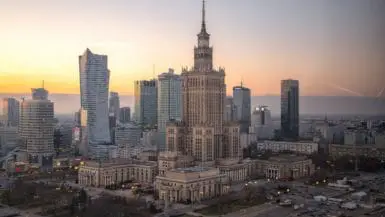
The Ultimate Guide to Warsaw for Digital Nomads
Leave a reply cancel reply.
Your email address will not be published. Required fields are marked *
Cost of Living in Hungary
- A family of four estimated monthly costs are 222,578.0руб (868,636.8Ft) without rent.
- A single person estimated monthly costs are 63,638.4руб (248,356.4Ft) without rent.
- Cost of living in Hungary is, on average, 48.0% higher than in Russia .
- Rent in Hungary is, on average, 21.6% higher than in Russia .
Prices in Hungary

- Quality of Life in Hungary
- Crime in Hungary
- Health Care in Hungary
- Pollution in Hungary
- Property Prices in Hungary
- Traffic in Hungary
By City in Hungary
Copyright © 2009-2024 Numbeo. Your use of this service is subject to our Terms of Use and Privacy Policy
Cost of Living in Hungary
How much does it cost to live in hungary.
Hungary is famous for its unique customs and interesting history.
Budapest , Debrecen, Szeged, and Miskolc, the largest Hungarian cities, are important economic, cultural, and industrial centers.
These cities offer great employment opportunities, especially since the rapid increase in the IT technology sphere.
Hungary offers good salaries as part of working conditions.
The country has been constantly increasing its education and healthcare systems too.
Among the other strong sides of the country, there are an outstanding infrastructure and an enjoyable lifestyle.
The climate in Hungary is typically Eastern European.
Hungary : Cost of Living by City
Restaurants.
Meeting the national cuisine of Hungary will be an interesting and exciting event.
Hungarian restaurants are the only ones in Europe where you can try the foie gras cooked by the classic recipe.
The national cuisine is very delicious and healthy.
It is based on rich soups, fish dishes, and sweet pastries.
Hungary has farmer product markets in every city and village.
The largest cities like Budapest have central markets too which are very neat and logically organized.
Many markets are open Sundays which is not typical for most of Europe.
The prices are very affordable, but they don’t accept credit cards.
TRANSPORTATION
Public transport in Hungary is cheap and reliable.
You can use buses, metro, trains, and trams, or go to the airport if you need to fly elsewhere.
The monthly pass is cheap, and there are lots of different discount programs for kids, students, and retired people.
UTILITIES (MONTHLY)
The utilities in Hungary are not so cheap if you consider the average or the minimum monthly salary.
That is why people learn to save water, electricity, or gas and still make their homes comfortable to live in.
The actual sum always depends on individual consumption, but the average prices are given below.
SPORTS & LEISURE
Hungary is a country of lakes, so it offers a lot of water sports along with the traditional methods of keeping your body fit.
The other popular place of destination in Hungary is a spa resort.
Just like any other European country, Hungary has concert halls, theatres, museums, restaurants, and clubs where you can spend your leisure time and money.
CLOTHING & SHOES
Hungary is not that popular for shopping for clothes and shoes, but it has really low prices in the chain stores and many modern shopping malls, designer stores, and fashion boutiques to visit.
You can pay in cash only in the small shops while the large malls accept credit cards.
The prices are always lower on the markets so if you do not have much to spend you should better head there.
RENT PER MONTH
The apartments in Hungary can be rented from the landlord directly or through the agency where you assign an official rental contract and make it legal according to Hungarian laws.
The prices for housing are often the highest for both native Hungarians and travelers or expatriates.
The latter are often paid much higher salaries than the natives, so the prices of dwellings seem rather low.
Cost of Living Averages Table for Hungary
How does the average person spend their money in hungary.
The biggest part of the budget of an average Hungarian is put off to be spent on the markets.
This is one of the most common things for most world countries.
People want to eat fresh and high-quality food from the market.
The second big issue for those who do not own their private house or apartment is accommodation rental.
An average Hungarian pays 21.1% of their money to the landlords.
The percentage is given excluding the expenses for education, childcare, and healthcare.
The least money is traditionally spent on shoes and clothes.
Utilities seem quite expensive because they take as much as 7.4% of people’s income.
Average Costs Breakdown
Hungary: average salary, minimum wage & mortgages.
In Hungary, mortgages can be taken at a local bank for under 6.97% of the yearly interest rate.
You get only 50% – 70% of the purchase price of the property for 20 years and the percentage is fix
Most of the property is offered for a much longer period of 35 years.
The sums and conditions should be checked by a citizen personally, as there are many factors affecting the mortgage price.
The average monthly salary in Hungary is $859.32 but this highly depends on the city you live in and the kind of job you are doing.
The minimum wage was fixed at a level of $714.8 per month.
Hungary Safety Overview
READ THE FULL REPORT: Hungary Safety Review

- OVERALL RISK: LOW
- TRANSPORT & TAXIS RISK: LOW
- PICKPOCKETS RISK: MEDIUM
- NATURAL DISASTERS RISK: LOW
- MUGGING RISK: LOW
- TERRORISM RISK: MEDIUM
- SCAMS RISK: MEDIUM
- WOMEN TRAVELERS RISK: LOW
Cost of Living by City in Hungary
Where to next.
See these related locations:
- Ann Arbor, MI
Or, browse the country/city indexes:
Share Your Experience Cancel reply
Your Review
Title of your review
Popular Destinations

Safety Index
Recent reviews & comments.
- Nessma on 10 Most Dangerous Cities in France
- Danny Fields on 10 Safest Cities in Guatemala
- Bryan West on 10 Safest Cities in Guatemala
- Andrew Cole on 10 Safest Cities in Guatemala
- Kylie Smith on Thornton
Popular US States
- Pennsylvania

- Market entry support We provide a full-range support when entering new markets and help with navigating the country specific statutory requirements – starting from a smooth incorporation process. Book your consultant now
- Success stories We are confident that we can meet your expectations and provide high quality services, tailored solutions, with a professional and flexible approach. Currently, we serve more than 10,000 companies from all sectors while more than 50% of our business comes from TOP 500 Fortune companies. See our case studies
- Our eShop For most businesses, the breakthrough to success is achieved by a dedicated advice provided at the right time. Order our tax and legal services or get advice for your business whenever you need it - faster than ever before. Visit our eShop
- Why we are different A proactive partner who bridges the gap between your needs and cutting-edge solutions - discover more about Accace and why we are the perfect fit for your business. More about us
- ACCACE CIRCLE: GLOBAL REACH, LOCAL EXPERTISE Accace operates internationally as Accace Circle, a co-created business community of like-minded BPO providers and advisors who deliver outstanding services with elevated customer experience and erase the borders of service delivery. See all locations
Get in touch with us!
Refer to this form if you have any questions and require additional information, or in case you are interested in proposal enquiries. We will deal with your message immediately and revert to you as soon as possible. For career opportunities, please visit our dedicated Careers section.
Get free access to
Our legislation updates make it easy for you to keep on top of the latest changes affecting your business. Receive our articles, opinions, tips, industry news, country profiles, regional overviews and studies, latest events and even more, directly into your mailbox.
Check out our Newsroom to see what is included!
We will send you only relevant information we consider may be of your interest and treat your personal data in compliance with our Privacy policy and GDPR statement .
Unable to subscribe? Try this page .
Doing business in Hungary | Tax guideline | Tax calendar | VAT overview | Expat tax guide | Transfer pricing overview | Company formation overview | Labour law overview | Salary calculator | Real estate transactions
Daily commuting and traveling home by car: the tax-free reimbursement has been doubled in Hungary | News Flash
The provisions of the Governmental Decree no. 16/2023. (I.27.) has increased the reimbursable cost of commuting and traveling to home which can be provided with no tax obligations from HUF 15 per kilometre to HUF 30 per kilometre in case of traveling by car.
The new regulation
In practice, this means if the employees meet the requirement of commuting as per in the relevant legislation, therefore they daily commute from outside of the borders of the municipality where their workplace is, then employers are entitled to reimburse their costs up to HUF 30 per kilometre with no tax obligations in Hungary .
The legislative changes had no effect on the definition of commuting, therefore if the employee commutes from within the territory of their workplace’s municipality, the reimbursement still cannot be provided tax-free.
We highlight, that reimbursing the costs in case of commuting by car is still not obligatory but up to the decision of the employer in most cases.
The amount of the allowance
However, in some cases, reimbursement of a kind is compulsory, when at least 60% of the maximum amount must be provided to the employee (HUF 18 per kilometre):
- In case there is no public transport between the place of permanent or temporary residence of the employee and the workplace or
- the employee could only use with long waiting times or could not use at all public transport due to his work schedule or
- the employee due to their severe disability (according to the relevant legislation) could not use public transport (including those cases when they are transported by a relative) or
- the employee has a child who is in nursery care or who is under the age of 10 and in kindergarten or in school.
The option for an increased amount of cost reimbursement is not only to be used in case of daily commuting but also for traveling home at the weekends.
It is important, that whereas the increased amount may be used for commutes and traveling in January as well, the obligation of paying at least HUF 18 per kilometre is only applicable from 1 February 2023.

Doing business in Hungary?
10 facts about taxation in hungary | infographic, 2024 company formation in hungary, bankruptcy proceedings in hungary | ebook, 2024 tax calendar for hungary, labour law and employment in hungary – 2024 guide, value-added tax in hungary | ebook, expat tax in hungary: 2024 guide | ebook, 2024 transfer pricing overview for hungary, 2024 tax guideline for hungary, real estate transactions in hungary | ebook.
About Accace
Accace is a proactive consultancy and outsourcing partner who bridges the gap between needs and solutions. Combining smart and streamlined technology with a holistic approach, we provide an all-round care to clients and consider their matters as our own. With over 800 experts and more than 2,000 customers, we have vast experience with facilitating the smooth operation and growth of small to large-scale, global businesses.
About Accace Circle
Accace operates internationally as Accace Circle, a co-created business community of like-minded BPO providers and advisors who deliver outstanding services with elevated customer experience and erase the borders of service delivery. Covering over 50 jurisdictions with nearly 2,500 professionals, we support more than 15,000 customers, mostly mid-size and international Fortune 500 companies from various sectors, and process at least 200,000 pay slips globally.
Locations and contacts | Accace Circle

Code of conduct | Privacy policy

Living in Hungary: the costs as a student
Living in hungary: the costs as a student .
Are you planning to move to Hungary for the purpose of studies? Here’s everything you need to know about living in Hungary – starting from traveling to Hungary, getting your permits, finding and accommodation up until calculating your costs of living!

Travel to Hungary
Hungary has a perfect location in the heart of Europe, with great connections to all European capitals and surrounding nations, as well as to countries from other continents.
When traveling to Budapest, you can chose from numerous different modes of convenient and cheap transportation, including trains, flights, buses or even via water transportation. You can easily book flights to Hungary, even from other continents - you can even find direct flights to Budapest from China!
The cheap tickets of low-cost airlines and coaches are highly favored by international students during their studies in Hungary as well, as they provide amazing opportunities to explore the rest of Europe on a budget during their university years. If you are lucky, you can book flights to other major European cities for only €5-10, and you can even find bus tickets for as cheap as €1!

Infos about the Hungarian residence permit and student visa
If you are a citizen of an EU, Switzerland or an EEA country (Norway, Iceland, Liechtenstein), you do not need a residence permit or a student visa to live and study in Hungary.
However, applying for a residence permit and visa is necessary for all who are not EU, EEA or Swiss citizens.
In order to start your university studies for Europe and in Hungary, you will need to apply for the residence permit together with the student visa application before arriving to Hungary. You will also need to secure a health insurance prior to this. Propsective students of Budapest Metropolitan University can easily take care this by applying to the university’s health insurance package.
Do you want to find out more about the visa and residence permit process? Click here for our detailed guideline!
Hungarian prices: living costs in budapest .
Hungary and its international, vibrant capital city, Budapest is an amazing place for university students not only in terms of activities, programs and entertainment, but also in terms of prices. In Budapest, you can enjoy all the benefits and perks of the European lifestyle, but on much more affordable prices.

As an international student in Budapest on a budget, you can get by with a monthly living cost of €500-700 , including accommodation, local transportation, food, groceries, hygiene items, bills and other necessary expenses.
Here are some average prices of basic items and services for students in Hungary:
- 1 loaf of bread: €0.6-1.7
- 1 liter of milk: € 0.6-1.2
- 1 bottle of beer: € 0.6-2
- 1 bottle of wine: €2-10
- Eating out: €6-15
- Monthly public transportation pass for students: € 9
- Monthly fitness pass (for students): €20-30
- Utilities for an apartment: €90-150
Student living costs in different accommodations
Accommodation make up the significant percentage of your monthly budget as a student living in Hungary.
You will need an amount of approximately €200-500 to cover your monthly accommodation costs. The price will vary depending on the type of accommodation you choose, the location, and how many people you share your flat or room with.
If you choose to live in a dormitory, a shared or private room will cost you about € 230-350. This is similar to the prices you will pay for renting a room, while renting a private apartment, the most expensive option, can cost about € 400-500.
Discover Budapest Metropolitan University’s dormitories!
Budapest Metropolitan University (METU) has entered into a landmark partnership agreement with Arizona State University (ASU), becoming the first and only Hungarian university to sign a long-term partnership agreement with them...

Budapest Metropolitan University Partners with Arizona State University
Budapest Metropolitan University (METU) has entered into a landmark partnership …
The Students’ Conference of the Faculty Of Arts And Design will be held on 22 February 2024 at the Rózsa art campus.

Art Students' Conference
The Students’ Conference of the Faculty Of Arts And Design will be held on 22 Fe …
Click to download our Study Guide and find more information about the admission for Fall 2024!We cannot wait to welcome you as our student of Budapest Metropolitan University!

We have published our international study guide
Click to download our Study Guide and find more information about the admission …
The International Coordination Office organized the second "International Staff Training Week" program at METU between 11-15 December to which we mainly invited colleagues dealing with Erasmus-related duties and international affairs from various partner countries...

Second International Staff Training Week at METU
The International Coordination Office organized the second "International S …
METU at Helsinki Design Week METU is really proud that, ,we are part of the Helsinki Design Week programme. Established in 2005, Helsinki Design Week is the largest design festival in the Nordic countries...

METU at Helsinki Design Week
METU at Helsinki Design Week METU is really proud that, ,we are part …
The GROW pop-up exhibition of the Dutch Fashion for Good Museum is coming to Hungary from March 13 to 25.

Dress made of orange peel at the GROW exhibition coming to Budapest
The GROW pop-up exhibition of the Dutch Fashion for Good Museum is coming to Hun …
Activism and DocumentaryThe 12th Finnish Film Days were held between 15 and 19 February 2023 at the Toldi Cinema in Budapest. The film festival is not only for fans of Finnish films but for everyone interested in films and Finns...

Discussion on Activism and documentary by FinnAgora and METU Concept Agency // Finnish Film Days
Activism and DocumentaryThe 12th Finnish Film Days were held between 15 and 19 F …
Budapest Metropolitan University students’ exhibition ‘Object Calligraphy’ was featured at Etihad Modern Art Gallery in Abu Dhabi.

Budapest Metropolitan University students’ exhibition in Abu Dhabi
Budapest Metropolitan University students’ exhibition ‘Object Calligraphy’ was f …

Show other news...

- China Daily PDF
- China Daily E-paper
- Cross-Strait
- Cover Story
- Environment

- High-speed rail improves travel, economy in Balkans

The railway linking the Serbian capital Belgrade and the Hungarian capital Budapest dates back to 1883, when the Orient Express traveled between Paris and what is now known as Istanbul at an average speed of about 40 kilometers per hour.
More than 140 years later, a 342-km high-speed railway linking the capitals will travel at a top speed of 200 km/h and upon completion will shorten the trip to three hours from the current eight.
In Serbia, the 80-km Belgrade-Novi Sad section of the railway began operation on March 19, 2022, and has facilitated the movement of people and even brought a new commuter lifestyle.
More than 7 million passenger trips have been made, according to China Railway International.
An average of 62 passenger trains operate every day, with peak daily passenger volume reaching 15,059.
"The safe, efficient, convenient and comfortable high-speed railway has created a better travel experience for passengers, and has been widely favored by people along the line. The volume of passenger trips has continued to increase significantly, with the train occupancy rate remaining at a relatively high level," the company said.
"As the line shortens travel time between the two cities, more and more people are embarking on a new commuter lifestyle as they travel between the two cities," it said.
The railway facilitates the movement of people, cargo, capital and information, driving the development of commercial and tourism industries.
The number of passengers traveling to historical and cultural attractions along the line is increasing, creating a large number of job opportunities, bringing development opportunities to more enterprises and greatly promoting socioeconomic growth in the region, according to the company.
Twenty-seven-year-old Aleksandra Radovanovic lives in Belgrade and works in Novi Sad. The operation of the Belgrade-Novi Sad railway section has shortened her commute from 90 minutes to about 30.
Serbian engineer Milan Banovic, an engineer with the Hungary-Serbia Railway, now commutes to work every day on this line.
"It has brought revolutionary changes. With the high-speed railway operating at 200 km/h, the difference compared to the past is incomparable. People are satisfied, the train's occupancy rates are high, and the passenger volume continues to increase," Banovic said.
Marko Jeremic, an engineer at Serbian Railways, said the ticket prices are affordable.
He said that collaboration with China Railway International on the high-speed line made it possible for Serbia to be the railway leader in the western Balkans.
"In that way, we became the leader because no other neighboring countries — Croatia, Hungary and Bulgaria — have high-speed lines over 160 kilometers per hour," he said.
The 108-km remaining leg of the line in Serbia — between Novi Sad and Subotica — completed tracklaying work last month, a step in preparation for the line's operation in Serbia by the end of this year.
The 342-km Serbia-Hungary Railway is an important Belt and Road Initiative project in Europe. Upon completion, the Serbian section of the railway will total 183 km, with a designed top speed of 200 km/h. The Hungarian section will be 159 km and have a top speed of 160 km/h.
The Serbian section is expected to be operational by the end of this year. The Hungarian section is under construction. Upon completion, travel time between Belgrade and Budapest will be reduced from eight hours to about three.
The railway is the flagship cooperation project between China and Central and Eastern European countries, and the first project to align China's railway technology and equipment with the European Union's technical specifications for railway connectivity.
Xinhua contributed to this story.
- Third aircraft carrier completes maiden sea trial
- Maneuver puts Chang'e 6 probe in lunar orbit
- Shopping mall theaters bring vibrancy
- China, Hungary will always view bilateral ties from broad perspective, long-term view -- Xi
- China, Hungary good friends and good partners of mutual trust -- Xi

The Federal Register
The daily journal of the united states government, request access.
Due to aggressive automated scraping of FederalRegister.gov and eCFR.gov, programmatic access to these sites is limited to access to our extensive developer APIs.
If you are human user receiving this message, we can add your IP address to a set of IPs that can access FederalRegister.gov & eCFR.gov; complete the CAPTCHA (bot test) below and click "Request Access". This process will be necessary for each IP address you wish to access the site from, requests are valid for approximately one quarter (three months) after which the process may need to be repeated.
An official website of the United States government.
If you want to request a wider IP range, first request access for your current IP, and then use the "Site Feedback" button found in the lower left-hand side to make the request.
- Travel Planning Guide
Travel Budget for Pecs Visit Pecs on a Budget or Travel in Style

- Pecs Hotel Prices
- Best Hotels for One Night in Pecs
- Best Romantic Hotels for Couples in Pecs
- Best Family-Friendly Hotels in Pecs
- Best Business Hotels in Pecs
- Best Hotels for One Week in Pecs
- Best Hotels for a Weekend Getaway in Pecs
- Best Pet-Friendly Hotels in Pecs
- Best Hotels for First Time Visitors in Pecs
- Is Pecs Expensive?
- How much does a trip to Pecs cost?
- Hungary Costs
- Balaton Lake
- How much does it cost to travel to Pecs? (Average Daily Cost)
- Pecs trip costs: one week, two weeks, one month
Is Pecs expensive to visit?
- How much do I need for a trip to Pecs?
- Accommodation, Food, Entertainment, and Transportation Costs
- Travel Guide
How much does it cost to travel to Pecs?
You should plan to spend around $81 (Ft29,354) per day on your vacation in Pecs. This is the average daily price based on the expenses of other visitors.
Past travelers have spent, on average for one day:
- $30 (Ft10,718) on meals
- $18 (Ft6,457) on local transportation
- $76 (Ft27,637) on hotels
A one week trip to Pecs for two people costs, on average, $1,135 (Ft410,960) . This includes accommodation, food, local transportation, and sightseeing.
All of these average travel prices have been collected from other travelers to help you plan your own travel budget.
- Travel Style: All Budget (Cheap) Mid-Range Luxury (High-End)
- Average Daily Cost Per person, per day $ 81 Ft 29,354
- One Week Per person $ 568 Ft 205,480
- 2 Weeks Per person $ 1,135 Ft 410,960
- One Month Per person $ 2,433 Ft 880,628
- One Week For a couple $ 1,135 Ft 410,960
- 2 Weeks For a couple $ 2,271 Ft 821,919
- One Month For a couple $ 4,866 Ft 1,761,255
Are You an Experienced Traveler?
Help other travelers! Answer a quick question about your past travels. Click here: let's do it!
How much does a one week, two week, or one month trip to Pecs cost?
A one week trip to Pecs usually costs around $568 (Ft205,480) for one person and $1,135 (Ft410,960) for two people. This includes accommodation, food, local transportation, and sightseeing.
A two week trip to Pecs on average costs around $1,135 (Ft410,960) for one person and $2,271 (Ft821,919) for two people. This cost includes accommodation, food, local transportation, and sightseeing.
Please note, prices can vary based on your travel style, speed, and other variables. If you're traveling as a family of three or four people, the price per person often goes down because kid's tickets are cheaper and hotel rooms can be shared. If you travel slower over a longer period of time then your daily budget will also go down. Two people traveling together for one month in Pecs will often have a lower daily budget per person than one person traveling alone for one week.
A one month trip to Pecs on average costs around $2,433 (Ft880,628) for one person and $4,866 (Ft1,761,255) for two people. The more places you visit, the higher the daily price will become due to increased transportation costs.
Independent Travel
Traveling Independently to Pecs has many benefits including affordabilty, freedom, flexibility, and the opportunity to control your own experiences.
All of the travel costs below are based on the experiences of other independent travelers.
Pecs is a reasonably affordable place to visit. Located in Hungary, which is a very affordable country, visitors will appreciate the relatively low cost of this destination. It is in the top 25% of cities in the country for its overall travel expenses. If you're traveling on a budget, then this is a good destination with affordable accommodation, food, and transportation.
Within Europe, which is known to be an expensive region, Pecs is a reasonably affordable destination compared to other places. It is in the top 25% of cities in Europe for its affordability. You can find more affordable cities such as Novi Sad, but there are also more expensive cities, such as Avignon.
For more details, and to find out if it's within your travel budget, see Is Pecs Expensive?
How much money do I need for a trip to Pecs?
The average Pecs trip cost is broken down by category here for independent travelers. All of these Pecs travel prices are calculated from the budgets of real travelers.
Accommodation Budget in Pecs
Average daily costs.
Calculated from travelers like you
The average price paid for one person for accommodation in Pecs is $38 (Ft13,819). For two people sharing a typical double-occupancy hotel room, the average price paid for a hotel room in Pecs is $76 (Ft27,637). This cost is from the reported spending of actual travelers.
- Accommodation 1 Hotel or hostel for one person $ 38 Ft 13,819
- Accommodation 1 Typical double-occupancy room $ 76 Ft 27,637
Hotel Prices in Pecs
Looking for a hotel in Pecs? Prices vary by location, date, season, and the level of luxury. See below for options.
Find the best hotel for your travel style.
Actual Hotel Prices The average hotel room price in Pecs based on data provided by Kayak for actual hotel rooms is $43. (Prices in U.S. Dollars, before taxes & fees.)
Kayak helps you find the best prices for hotels, flights, and rental cars for destinations around the world.
Recommended Properties
- Ciszterci Haz Pecs Budget Hotel - Kayak $ 26
- Hotel Makar Sport & Wellness Luxury Hotel - Kayak $ 60
Transportation Budget in Pecs
The cost of a taxi ride in Pecs is significantly more than public transportation. On average, past travelers have spent $18 (Ft6,457) per person, per day, on local transportation in Pecs.
- Transportation 1 Taxis, local buses, subway, etc. $ 18 Ft 6,457
Recommended Services
- Pécs - Budapest Transfer Viator $ 150
Flights to Pecs
Rental cars in pecs, food budget in pecs.
While meal prices in Pecs can vary, the average cost of food in Pecs is $30 (Ft10,718) per day. Based on the spending habits of previous travelers, when dining out an average meal in Pecs should cost around $12 (Ft4,287) per person. Breakfast prices are usually a little cheaper than lunch or dinner. The price of food in sit-down restaurants in Pecs is often higher than fast food prices or street food prices.
- Food 2 Meals for one day $ 30 Ft 10,718
What did other people spend on Food in Pecs?
Typical prices for Food in Pecs are listed below. These actual costs are from real travelers and can give you an idea of the prices in Pecs, but your costs will vary based on your travel style and the place where the purchase was made.
- Dinner for Two Ft 9,000
Entertainment Budget in Pecs
Entertainment and activities in Pecs typically cost an average of $18 (Ft6,357) per person, per day based on the spending of previous travelers. This includes fees paid for admission tickets to museums and attractions, day tours, and other sightseeing expenses.
- Entertainment 1 Entrance tickets, shows, etc. $ 18 Ft 6,357
Recommended Activities
- Mineral Museum Entrance Ticket Viator $ 4.39
Alcohol Budget in Pecs
The average person spends about $8.47 (Ft3,064) on alcoholic beverages in Pecs per day. The more you spend on alcohol, the more fun you might be having despite your higher budget.
- Alcohol 2 Drinks for one day $ 8.47 Ft 3,064
Related Articles
Pecs on a budget.
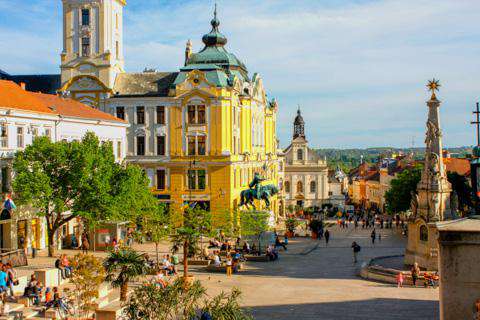
Neighborhoods
Food and dining, transportation, more related articles.
We've been gathering travel costs from tens of thousands of actual travelers since 2010, and we use the data to calculate average daily travel costs for destinations around the world. We also systematically analyze the prices of hotels, hostels, and tours from travel providers such as Kayak, HostelWorld, TourRadar, Viator, and others. This combination of expenses from actual travelers, combined with pricing data from major travel companies, gives us a uniqe insight into the overall cost of travel for thousands of cities in countries around the world. You can see more here: How it Works .
Subscribe to our Newsletter
By signing up for our email newsletter, you will receive occasional updates from us with sales and discounts from major travel companies , plus tips and advice from experienced budget travelers!

Search for Travel Costs
Some of the links on this website are sponsored or affiliate links which help to financially support this site. By clicking the link and making a purchase, we may receive a small commission, but this does not affect the price of your purchase.
Travel Cost Data
You are welcome to reference or display our travel costs on your website as long as you provide a link back to this page .
A Simple Link
For a basic link, you can copy and paste the HTML link code or this page's address.
Travel Cost Widget
To display all of the data, copy and paste the code below to display our travel cost widget . Make sure that you keep the link back to our website intact.
- Privacy / Terms of Use
- Activities, Day Trips, Things To Do, and Excursions

IMAGES
VIDEO
COMMENTS
Accommodation Budget in Hungary Average Daily Costs. Calculated from travelers like you. The average price paid for one person for accommodation in Hungary is $42 (Ft15,133). For two people sharing a typical double-occupancy hotel room, the average price paid for a hotel room in Hungary is $84 (Ft30,265).
To make it easier for you guys, I'll share both my budget breakdowns from my solo trip as a backpacker and my mid-range adventure as part of a couple. How much I spent as a solo backpacker in Hungary: Accommodation: €11 per day. Transportation: €3.13 per day. Food: €12.05 per day.
A trip to Hungary for one person usually costs between $32 and $210 per day and $65 to $420 for two people. This is a wide range of costs, and the daily average per person from our data is $82 (Ft30,380) per person. This average includes food, accommodation, sightseeing, and local transportation expenses contributed from other travelers.
Average Daily Cost For Visiting Budapest. It costs around $35-$60/day to visit Budapest as a budget-minded traveler. These prices are based on what you'll need to visit the city comfortably as a budget traveler staying in a hostel. If you want to stay in a nicer hotel or rental apartment you should add an extra $60-$80/night to your budget.
Accommodation prices in Hungary vary depending on the city, neighborhood or tourist season. For example, the average price of accommodation in Budapest (May 2024) ranges from 8640 HUF (24 USD) per night in a hostel to about 37874 HUF (105 USD) in a 3-star hotel. The price of a night in a luxury hotel is an expense from 97045 HUF (270 USD) upwards.
It is relatively budget-friendly. Hungary's cost of living is lower than many other European countries. The average daily expenses for a person in Hungary range from 35€ ($38.15, £30.45) to 50€ ($54.5, £43.5), depending on their lifestyle and location. Hungary provides various options catering to different budgets.
Luxury Family Vacation. The high-end price for 4 people to visit Budapest for a week is $6,512-$18,288 ($930-$2,613 per day). Food, Travel, and Sightseeing: $220 to $440 per day for four people's daily expenses. Flights: $3,892 to $8,680 for first class. Lodging: $180 to $372 per night for two 4 or 5-star hotel rooms. or $544 to $1,088 per night for a preferred vacation rental
Average Cost of Accommodation in Budapest. Luxury Travel: Those looking for a splash of luxury can expect to pay around € 250+ per night at a 5-star hotel. Mid-Range Hotel: If you're looking for something a bit more comfortable, the average cost of a mid-range hotel is around €100-€150 per night.
Confirm. On average, the cost of living in Hungary in 2024 is 34% less than in the United States (USA). The graphic below shows the percentage of variation between prices United States in in the United States (USA) and United States by types of expenses: % Price variation between Hungary and United States in 2024 Restaurant Hotel Food Transport ...
When to Go to Hungary. The most popular time to visit Hungary is June-August. Temperatures hover around 23-29°C (73-84°F) and Hungary (especially Budapest) experiences an influx of visitors. Prices increase during this time as well, but the cities are lively and there are lots of events and festivals.
Hungary's official currency is Hungarian Forint (Ft or HUF). 1 Euro is usually between 380 to 400 Ft (currently 386 HUF, as of February 2023) depending on current economics. 1 GBP is usually between 440 to 450 Ft. However, shops and restaurants in the city centre commonly accept EUR and US Dollar, but typically at a higher exchange rate, so ...
Accommodation: 6 Euros (please note that you can stay in hostels costing around 3 or 4 Euros a day and save a little more. Most of the cheap backpacker hostels are located in Pest). Transportation: 5 Euros. Food & Beer: 5 Euros. Total = 16 Euros PER DAY!
You'll probably be able to rent out a nice apartment for $600+. All right, let's break it down further. Average expenses across all sorts of accommodation should be around $700. For $400-$650, you'll get a decent apartment that you may be comfortable living in even for a long time.
Based on our calculations from previous travelers, a one week trip to Hungary will cost around $0 per person. This amount includes sightseeing activities, hotels, restaurants, local transportation, and other travel expenses. For two people, a one week trip would cost $0. On average, a two week trip to Hungary costs about $0 per person.
Summary of cost of living in Hungary: A family of four estimated monthly costs are 2,397.1$ (868,245.6Ft) without rent. A single person estimated monthly costs are 685.5$ (248,284.2Ft) without rent. Cost of living in Hungary is, on average, 40.4% lower than in United States. Rent in Hungary is, on average, 73.4% lower than in United States.
The average monthly salary in Hungary is $859.32 but this highly depends on the city you live in and the kind of job you are doing. The minimum wage was fixed at a level of $714.8 per month. Average Salary $859.32. Minimum Wage $714.8. Mortgage Interest Rate 6.97%.
Hungary a third-country citizen with permanent residence status, whose vital interest is in Hungary leave) any natural person who has a permanent home (habitually residing in the country) or habitual stay in Hungary (where they stay for more than 3 months without the intention to Days of presence
The option for an increased amount of cost reimbursement is not only to be used in case of daily commuting but also for traveling home at the weekends. It is important, that whereas the increased amount may be used for commutes and traveling in January as well, the obligation of paying at least HUF 18 per kilometre is only applicable from 1 ...
As an international student in Budapest on a budget, you can get by with a monthly living cost of €500-700 , including accommodation, local transportation, food, groceries, hygiene items, bills and other necessary expenses. Here are some average prices of basic items and services for students in Hungary: 1 loaf of bread: €0.6-1.7
The most expensive countries for travel in Europe are currently Switzerland (€266.00), France (€233.73), Liechtenstein (€231.69), Iceland (€190.55), Monaco (€184.47), Luxembourg (€183.97), Denmark (€179.50), Netherlands (€175.49), Italy (€166.54), and Andorra (€164.38). As the smallest of all the continents and with 27 ...
The 342-km Serbia-Hungary Railway is an important Belt and Road Initiative project in Europe. Upon completion, the Serbian section of the railway will total 183 km, with a designed top speed of ...
Per diem allowance —* * * . Note 1 to definition of "Per diem allowance". For the purposes of chapter 302 of this subtitle, laundry/dry cleaning expenses are part of the incidental expenses portion of the per diem allowance for temporary quarters subsistence expenses (TQSE) and temporary quarters (TQ) lodging taxes are separately reimbursable TQSE miscellaneous expenses (see § 302-6.28 ...
How much does it cost to travel to Debrecen? You should plan to spend around $68 (Ft24,469) per day on your vacation in Debrecen. This is the average daily price based on the expenses of other visitors. Past travelers have spent, on average for one day: $24 (Ft8,646) on meals; $11 (Ft4,077) on local transportation; $67 (Ft24,402) on hotels
How much does it cost to travel to Pecs? You should plan to spend around $80 (Ft29,354) per day on your vacation in Pecs. This is the average daily price based on the expenses of other visitors. Past travelers have spent, on average for one day: $29 (Ft10,718) on meals; $17 (Ft6,457) on local transportation; $75 (Ft27,637) on hotels